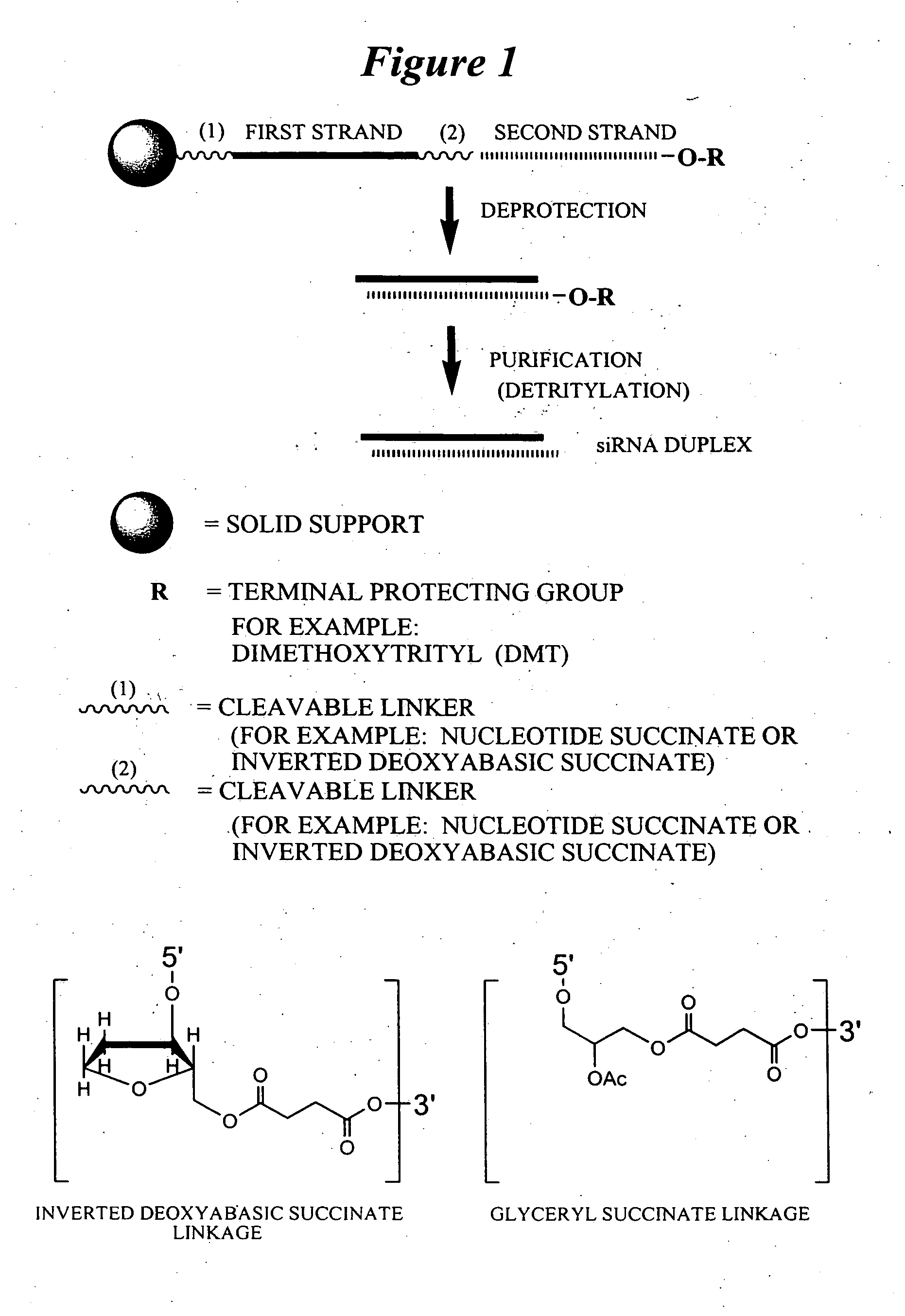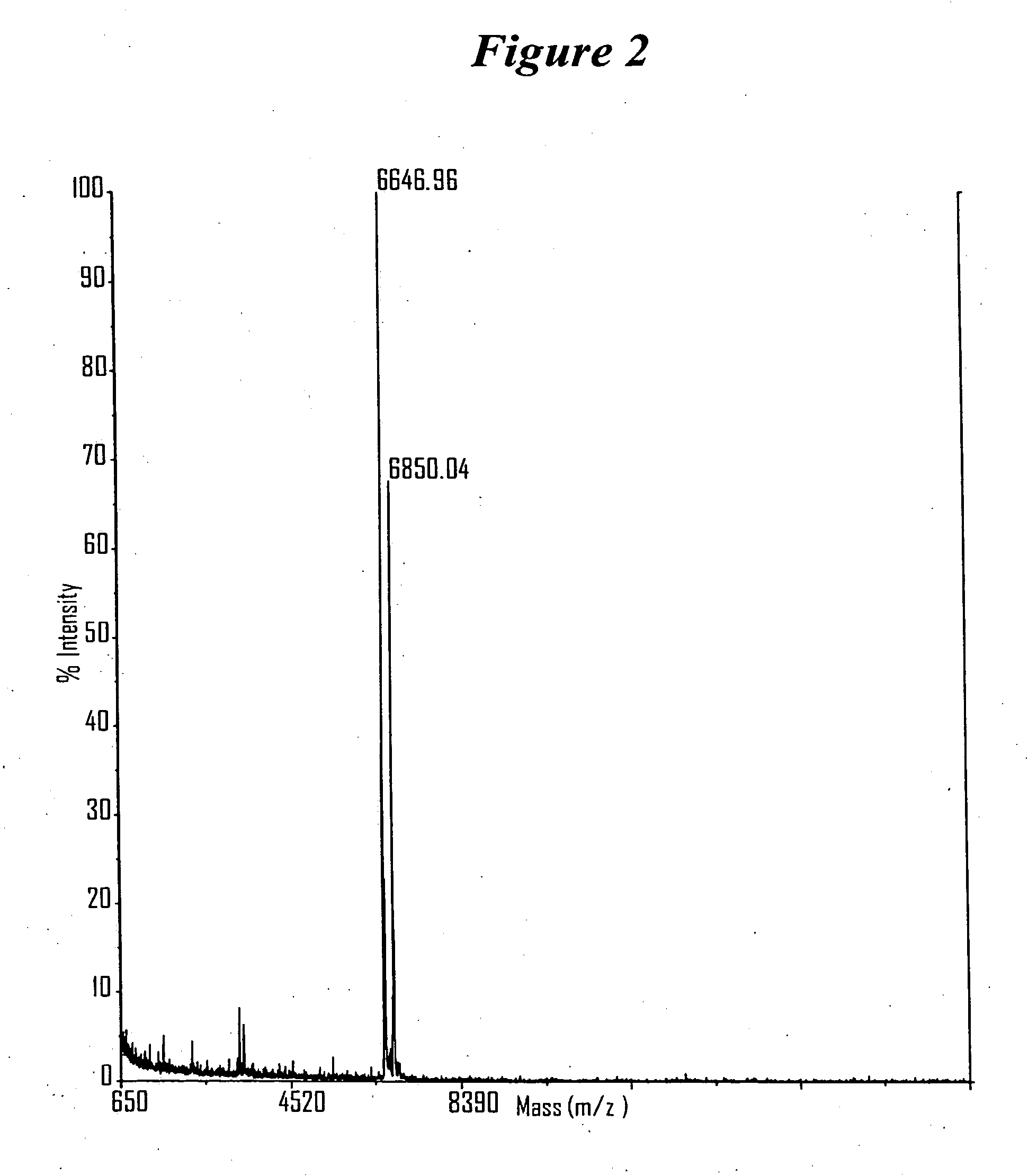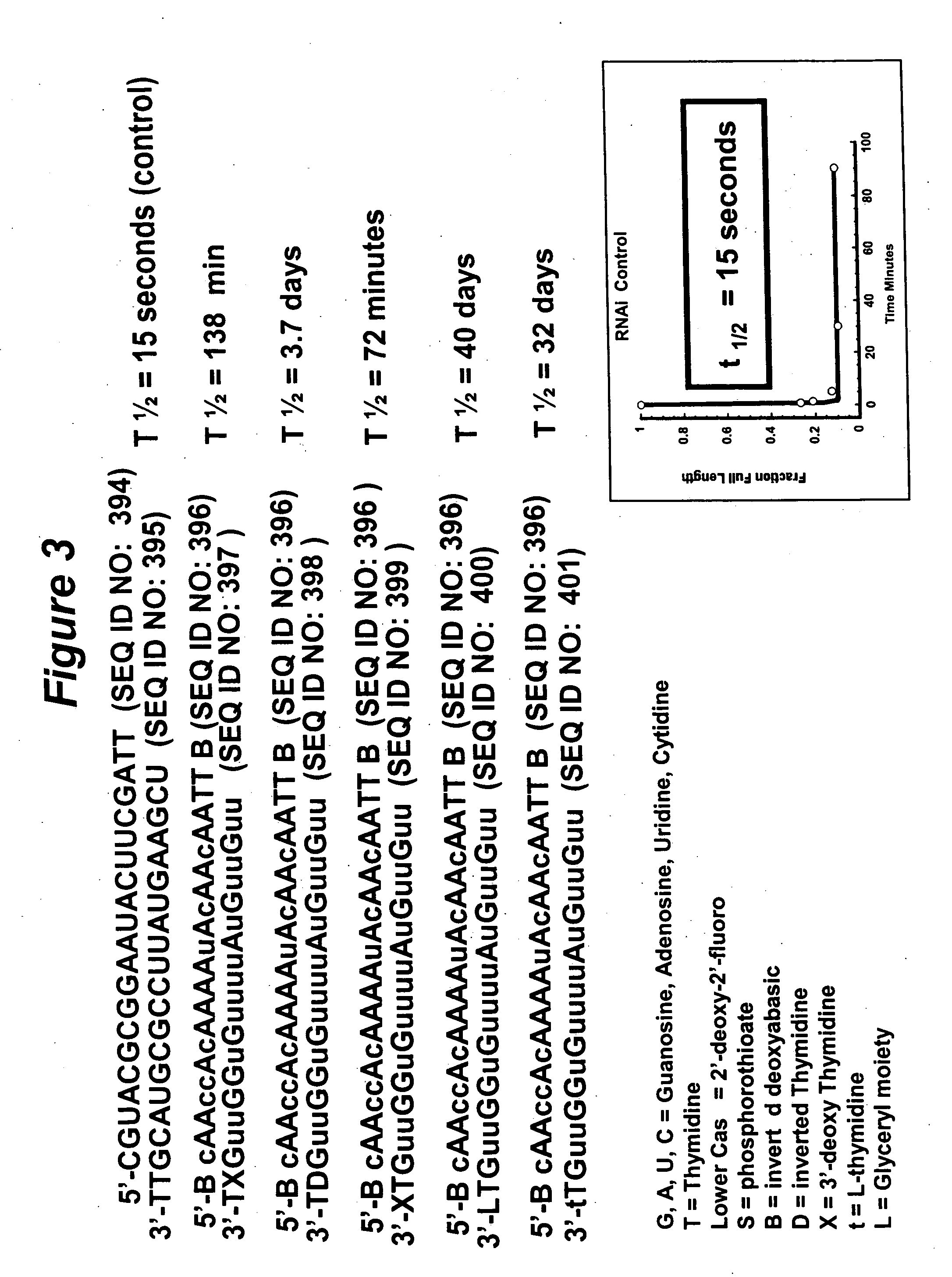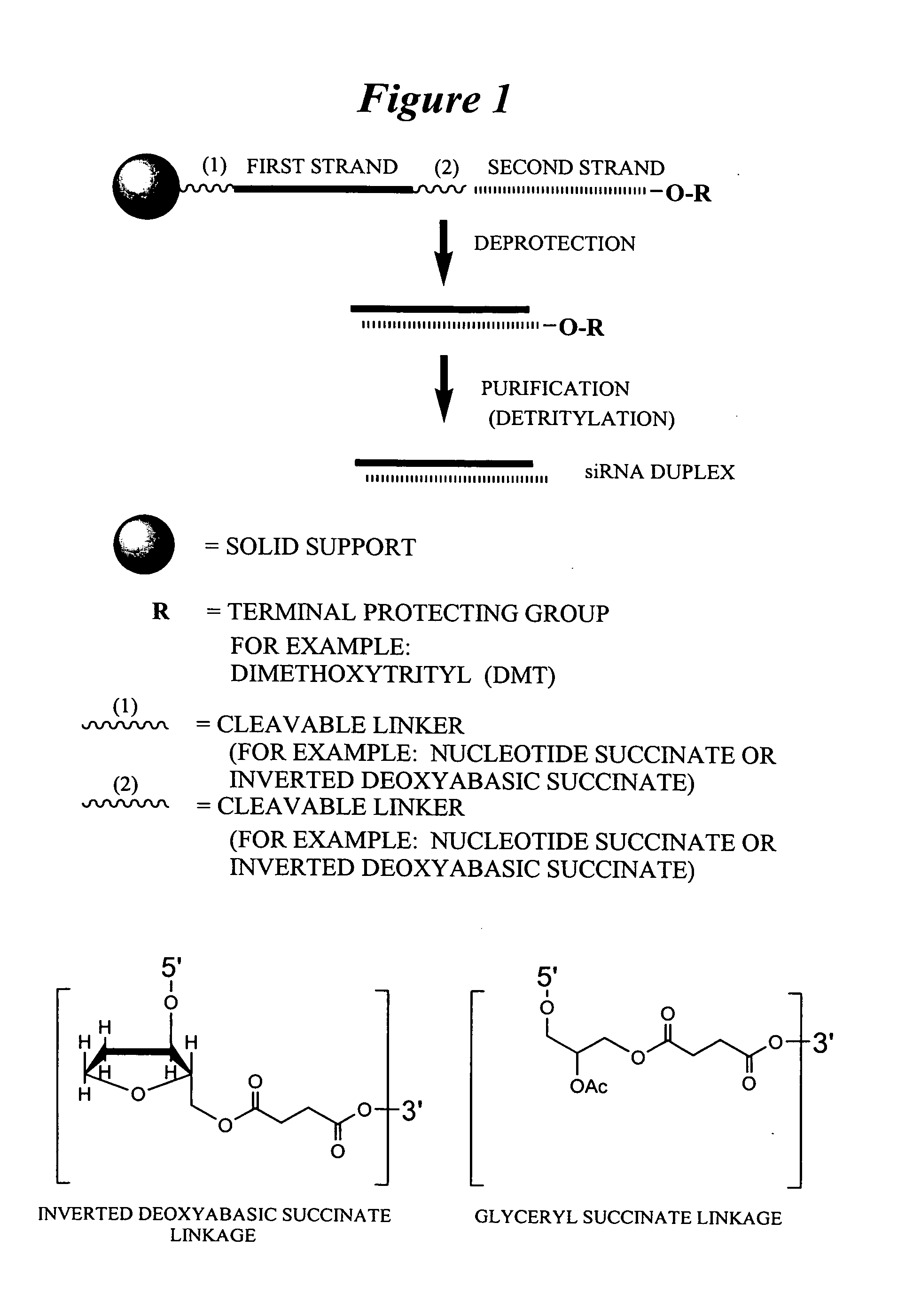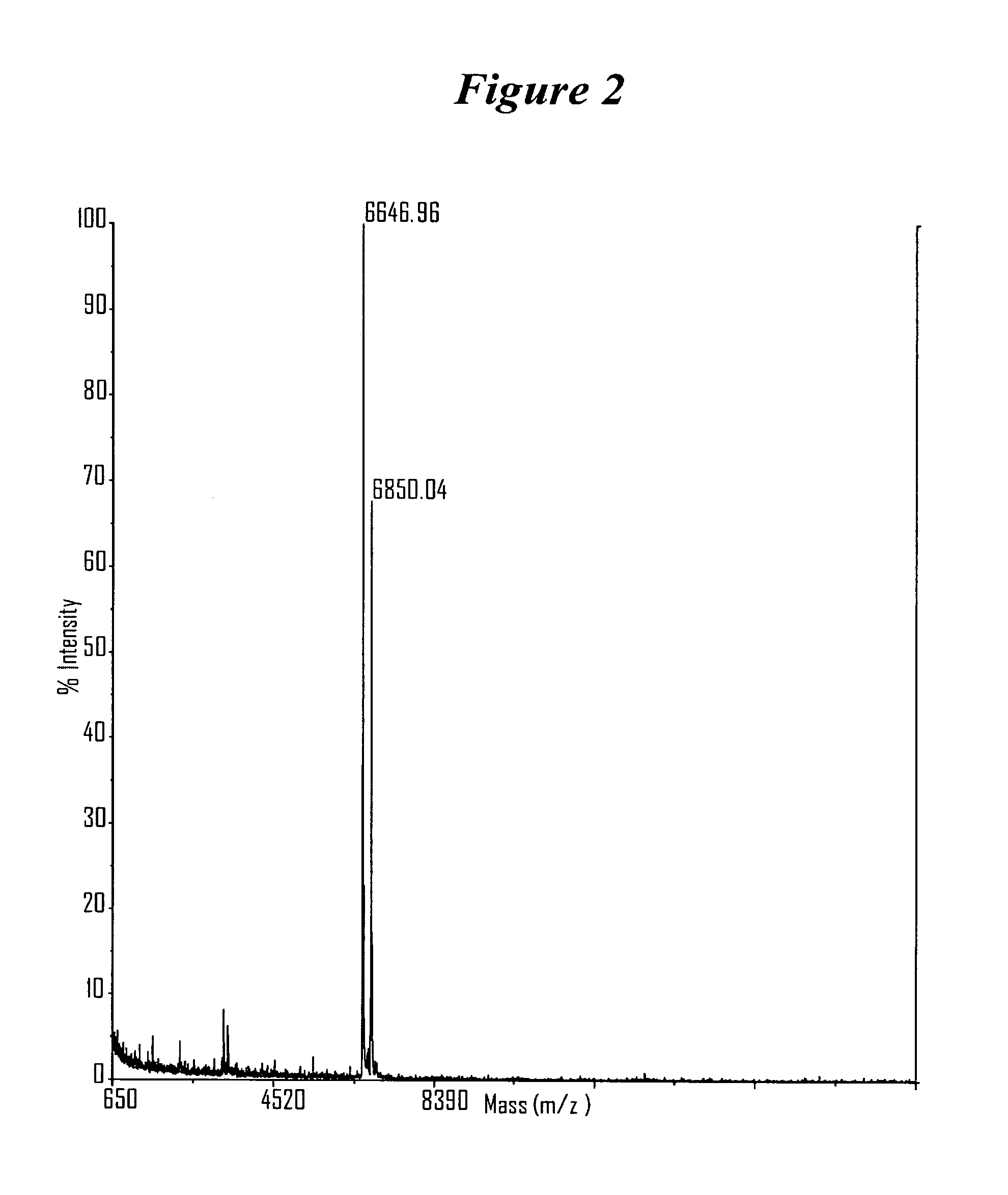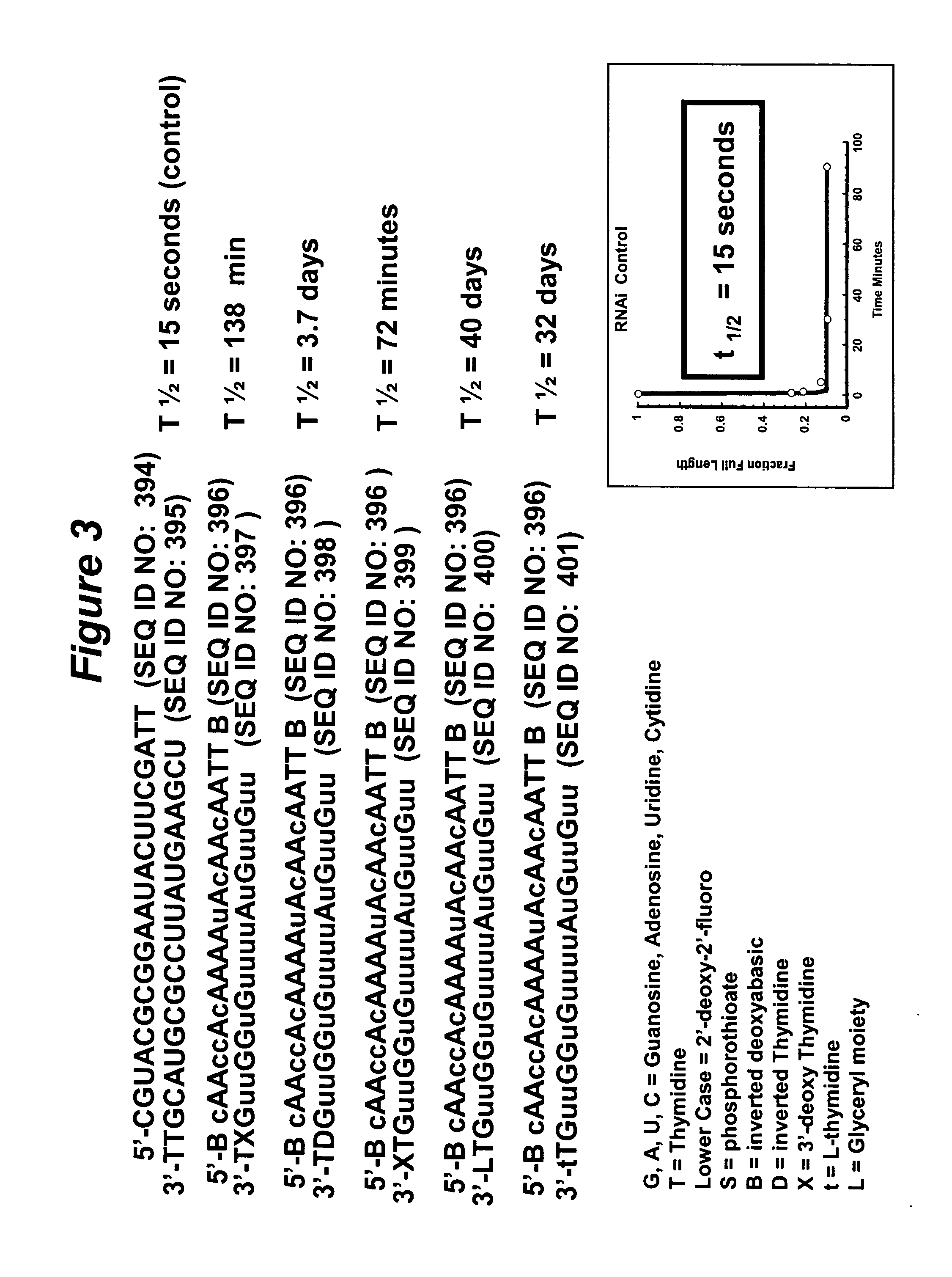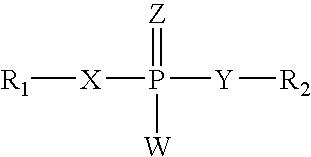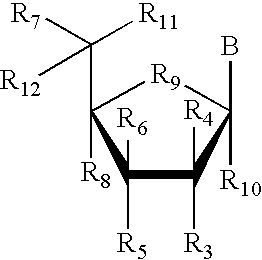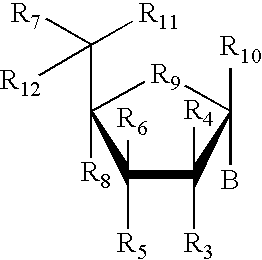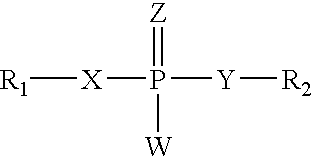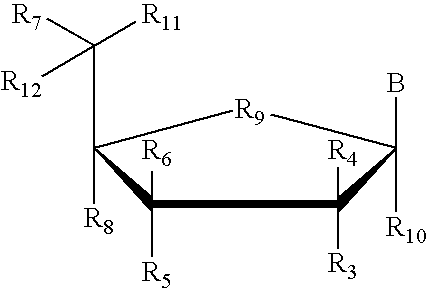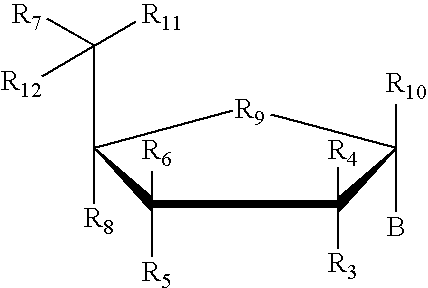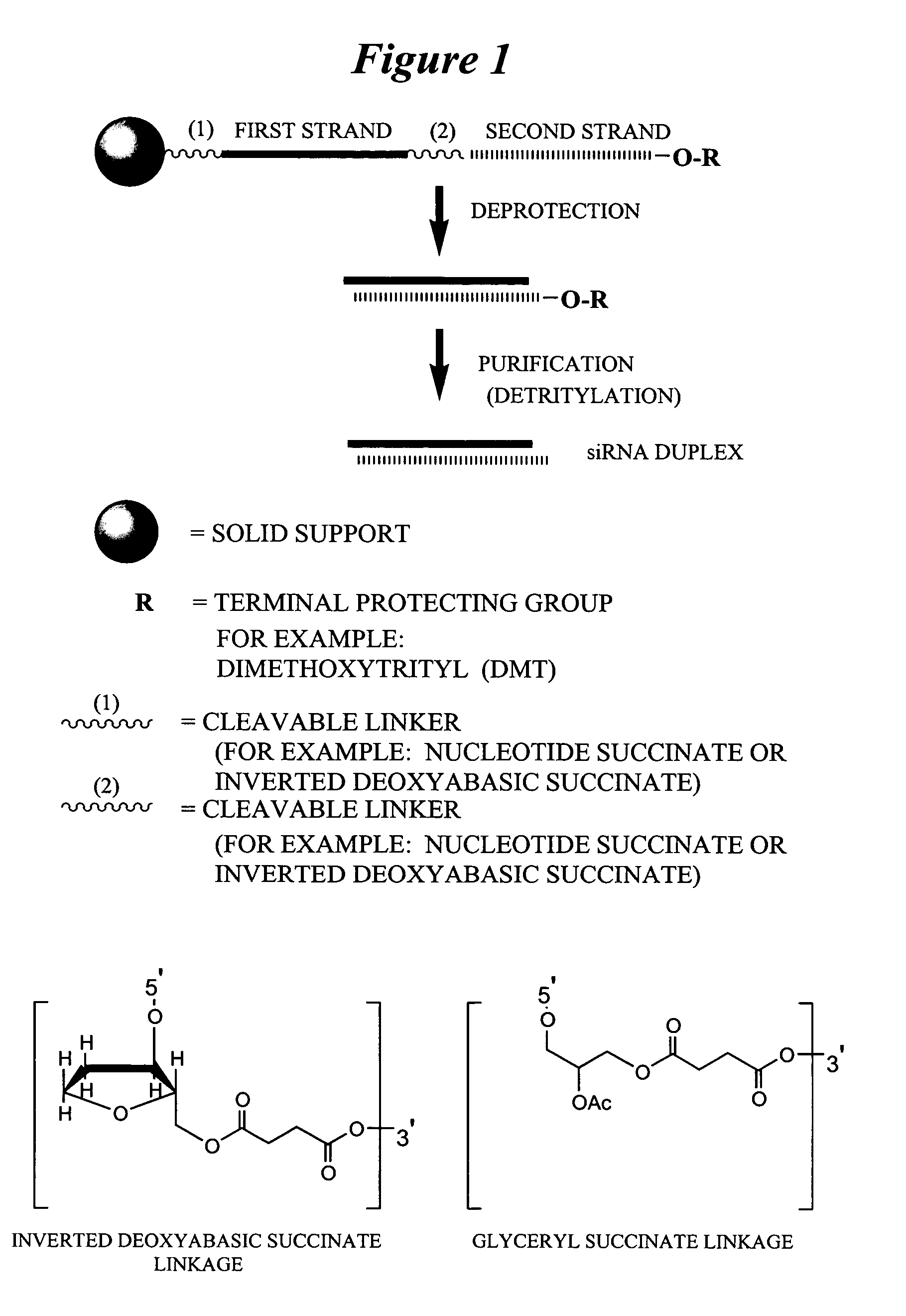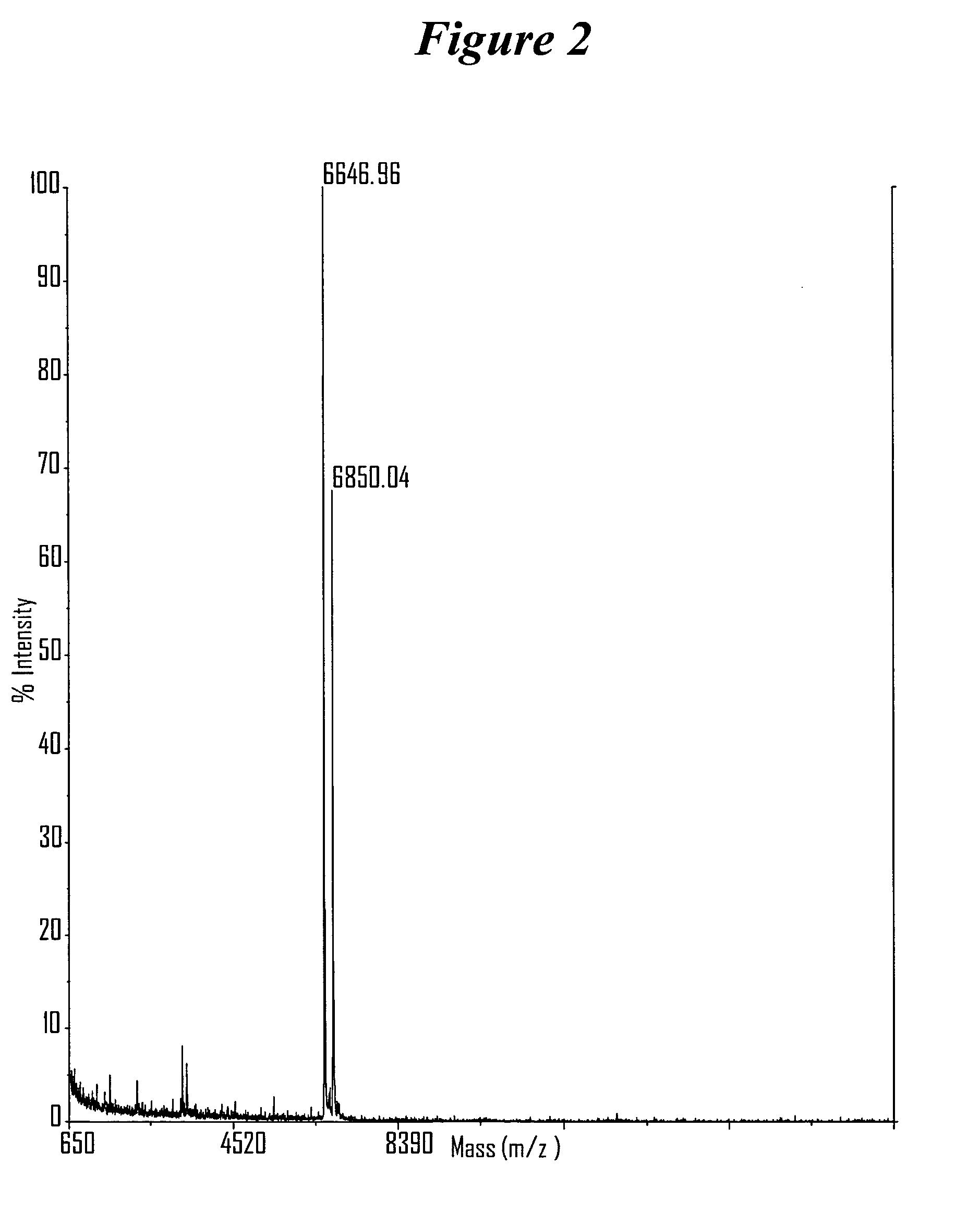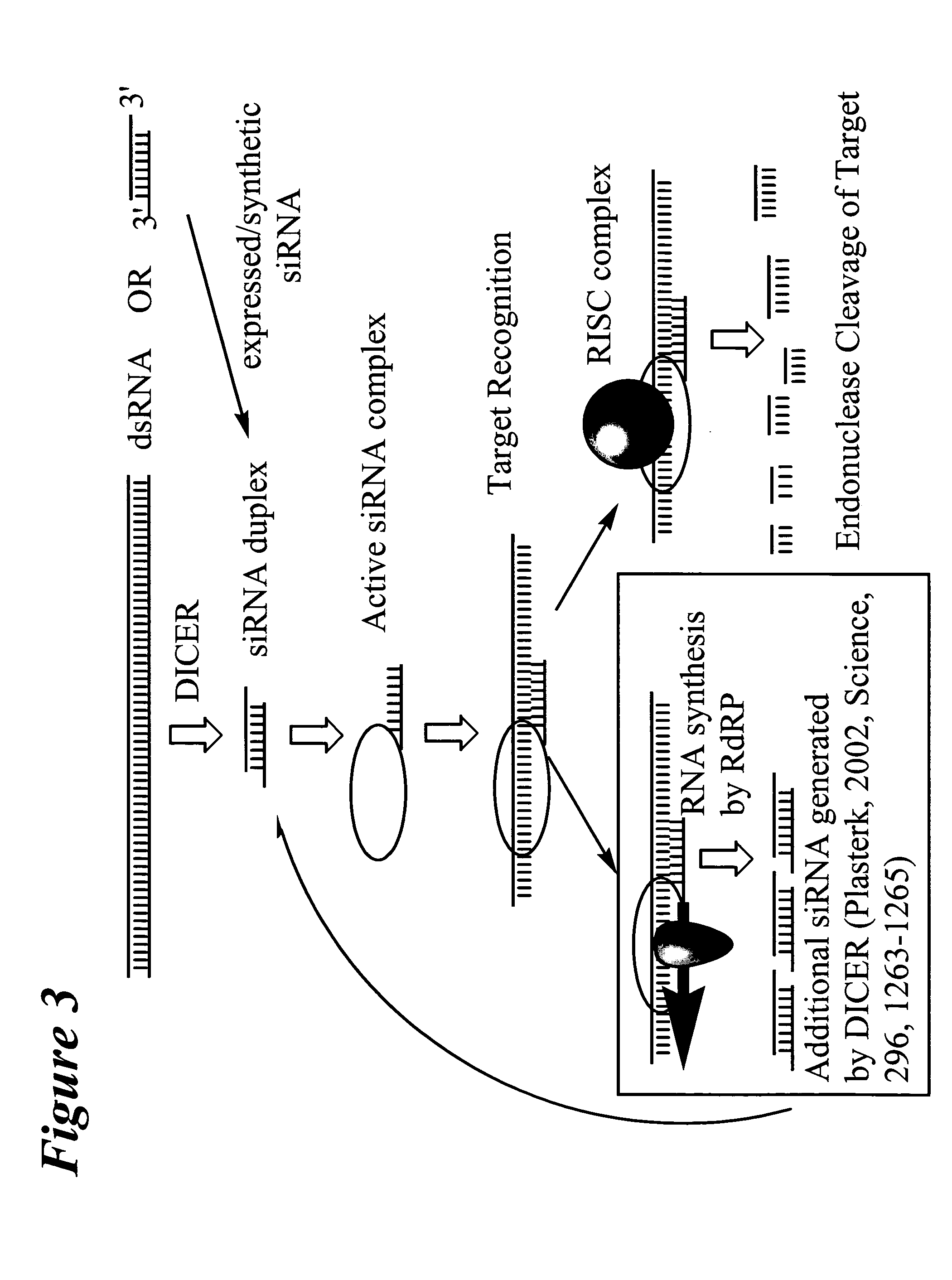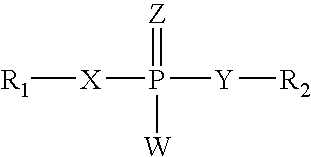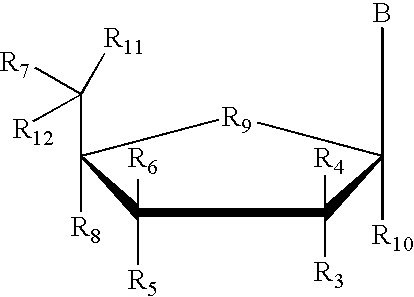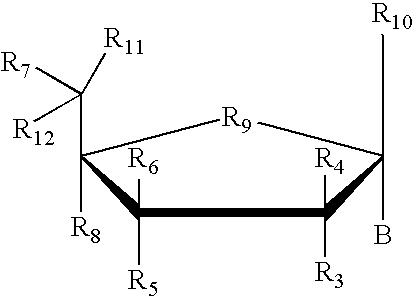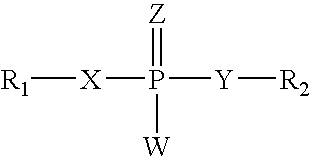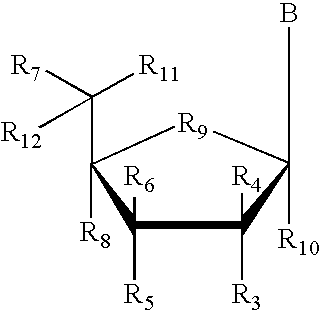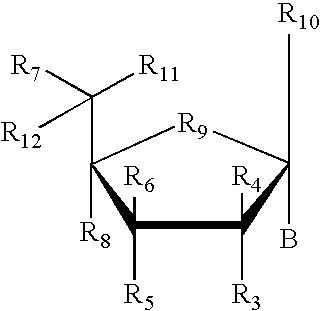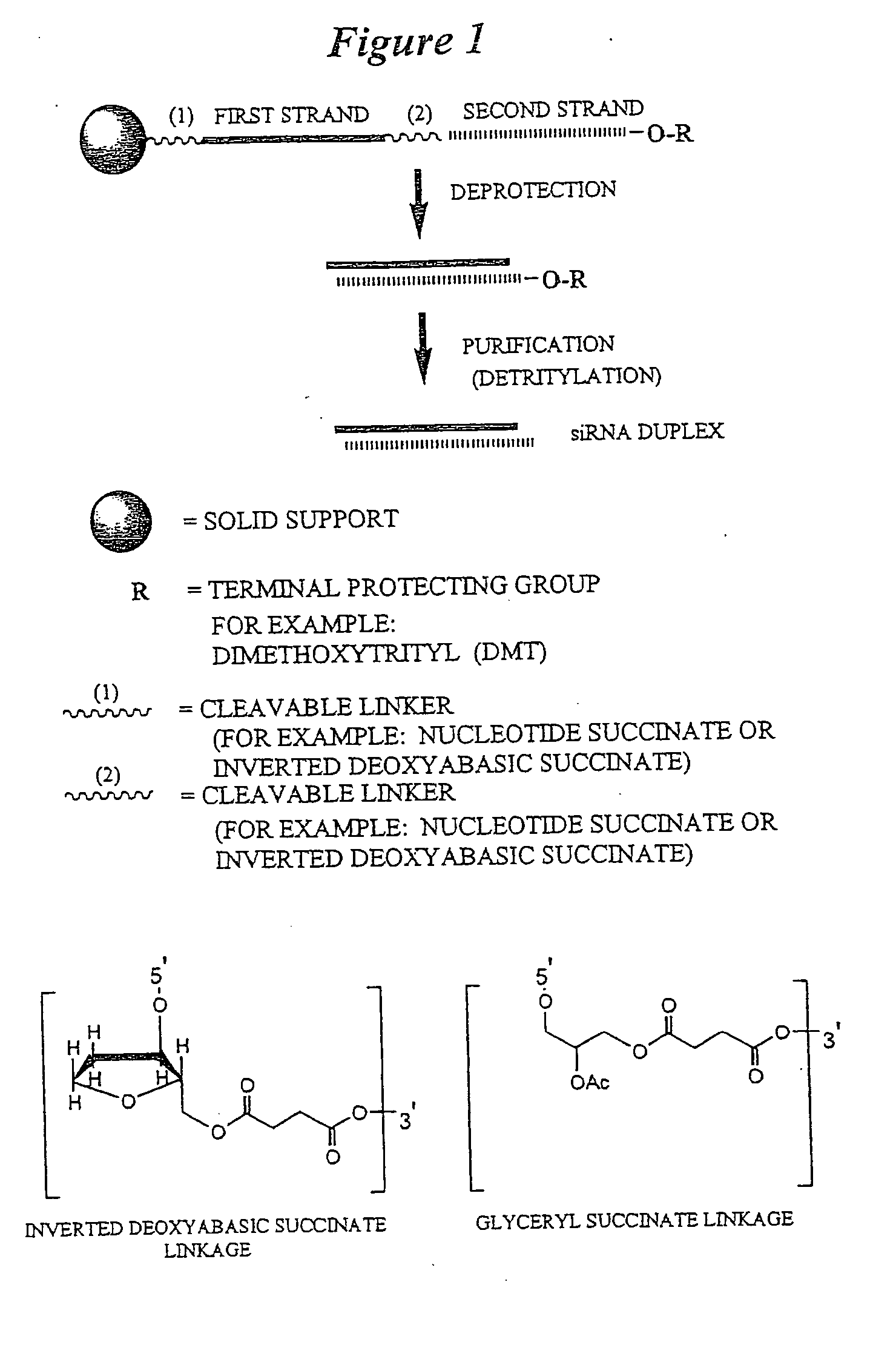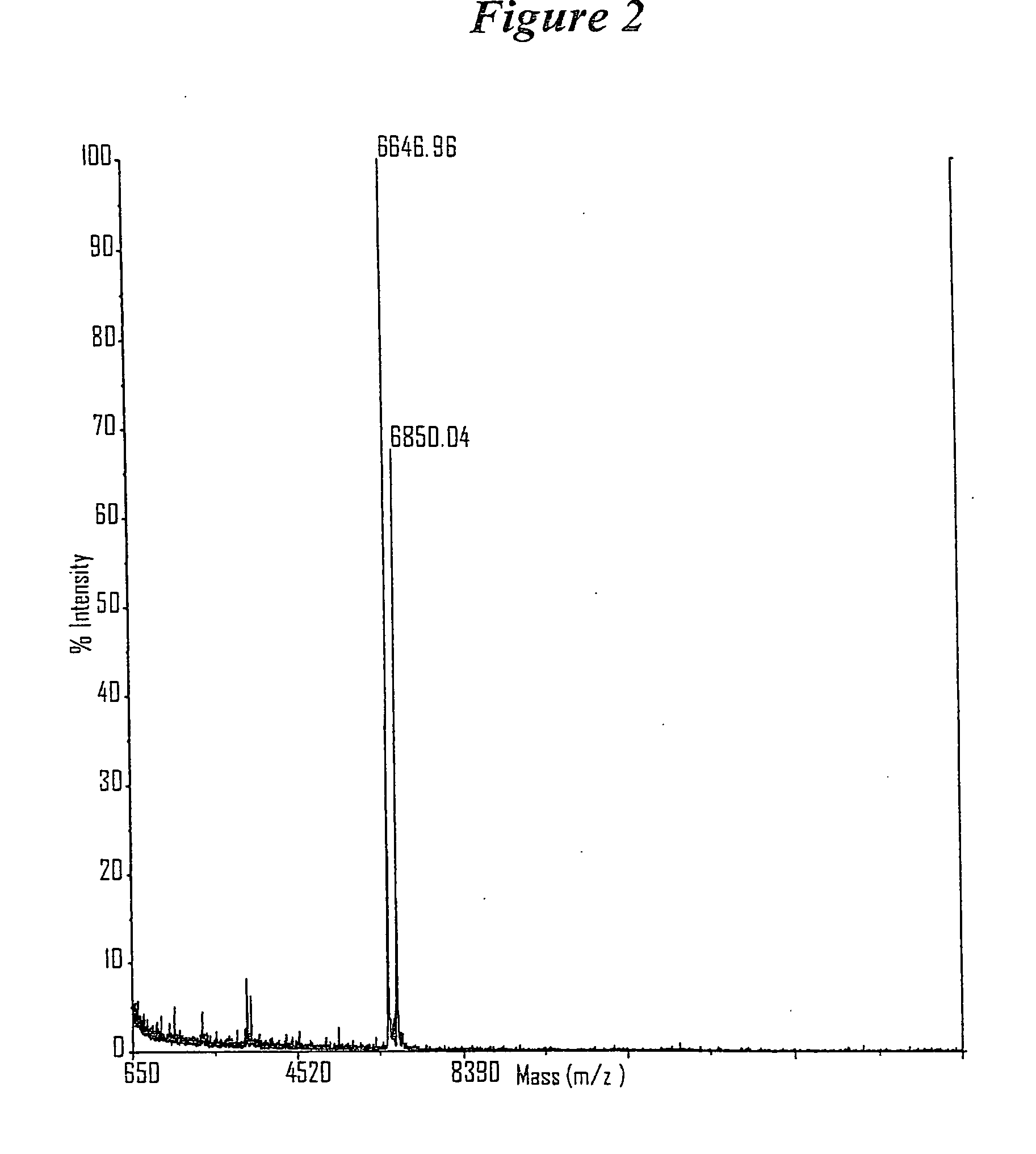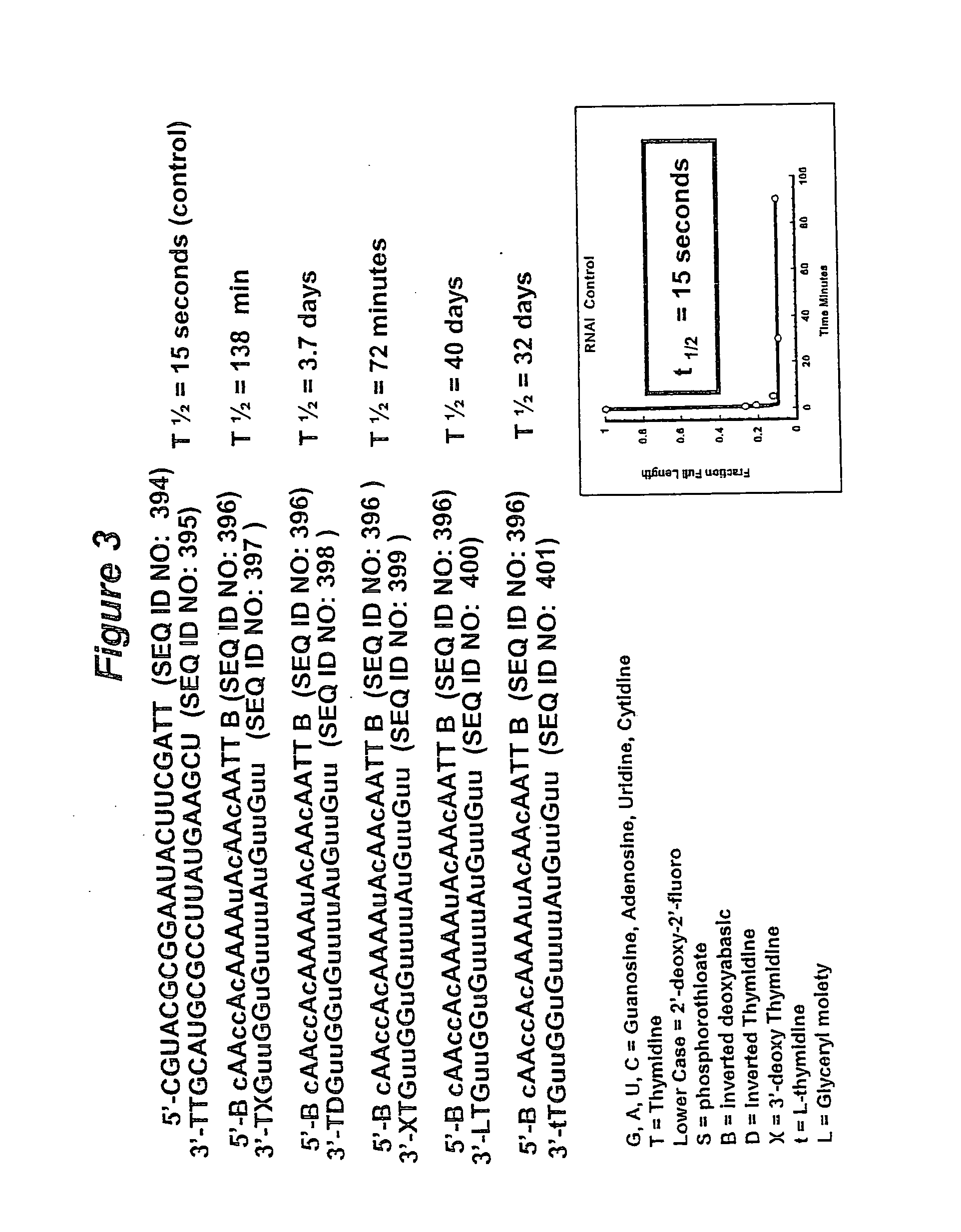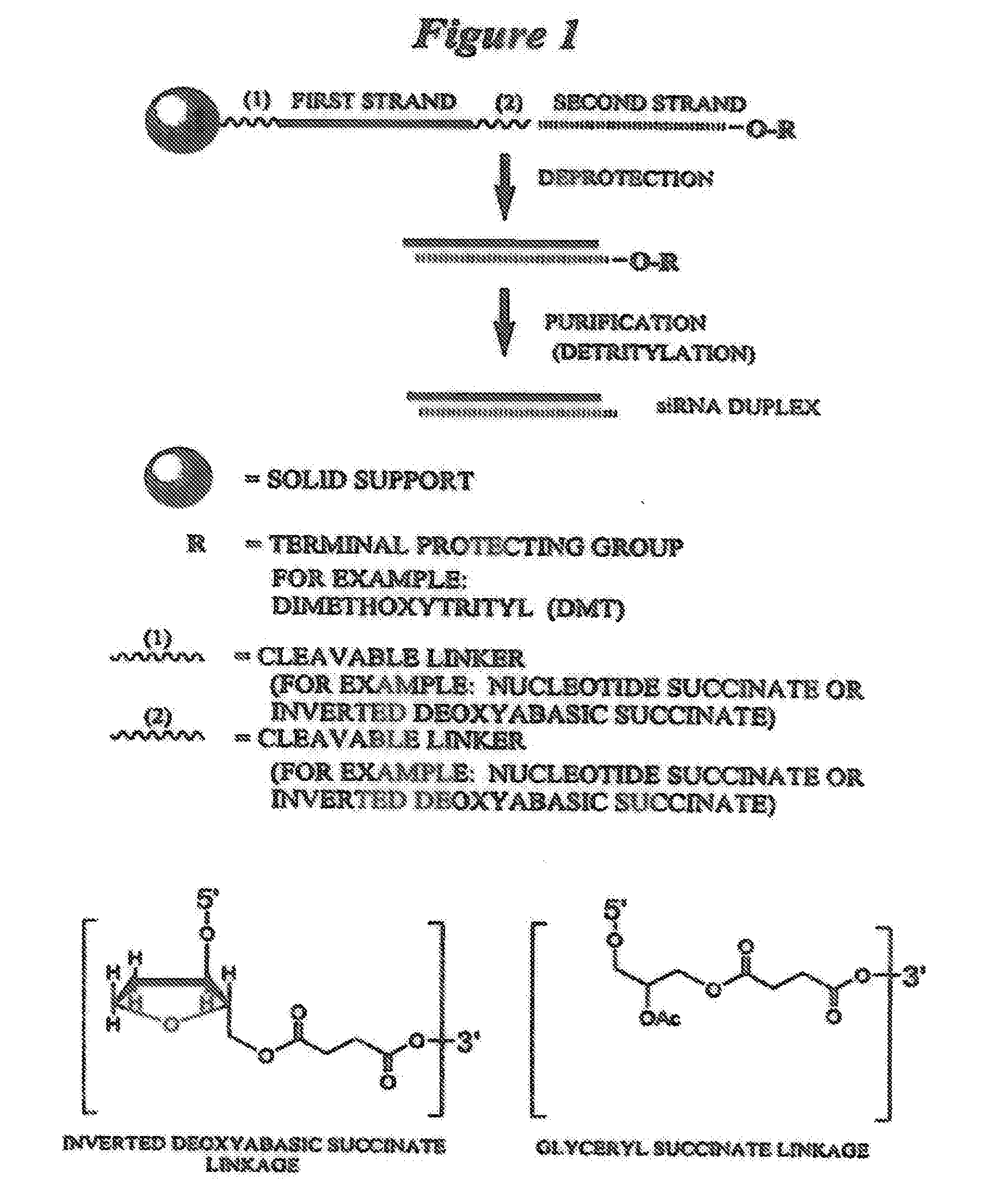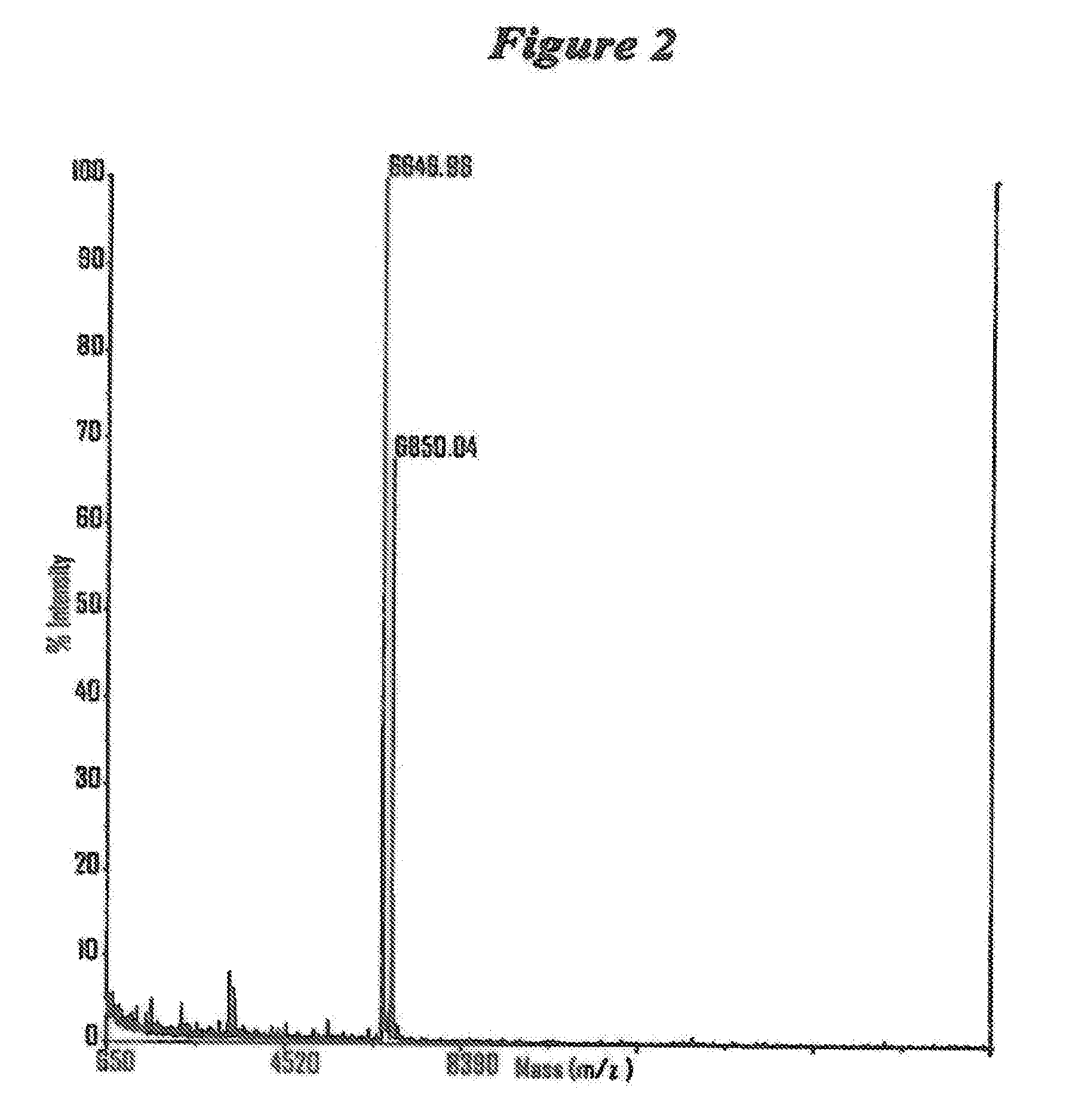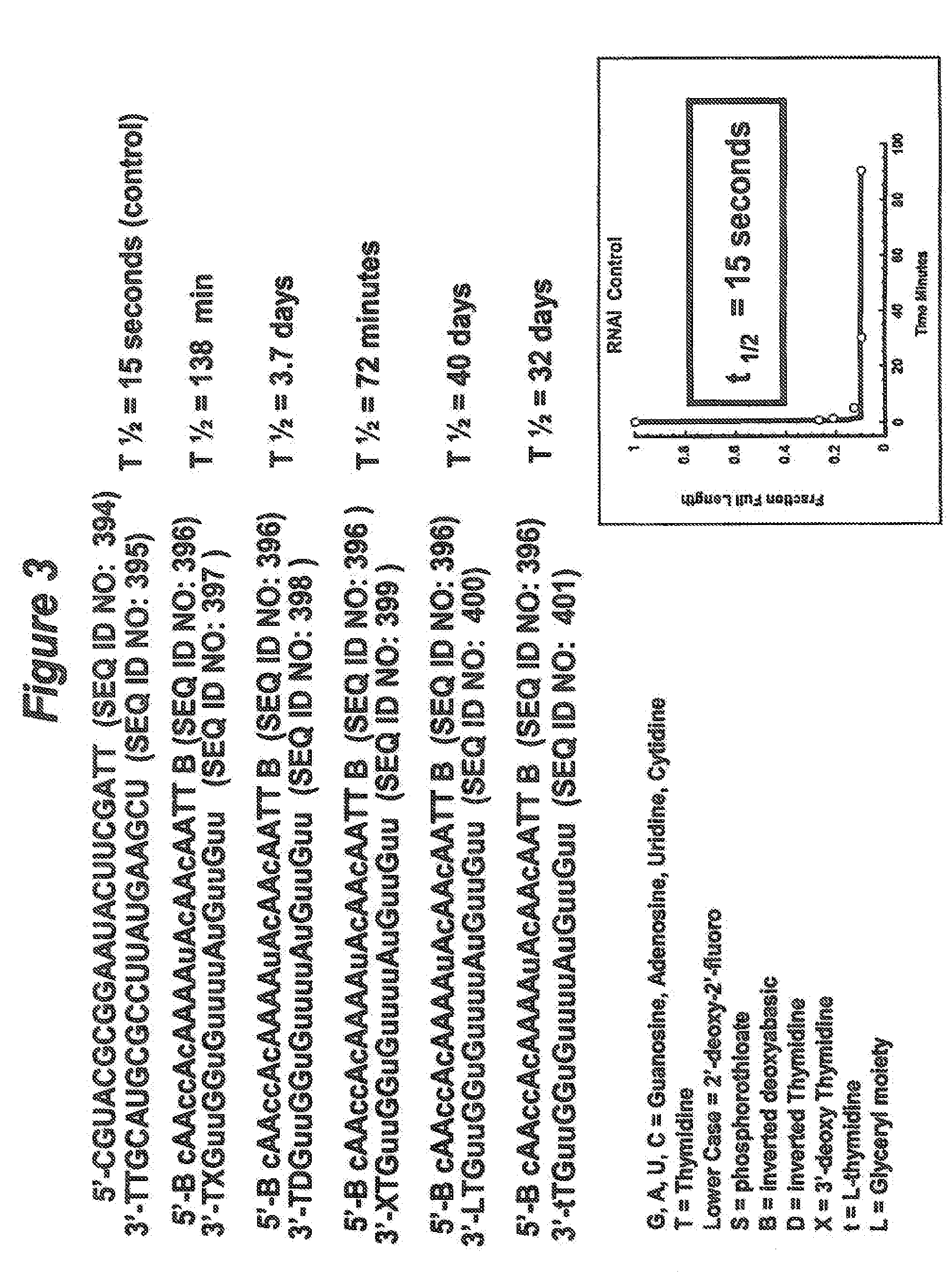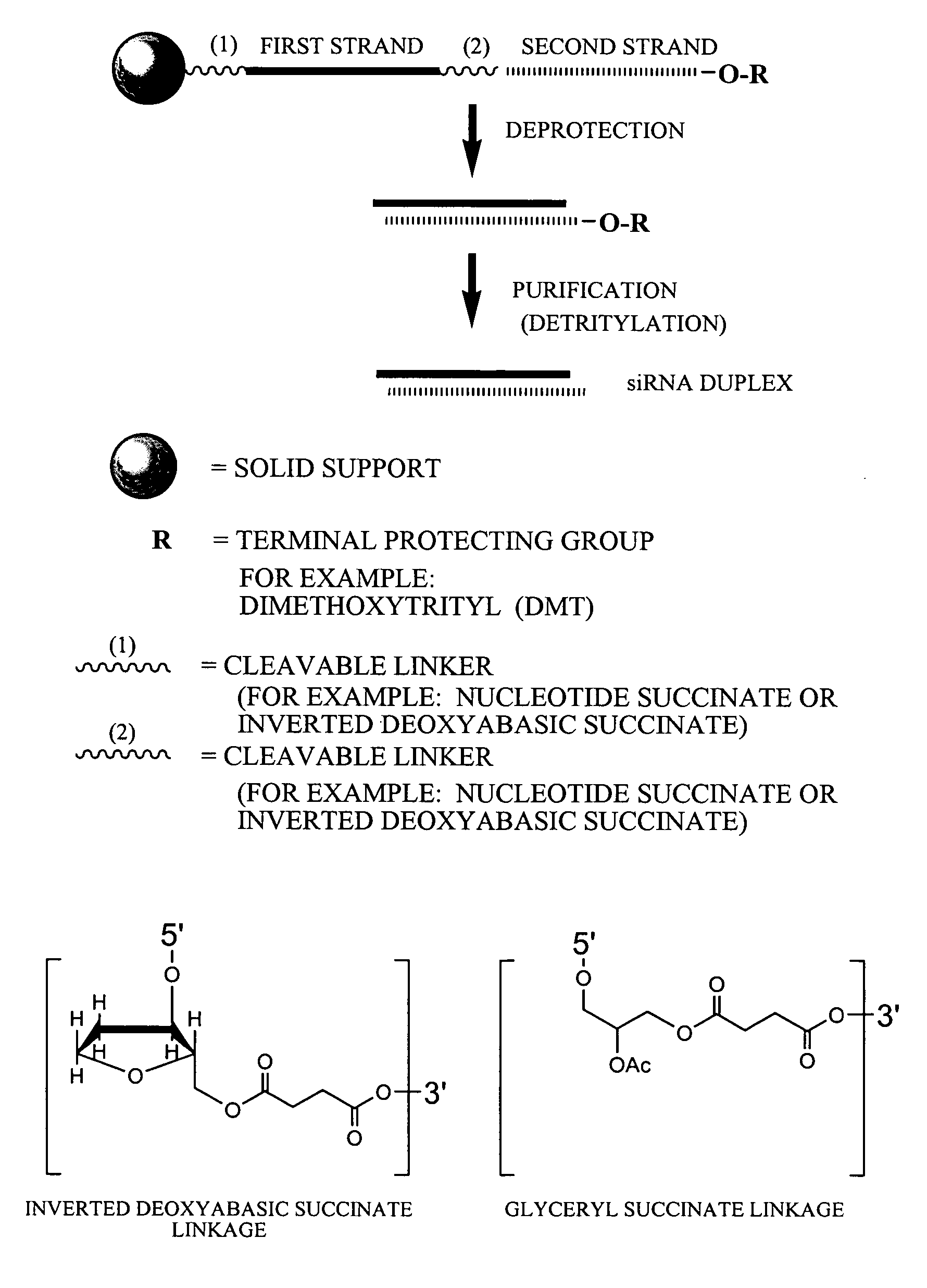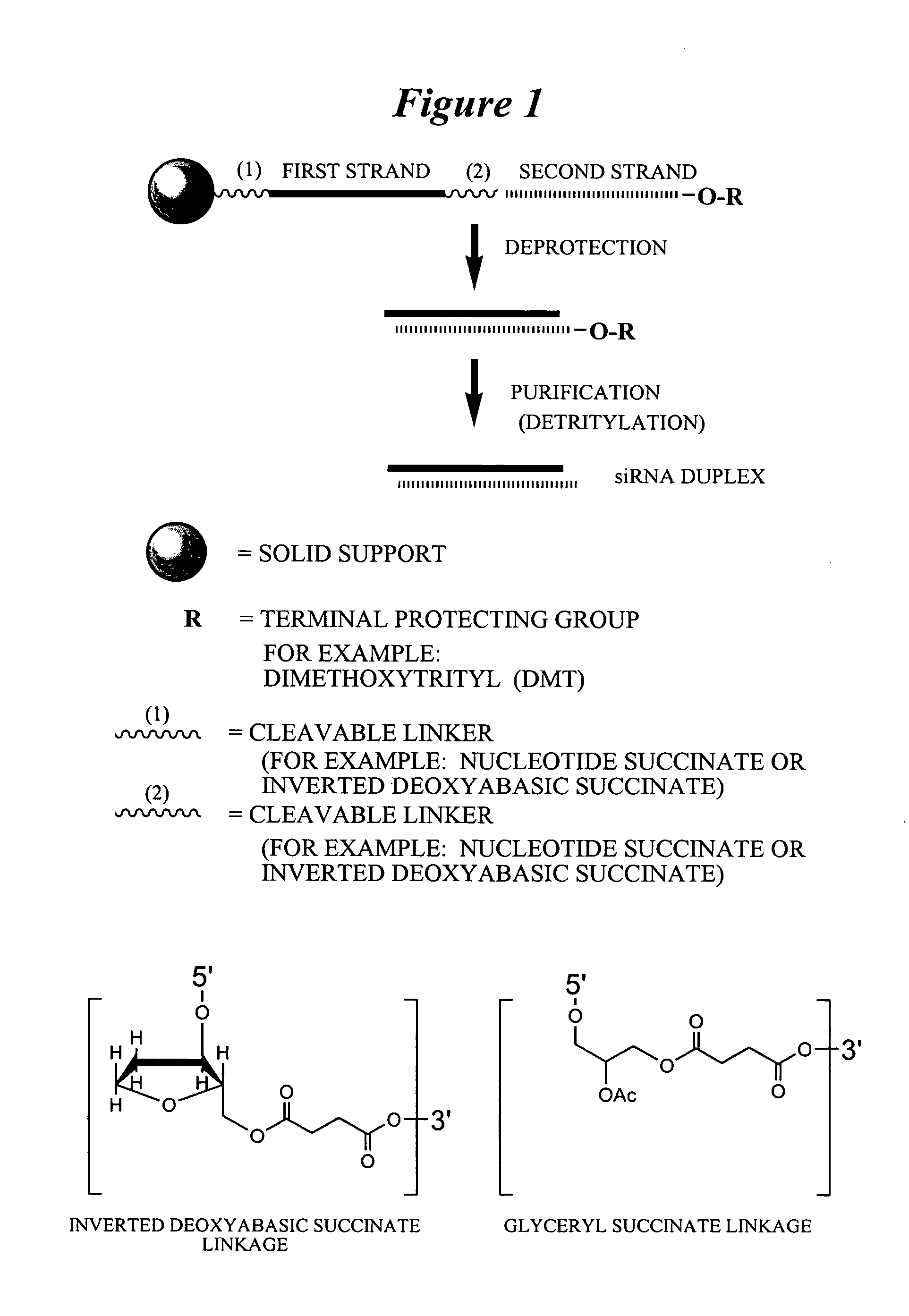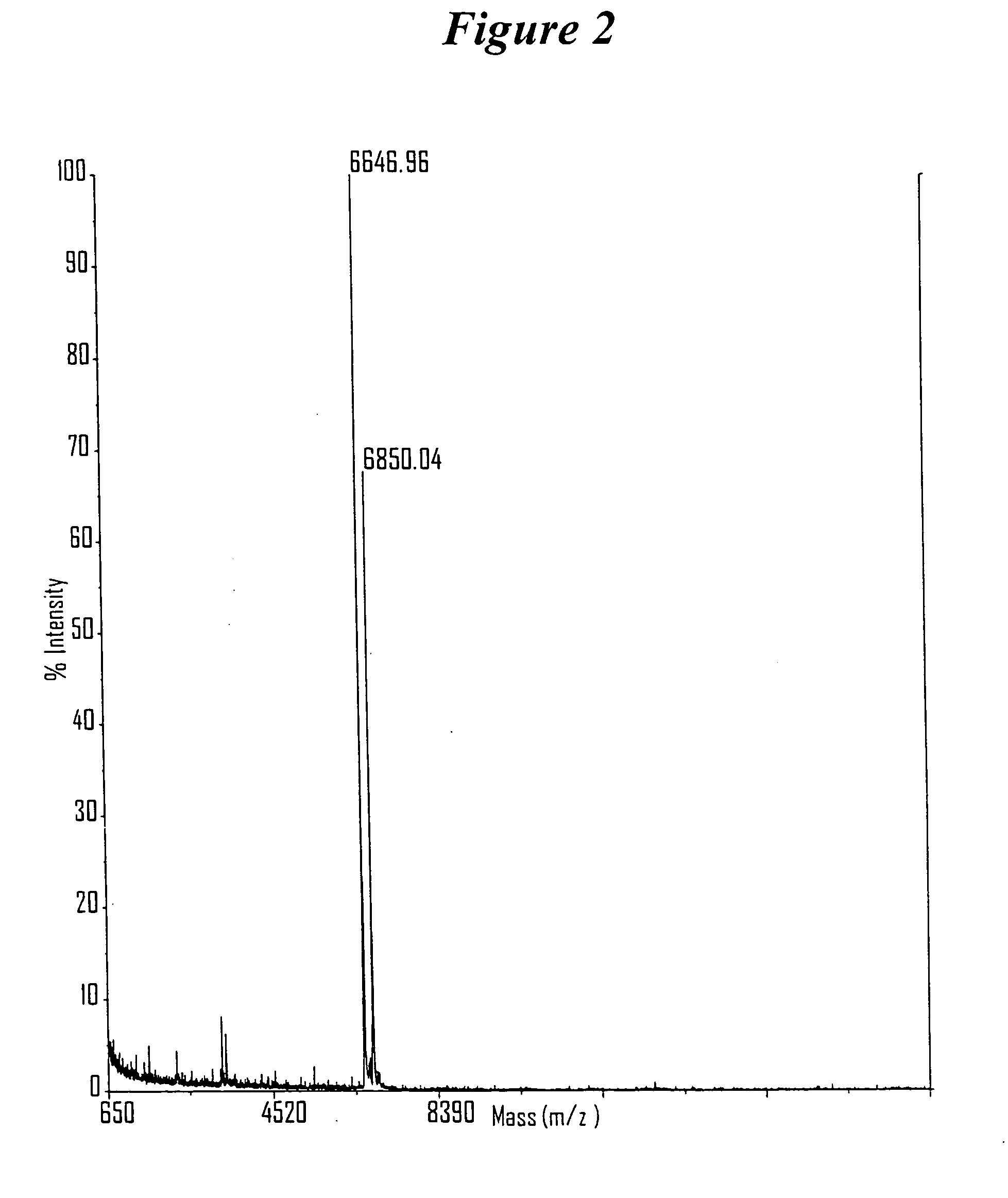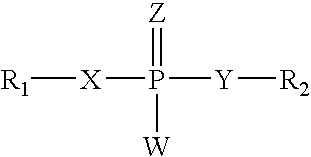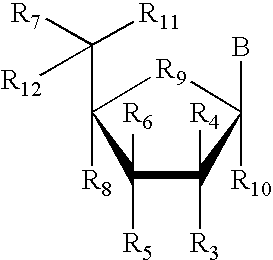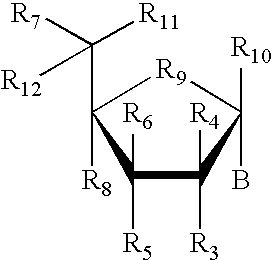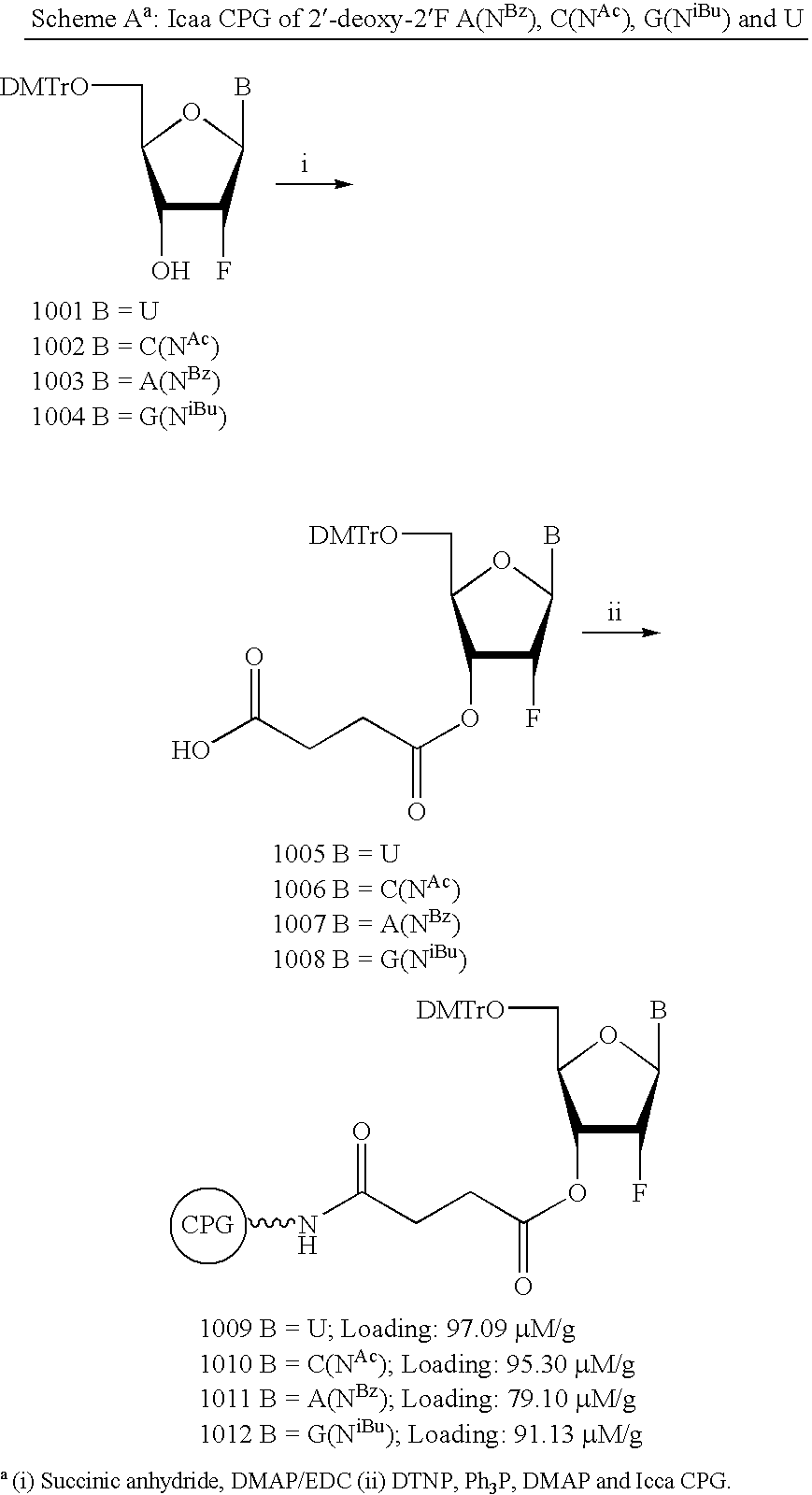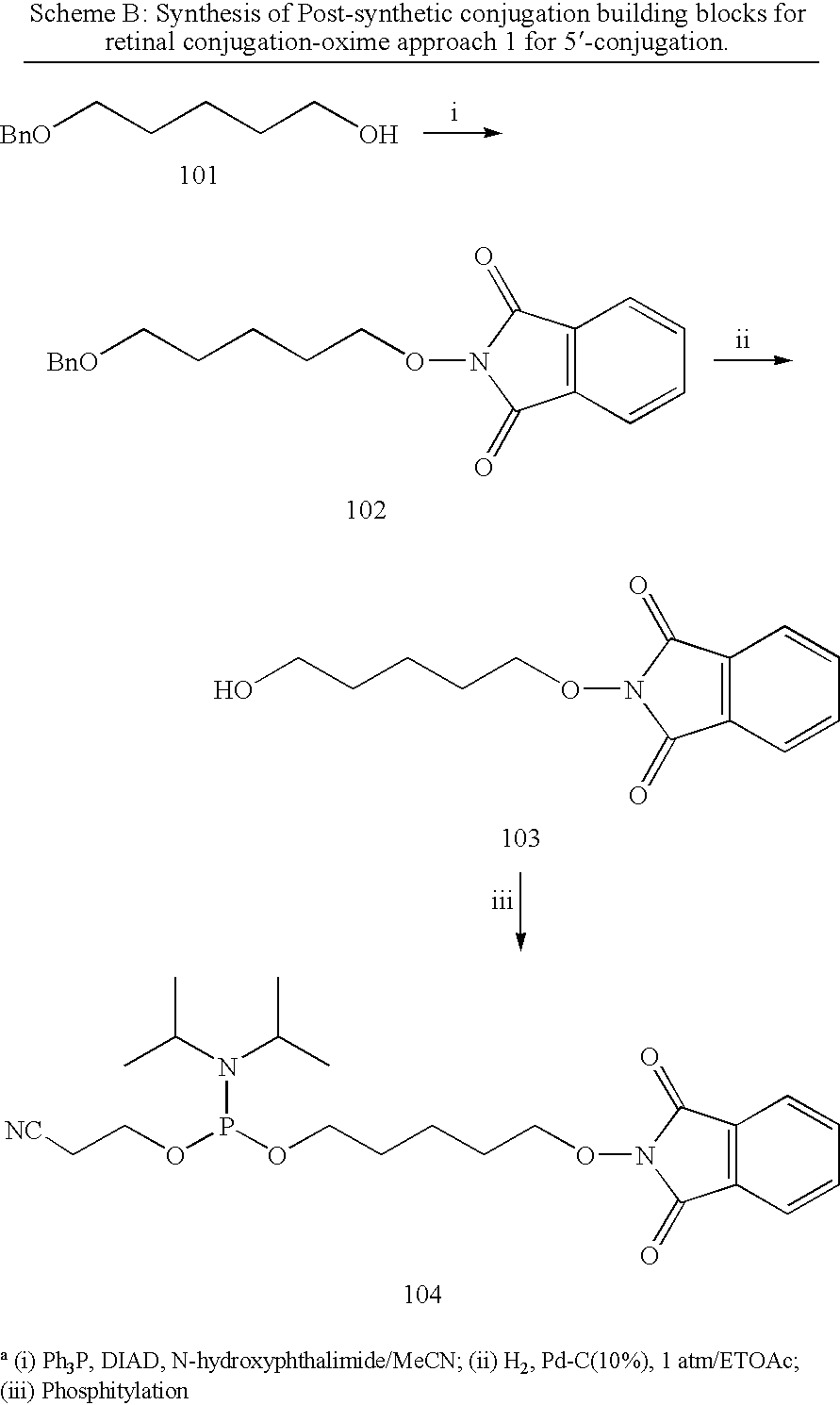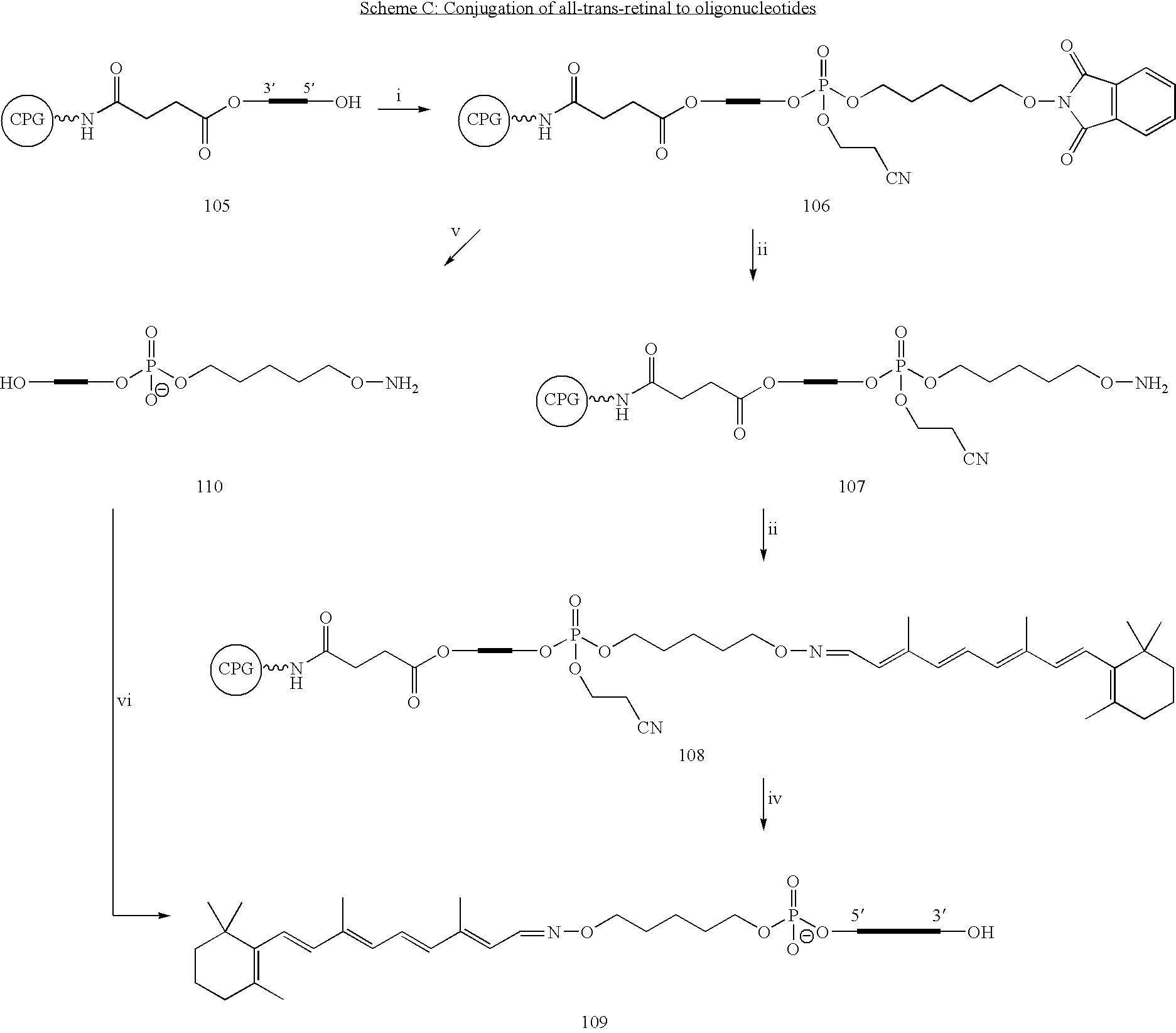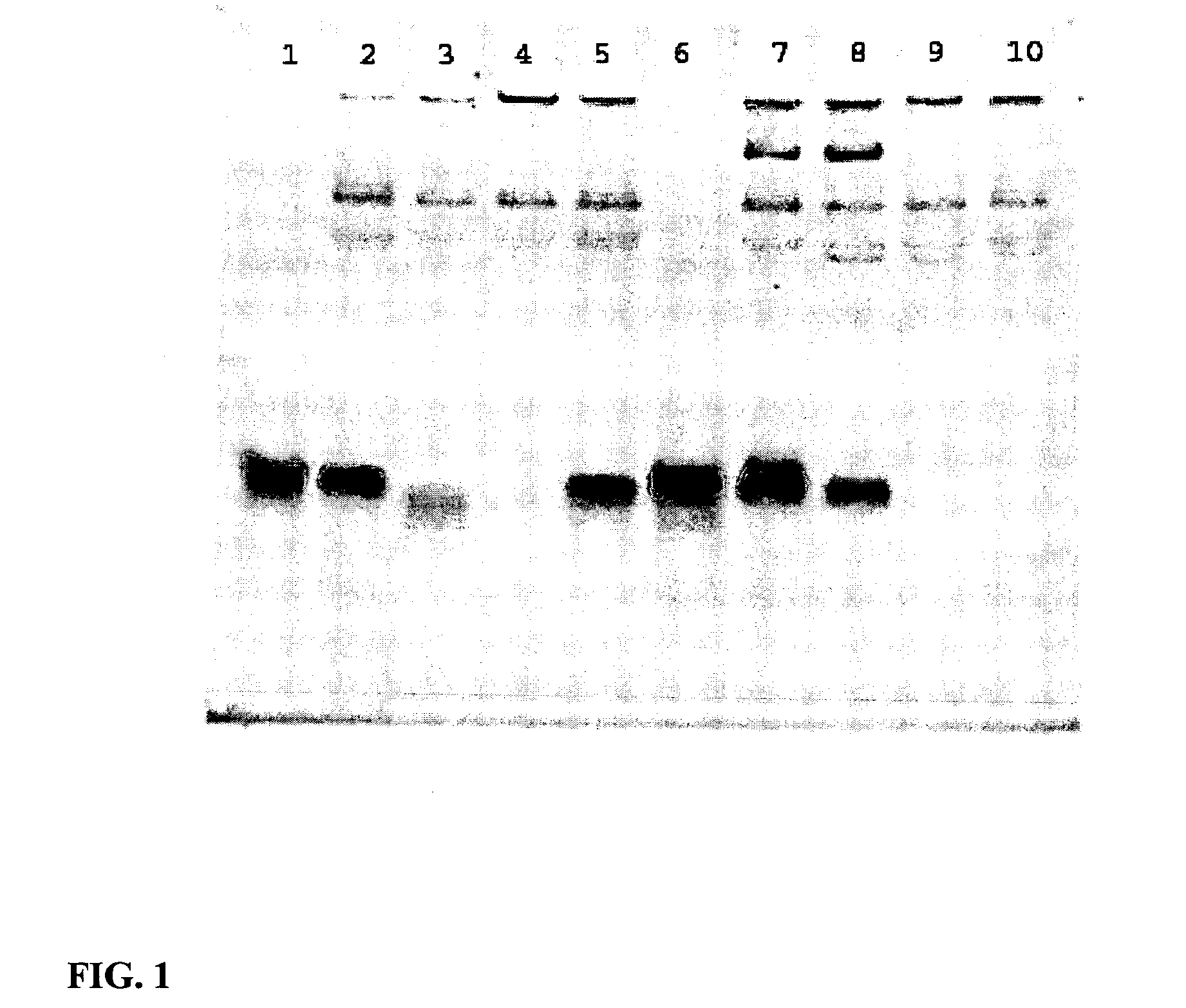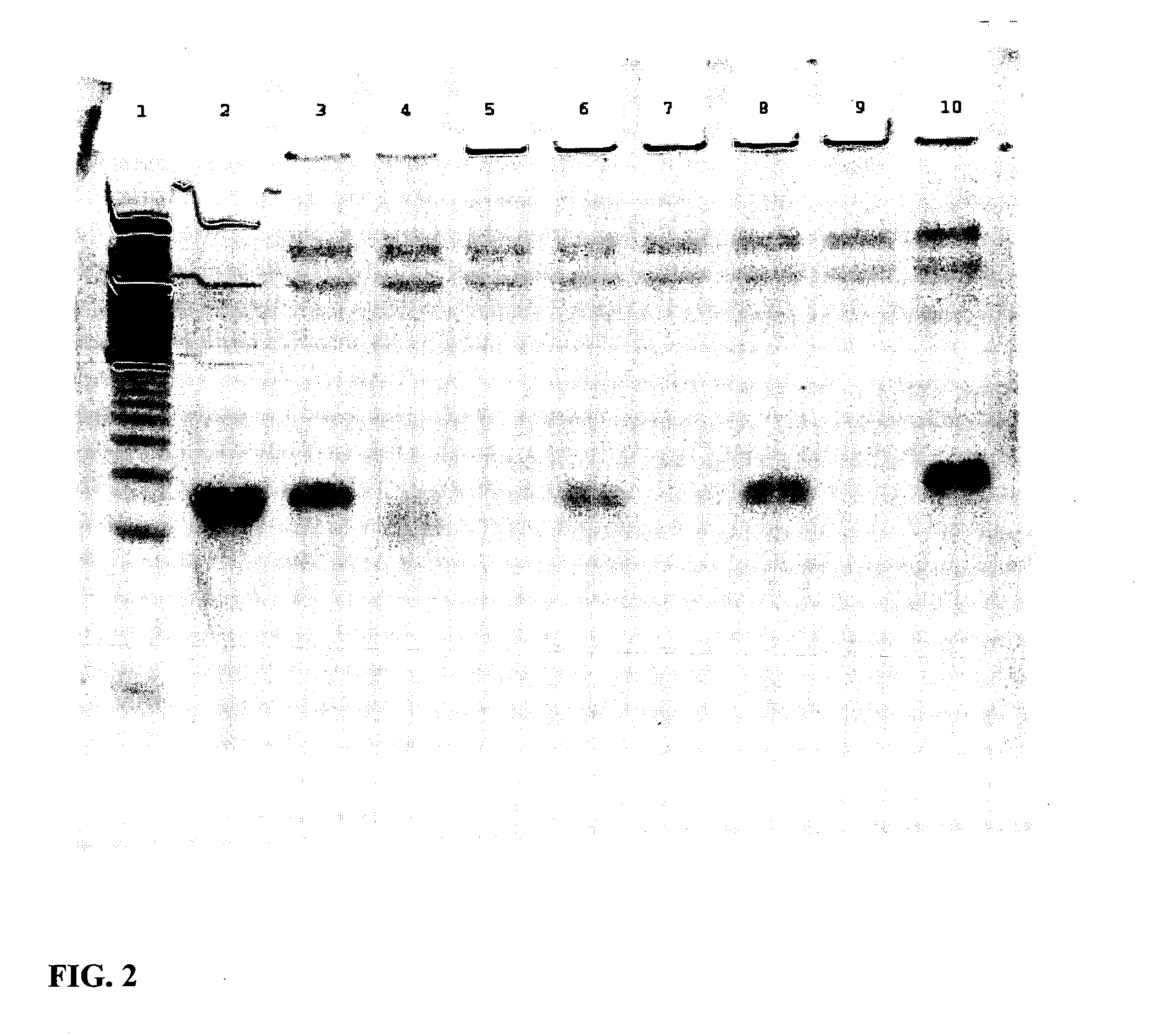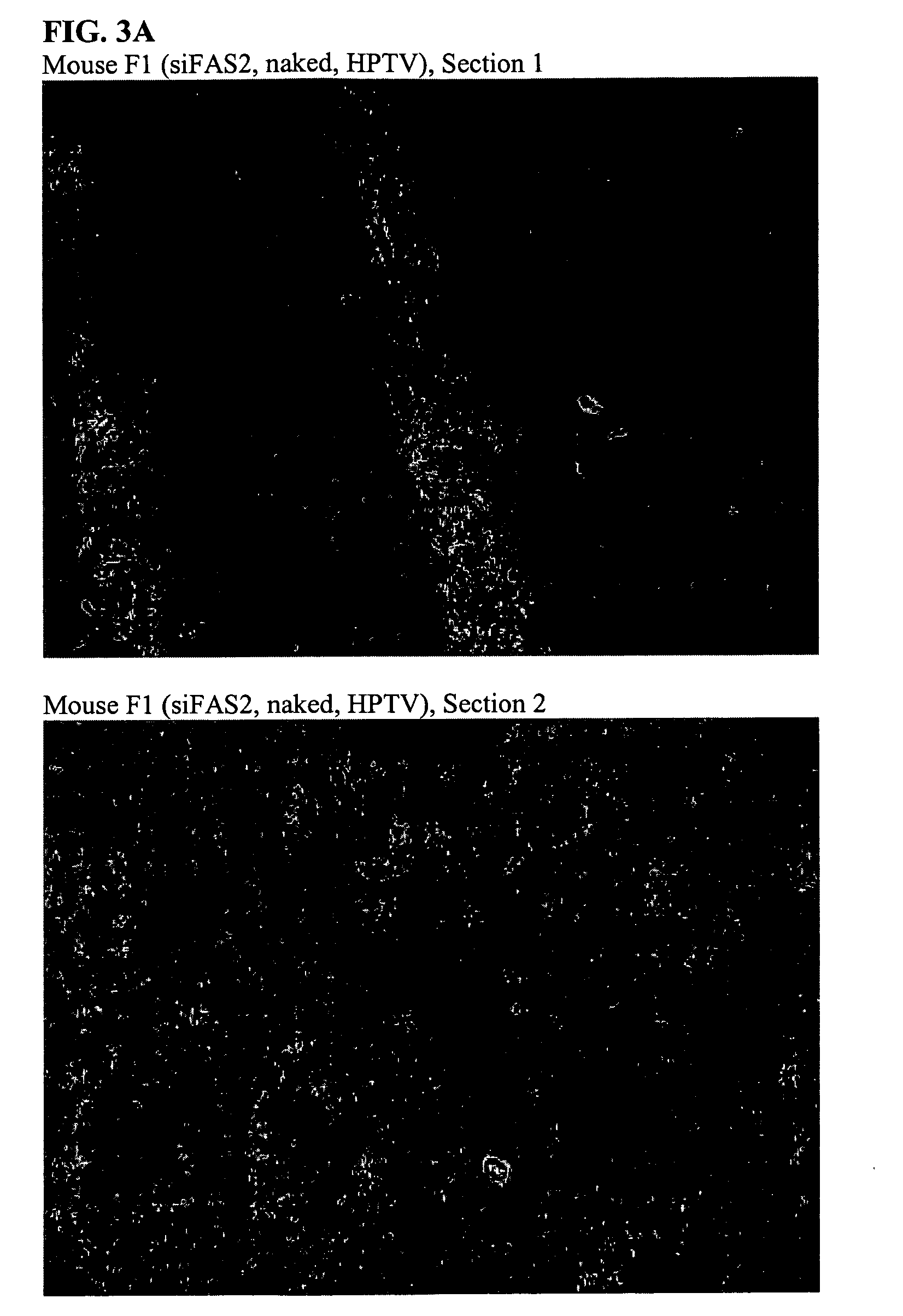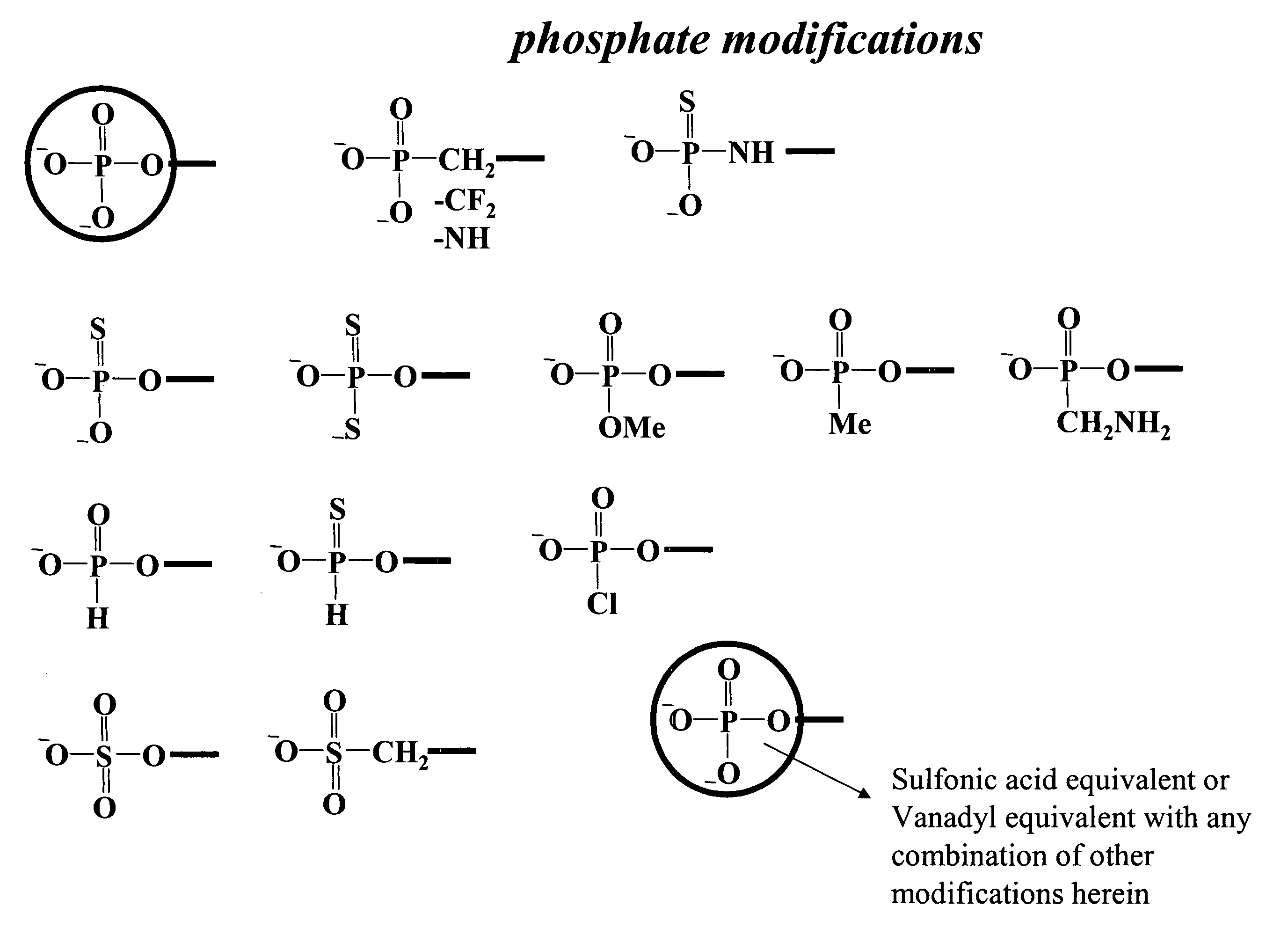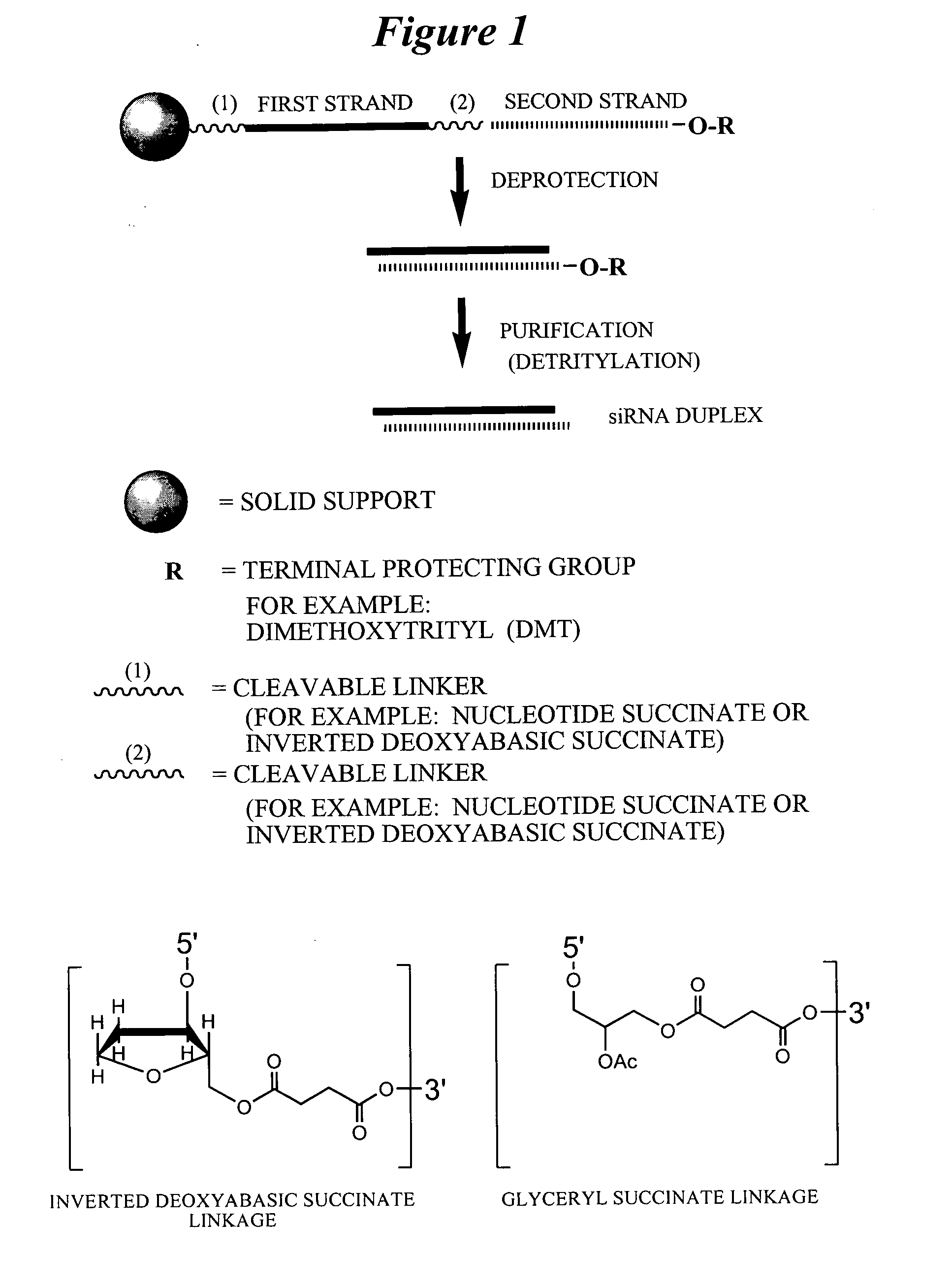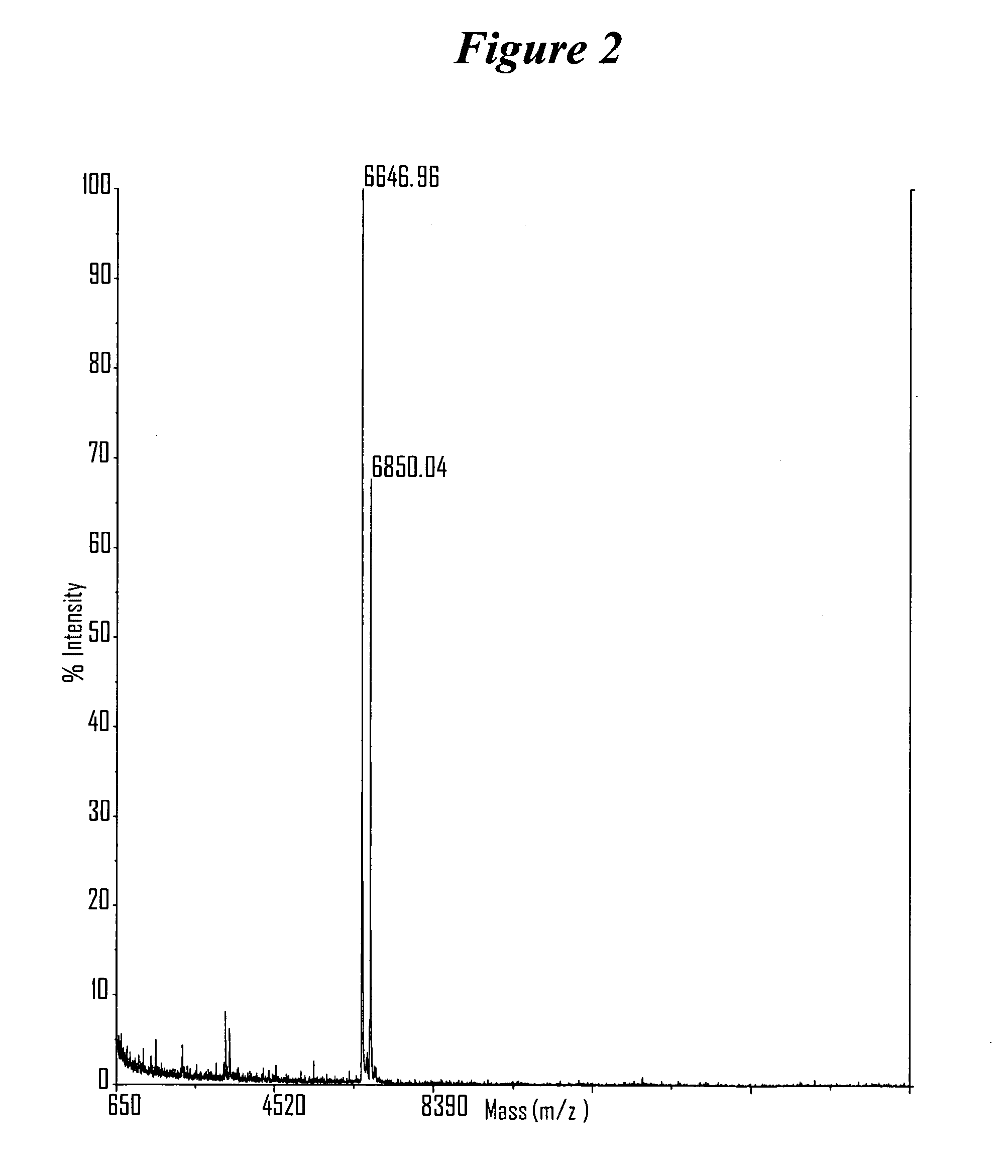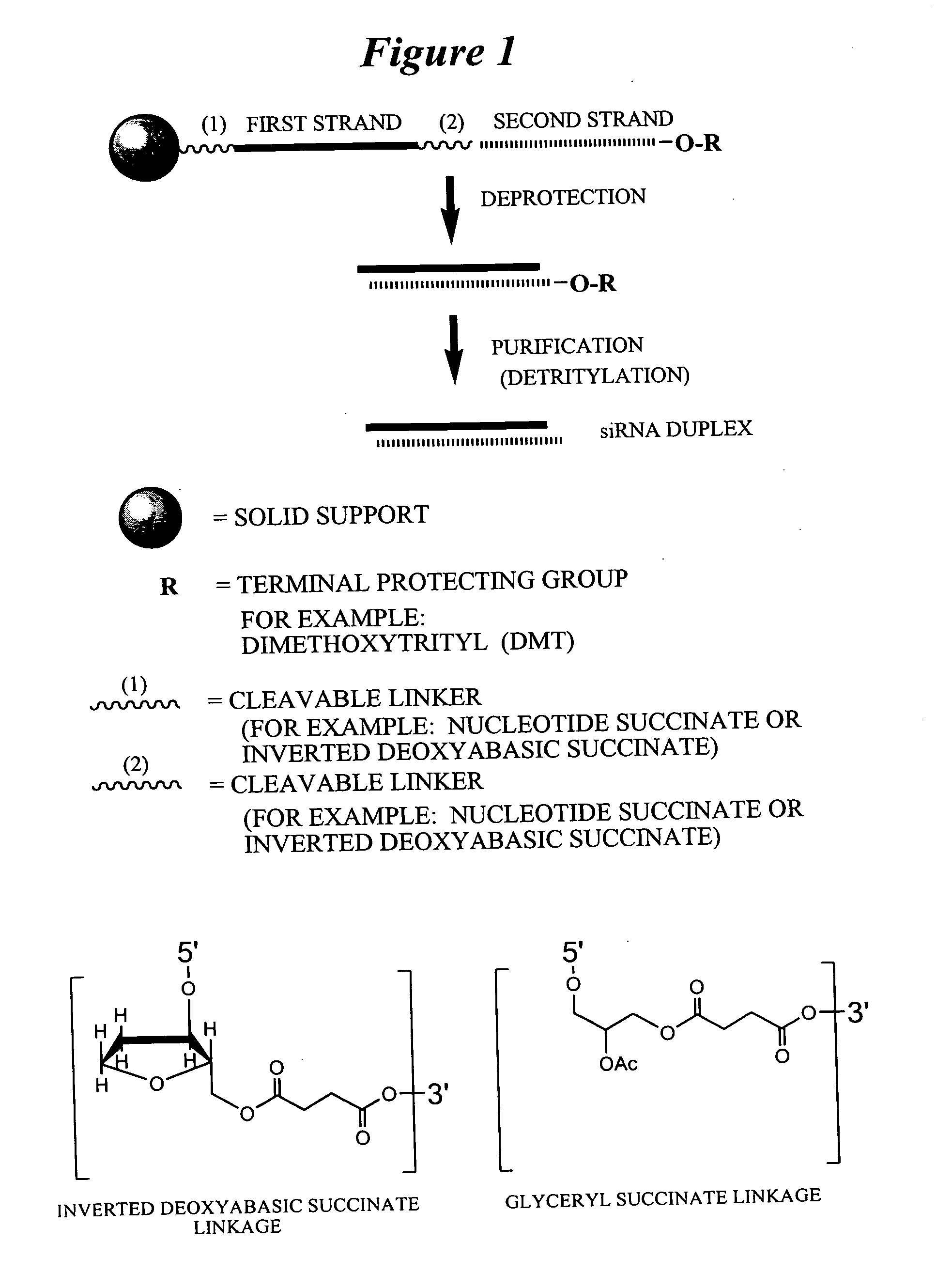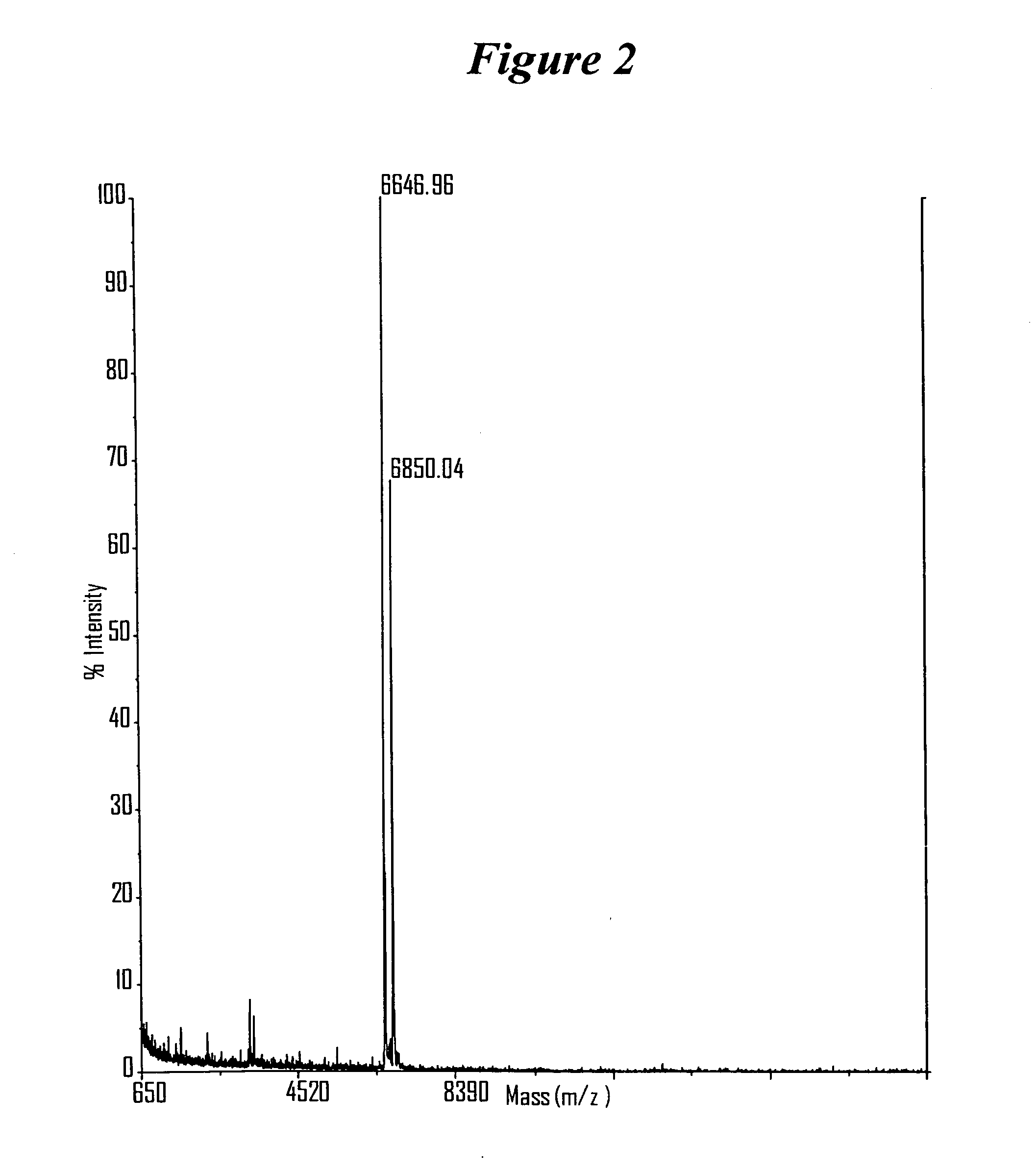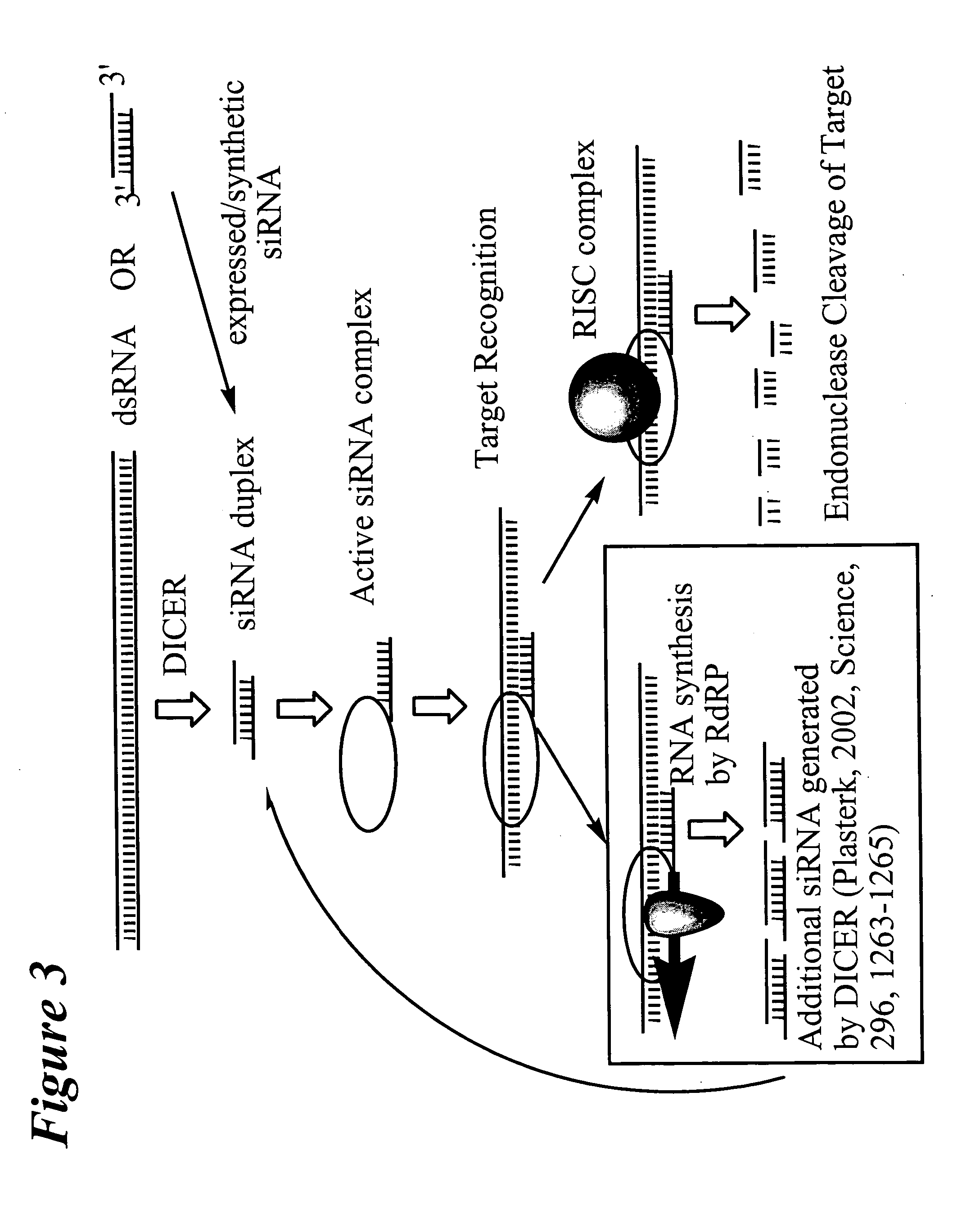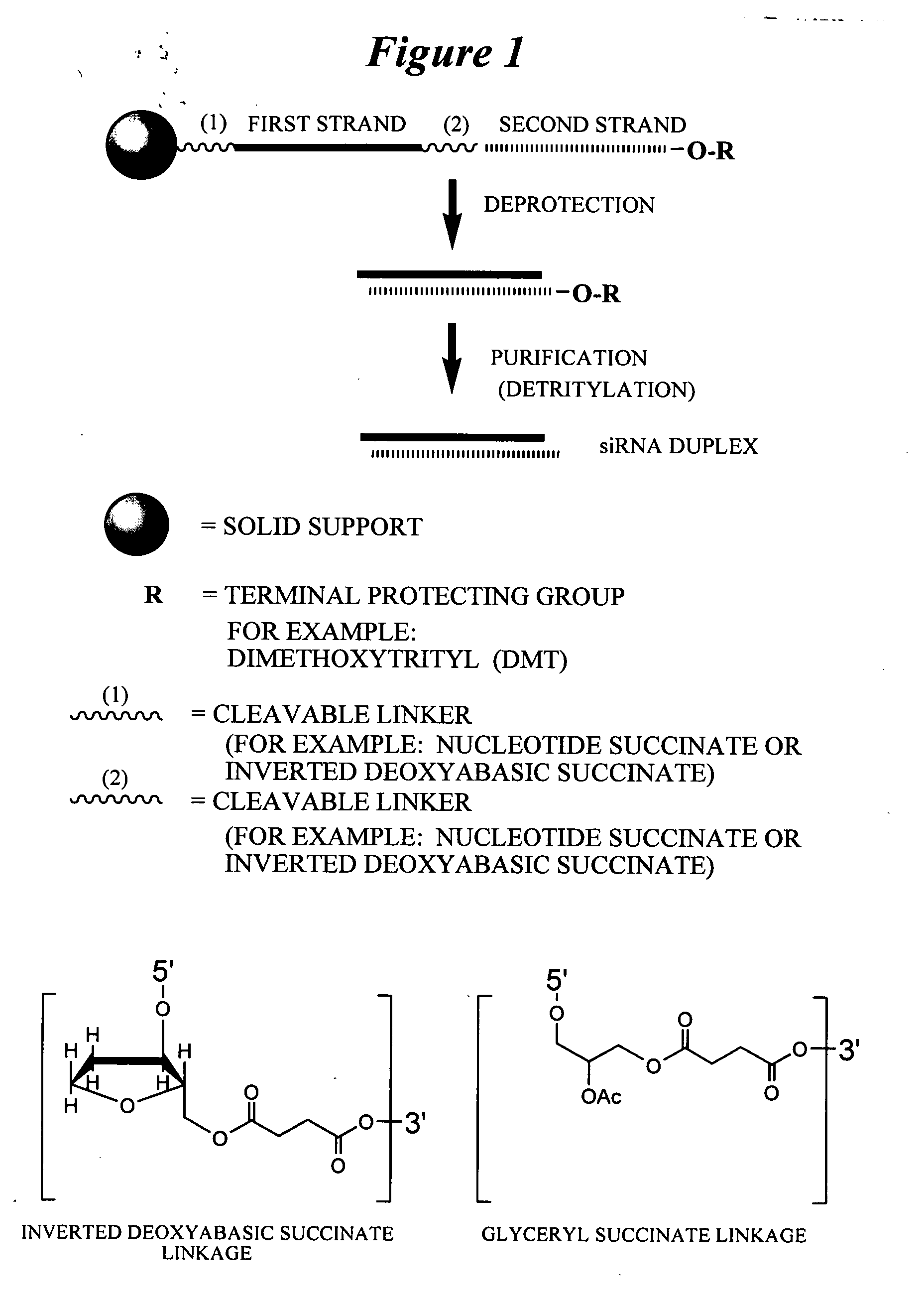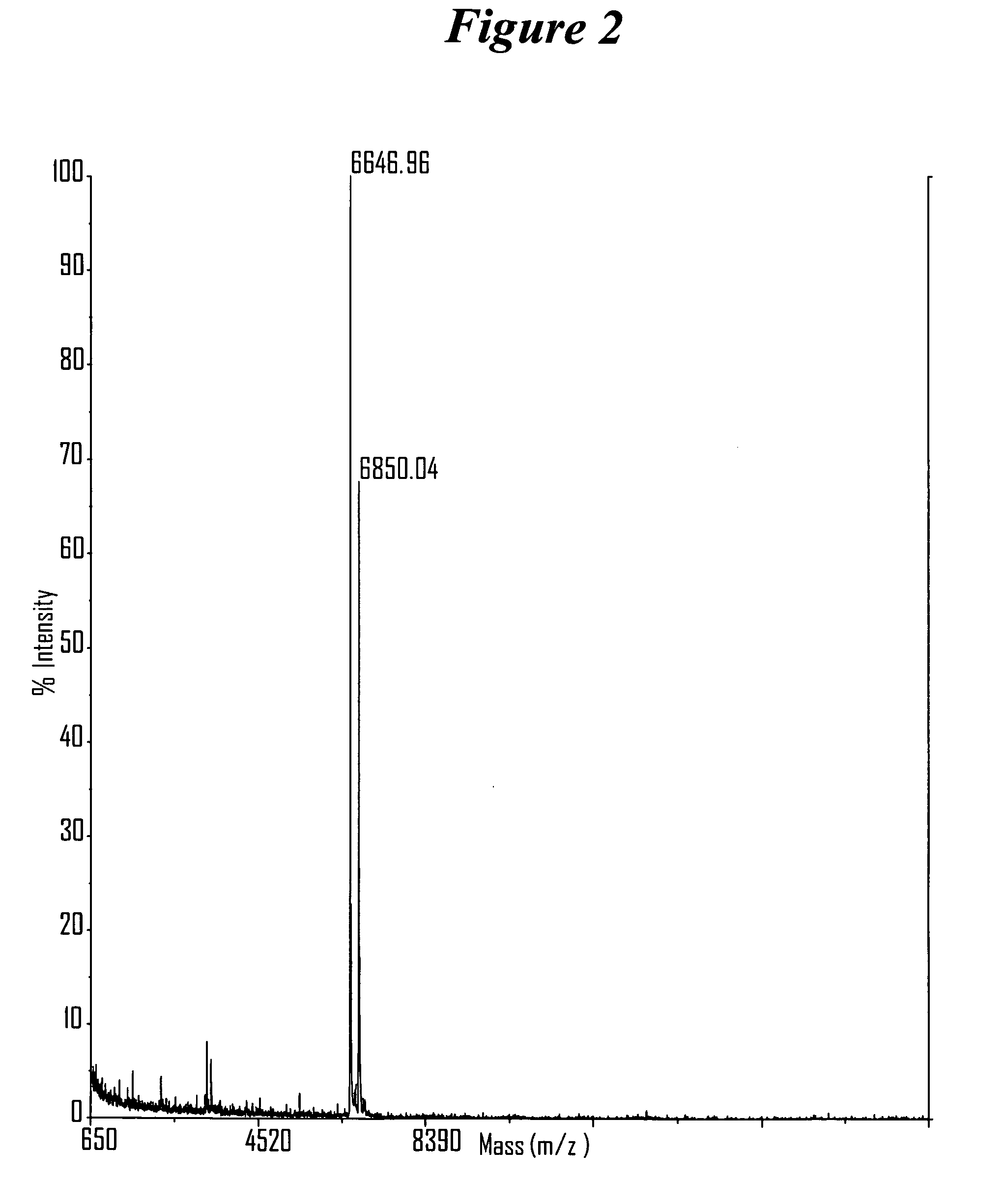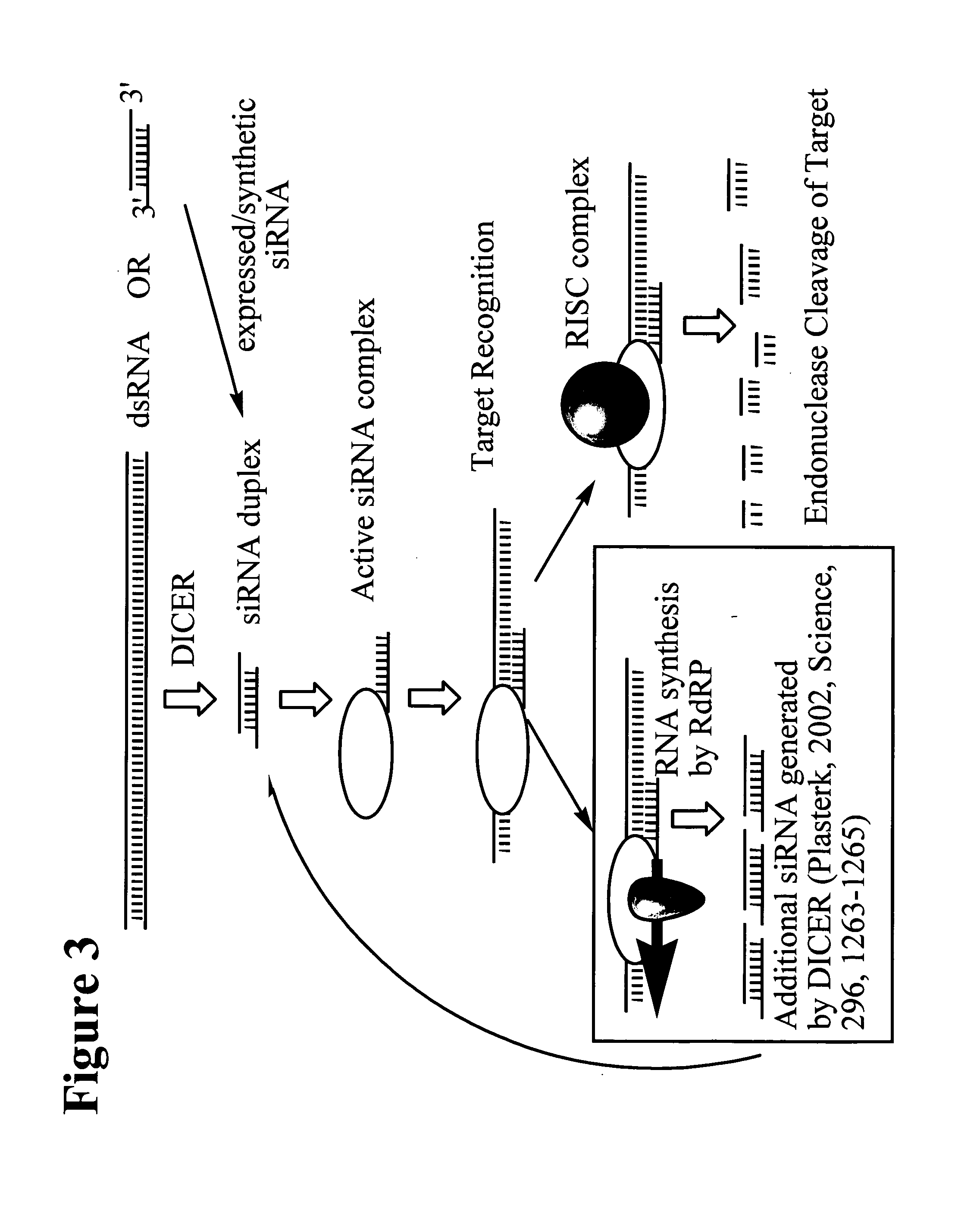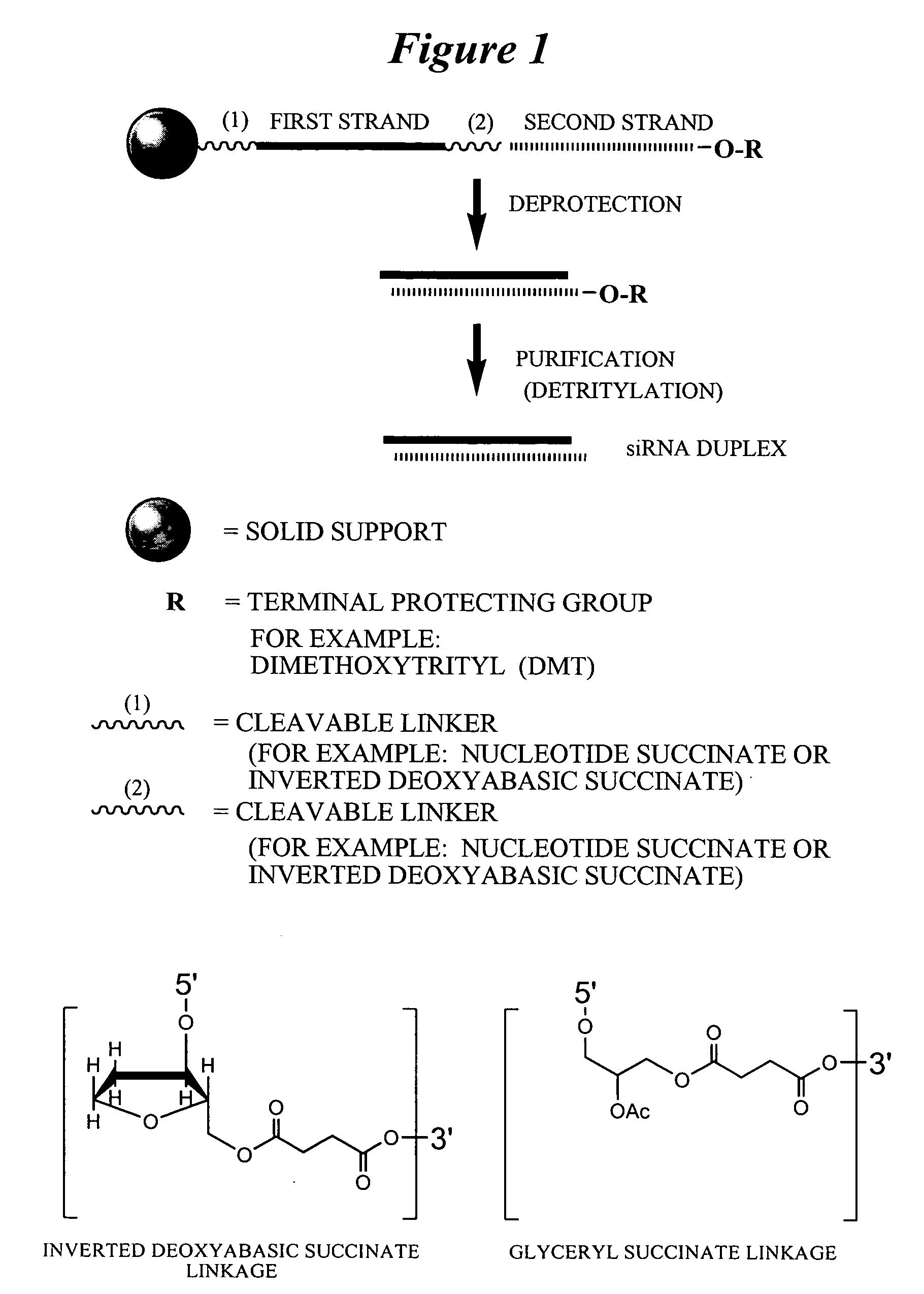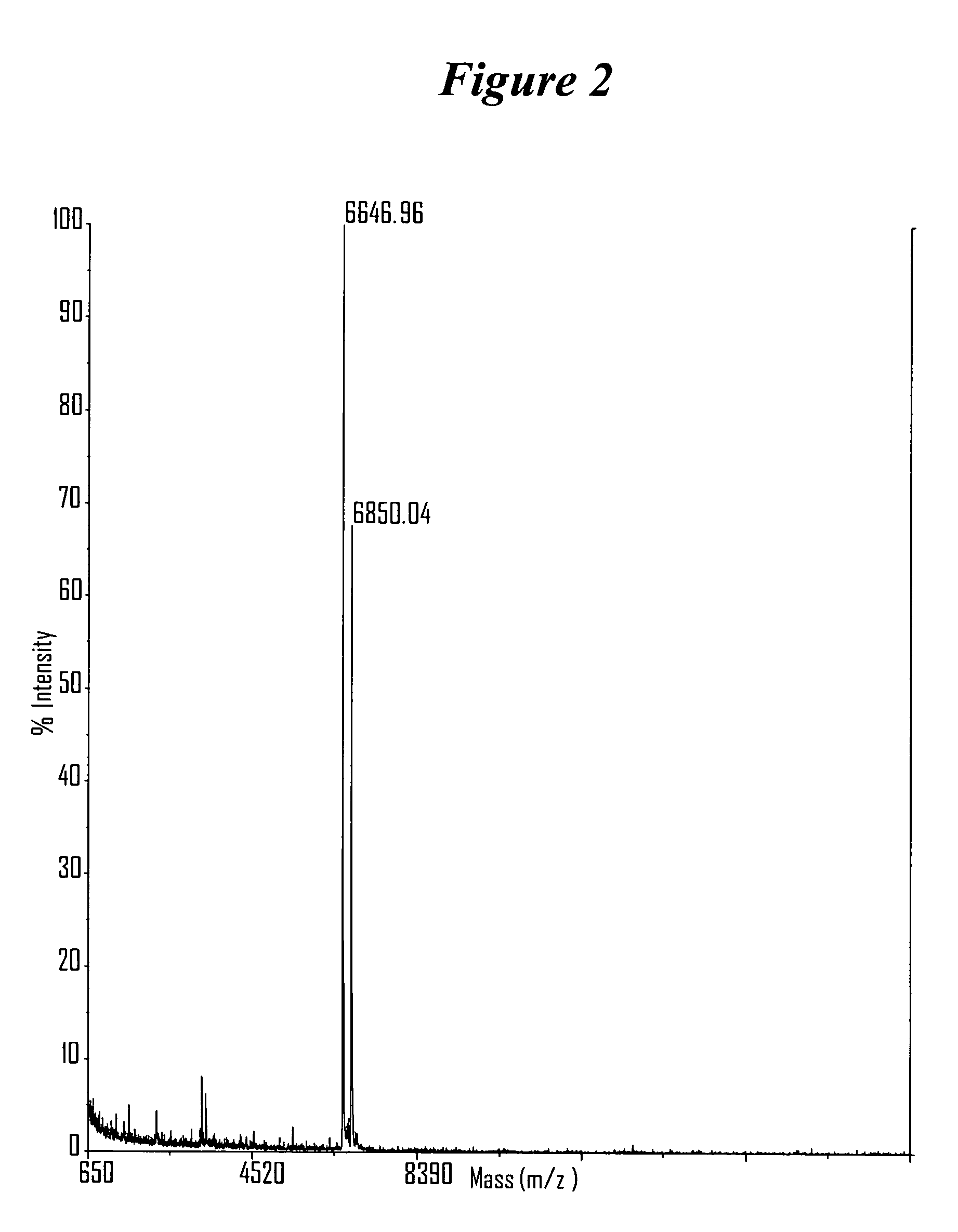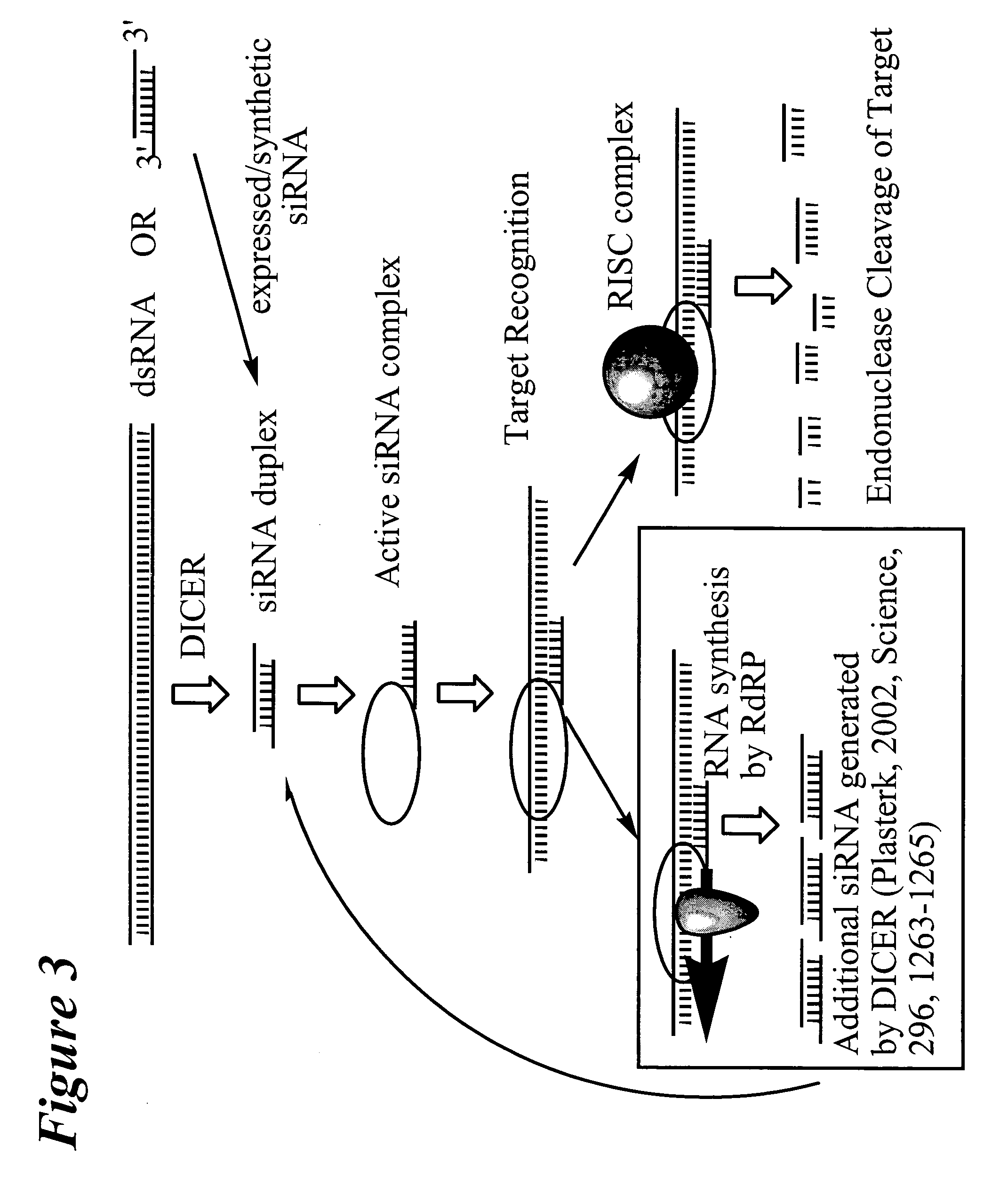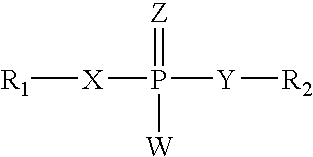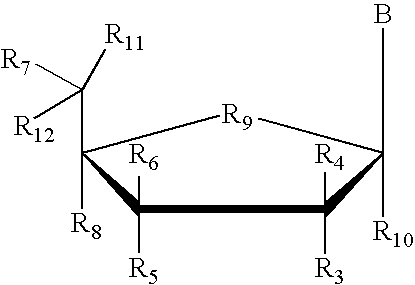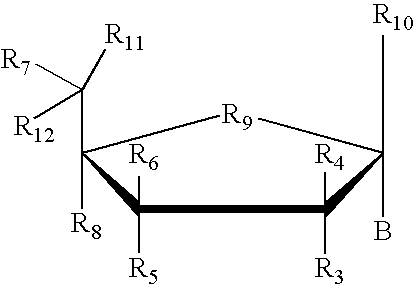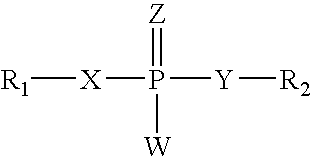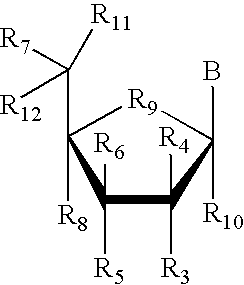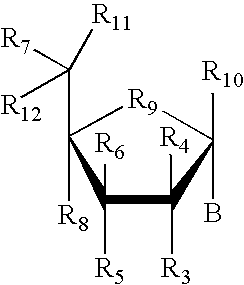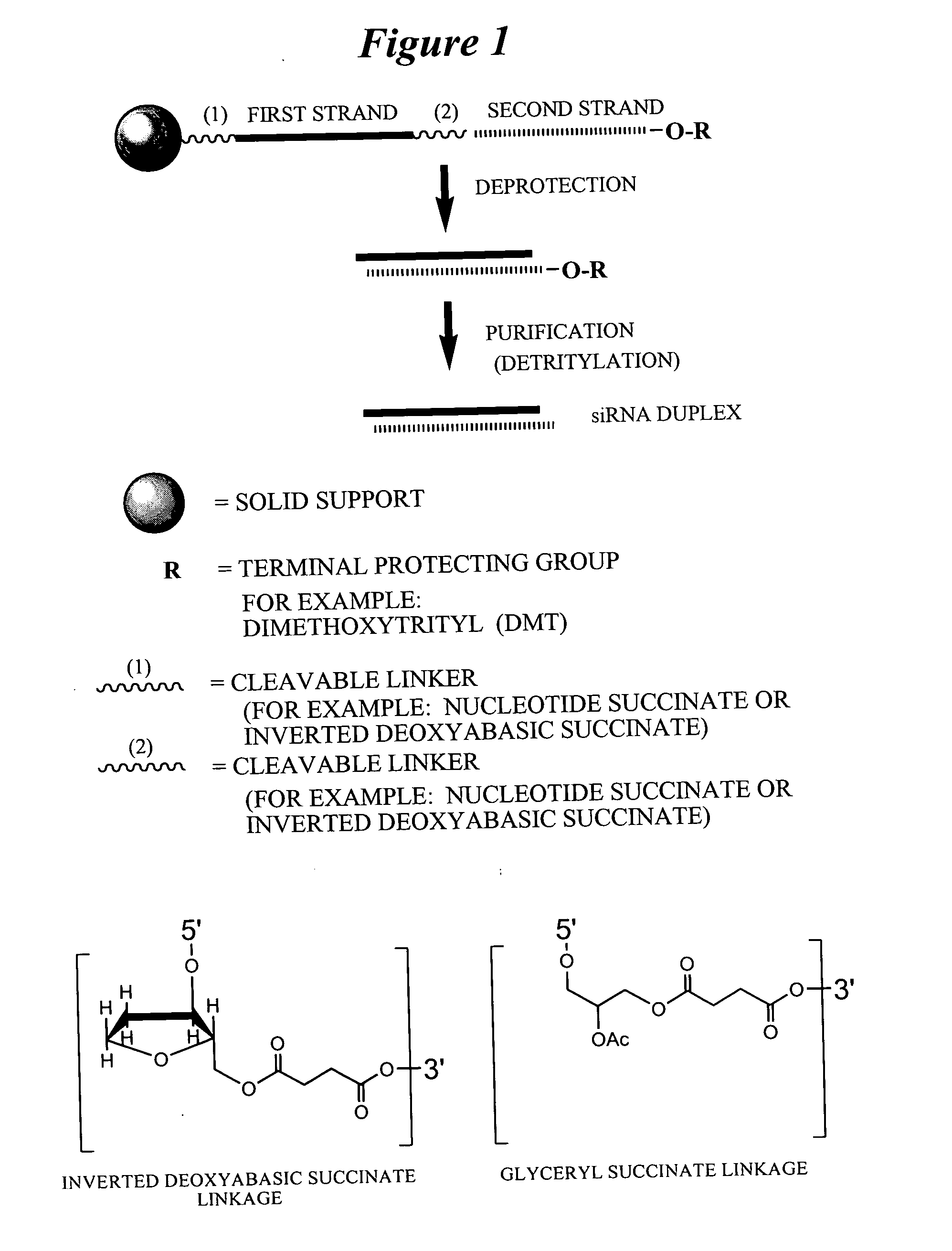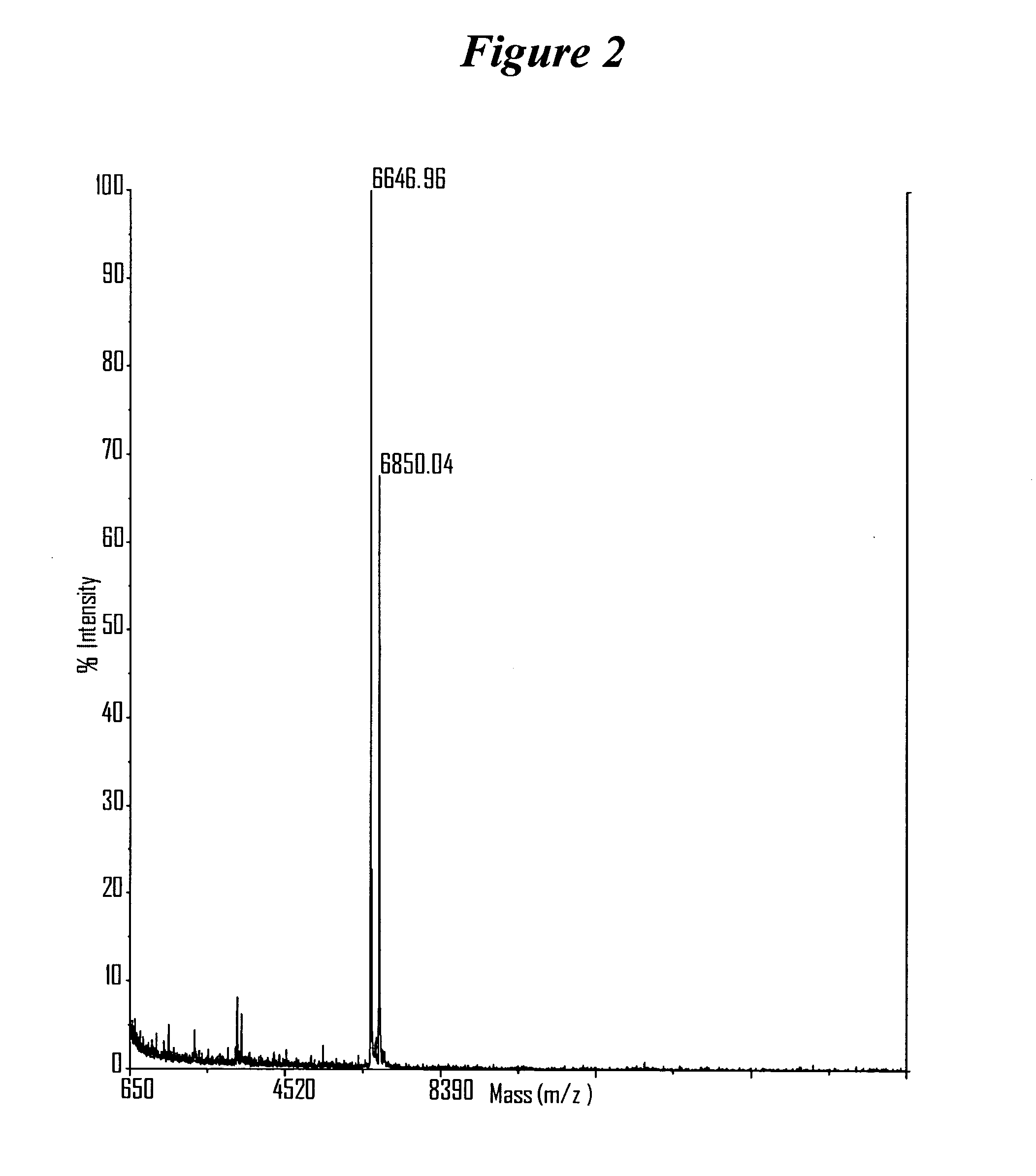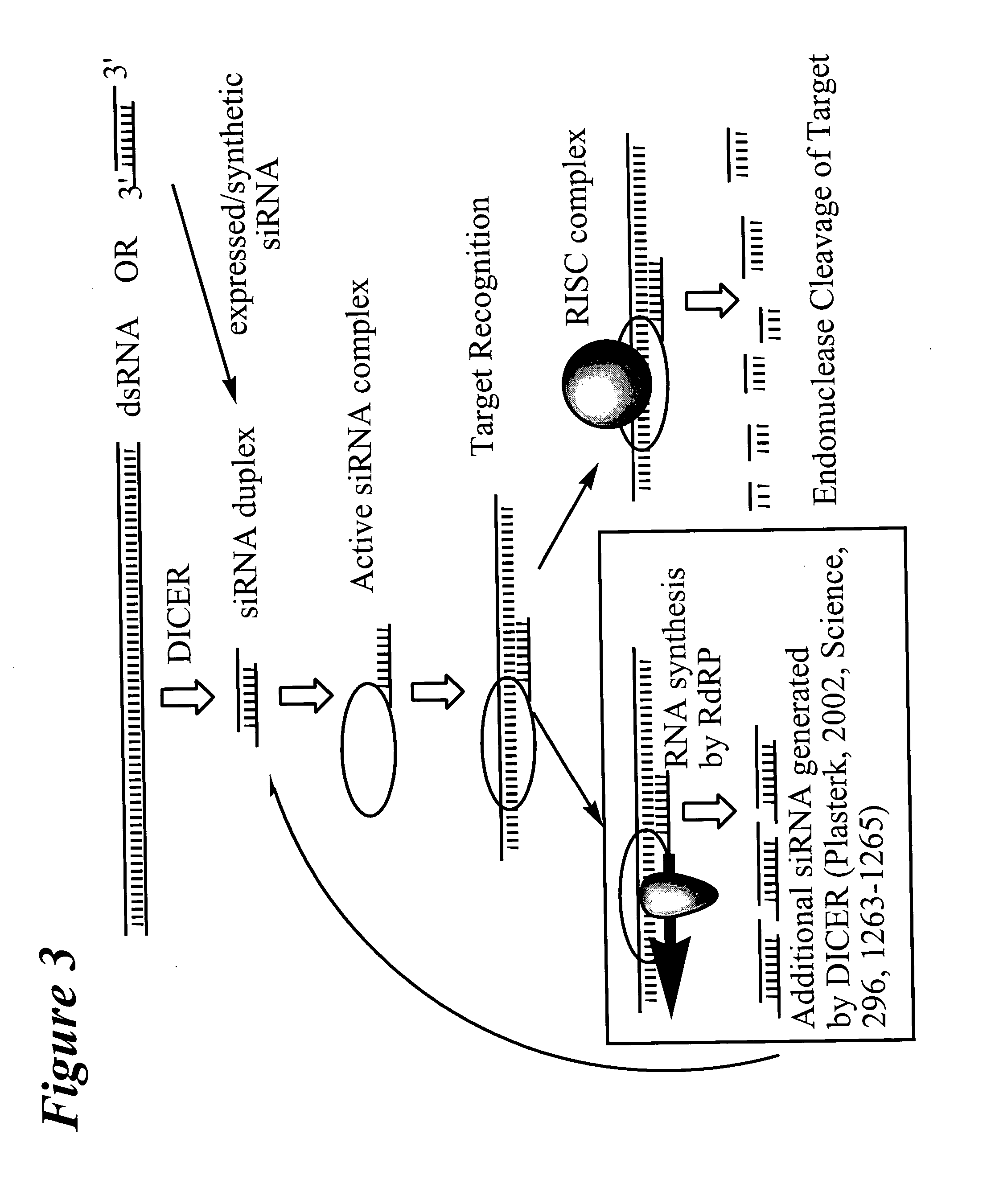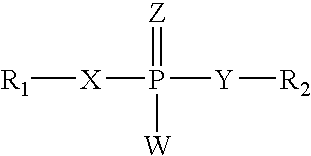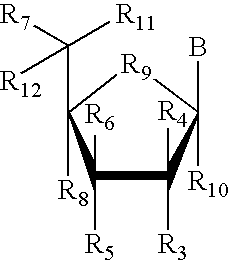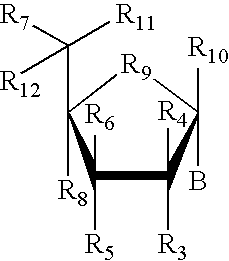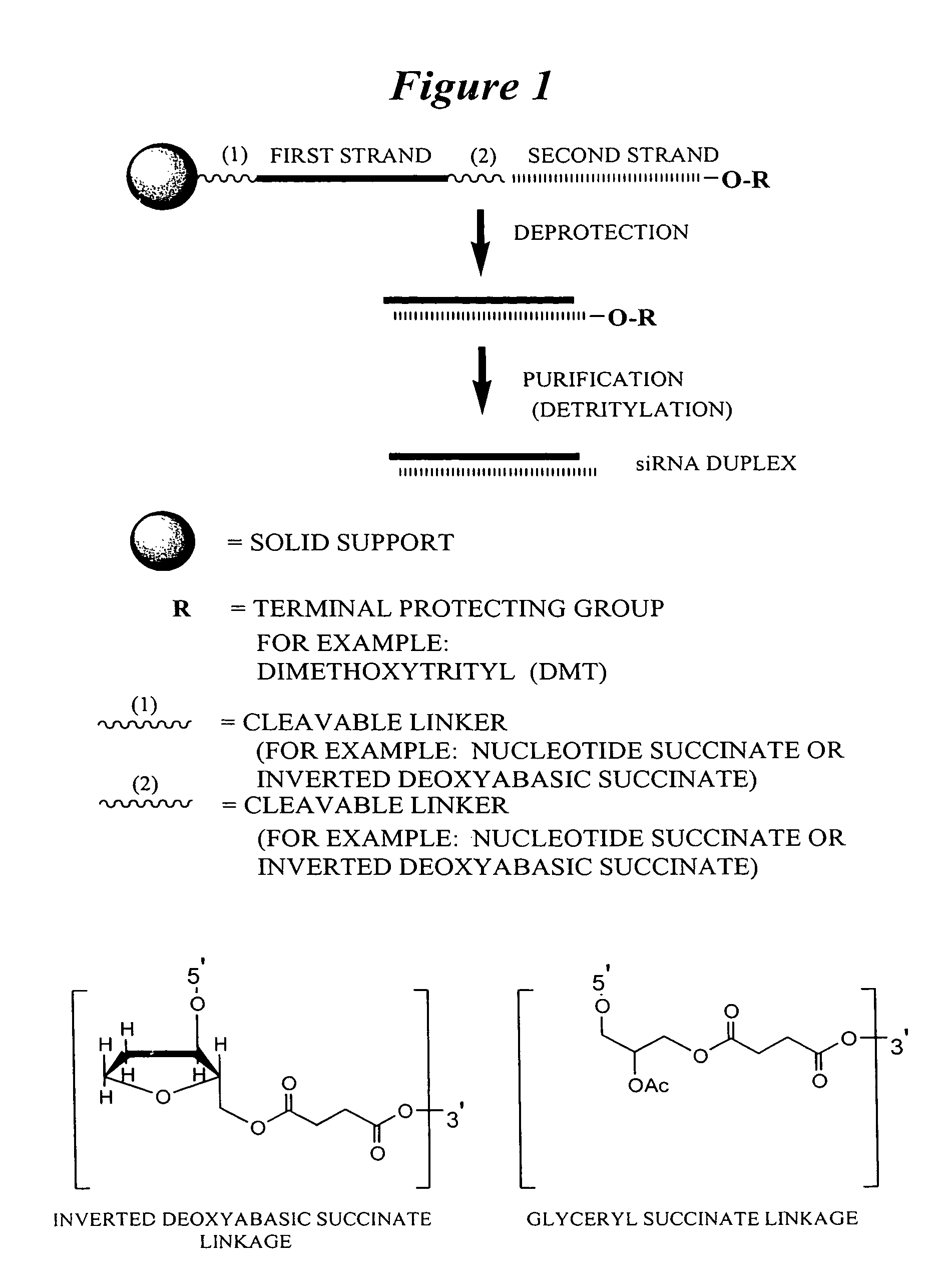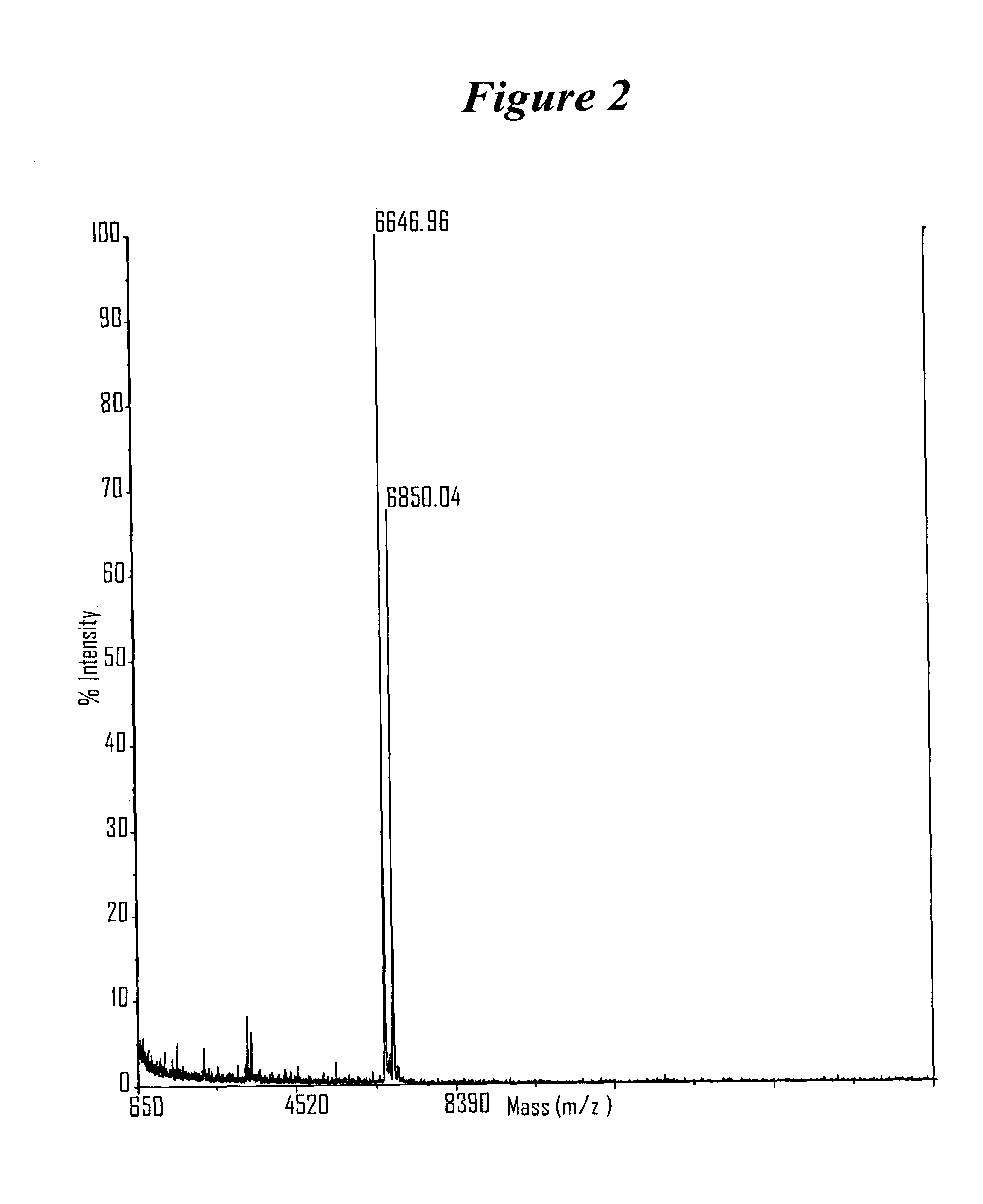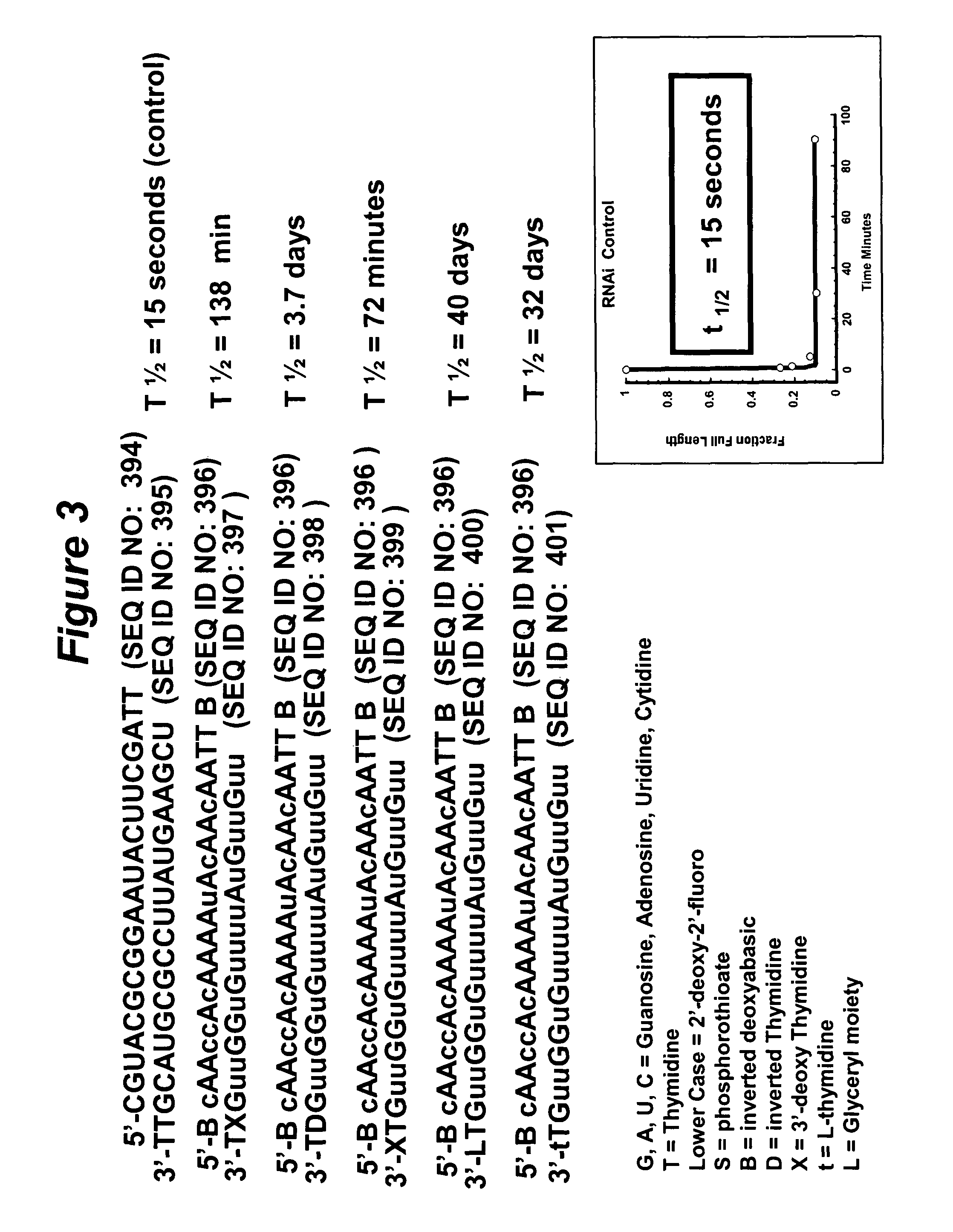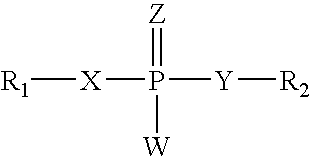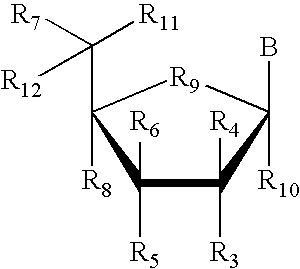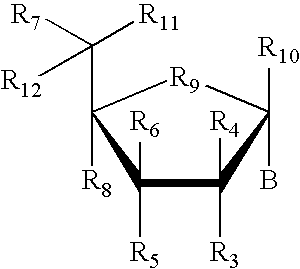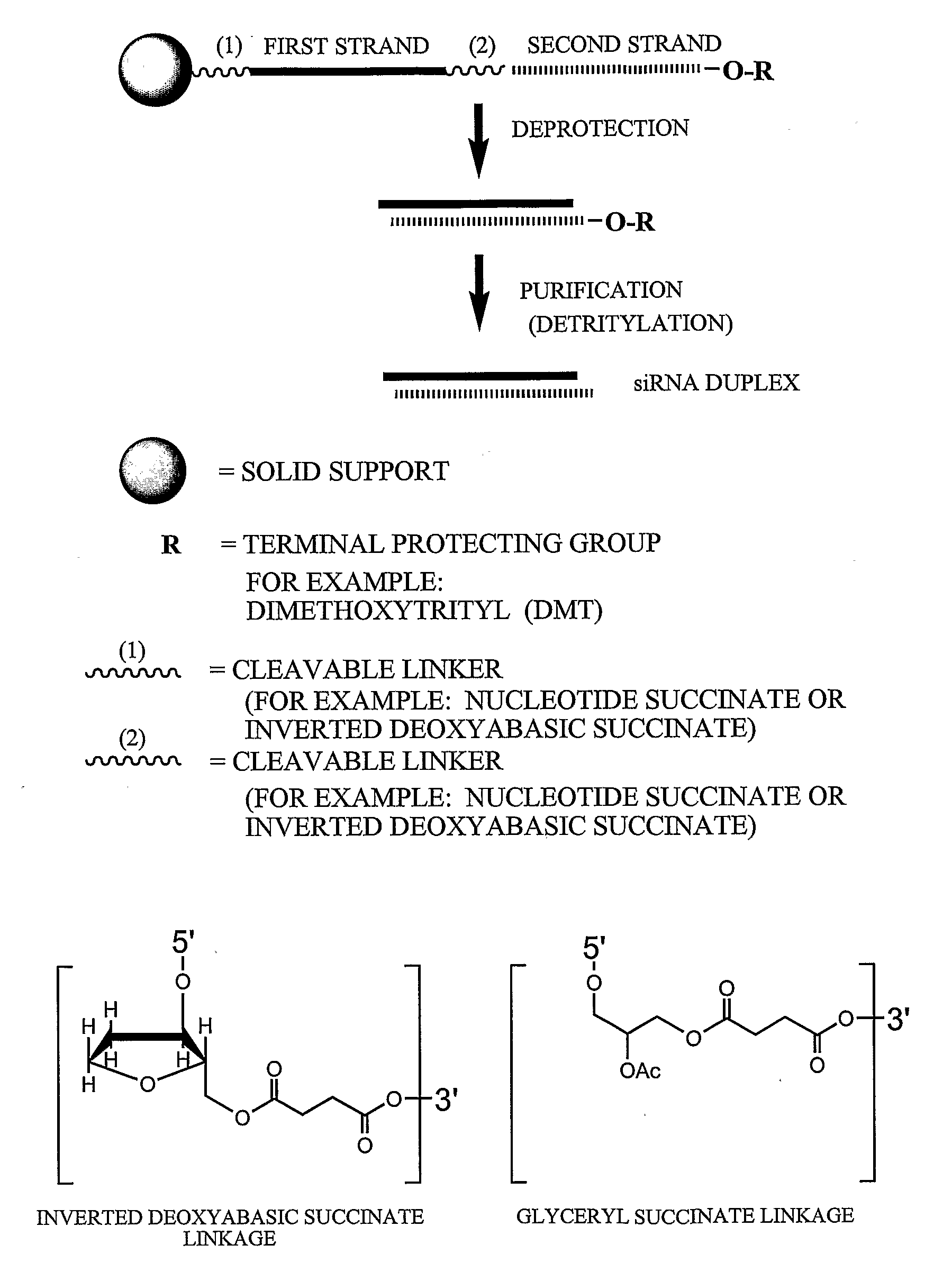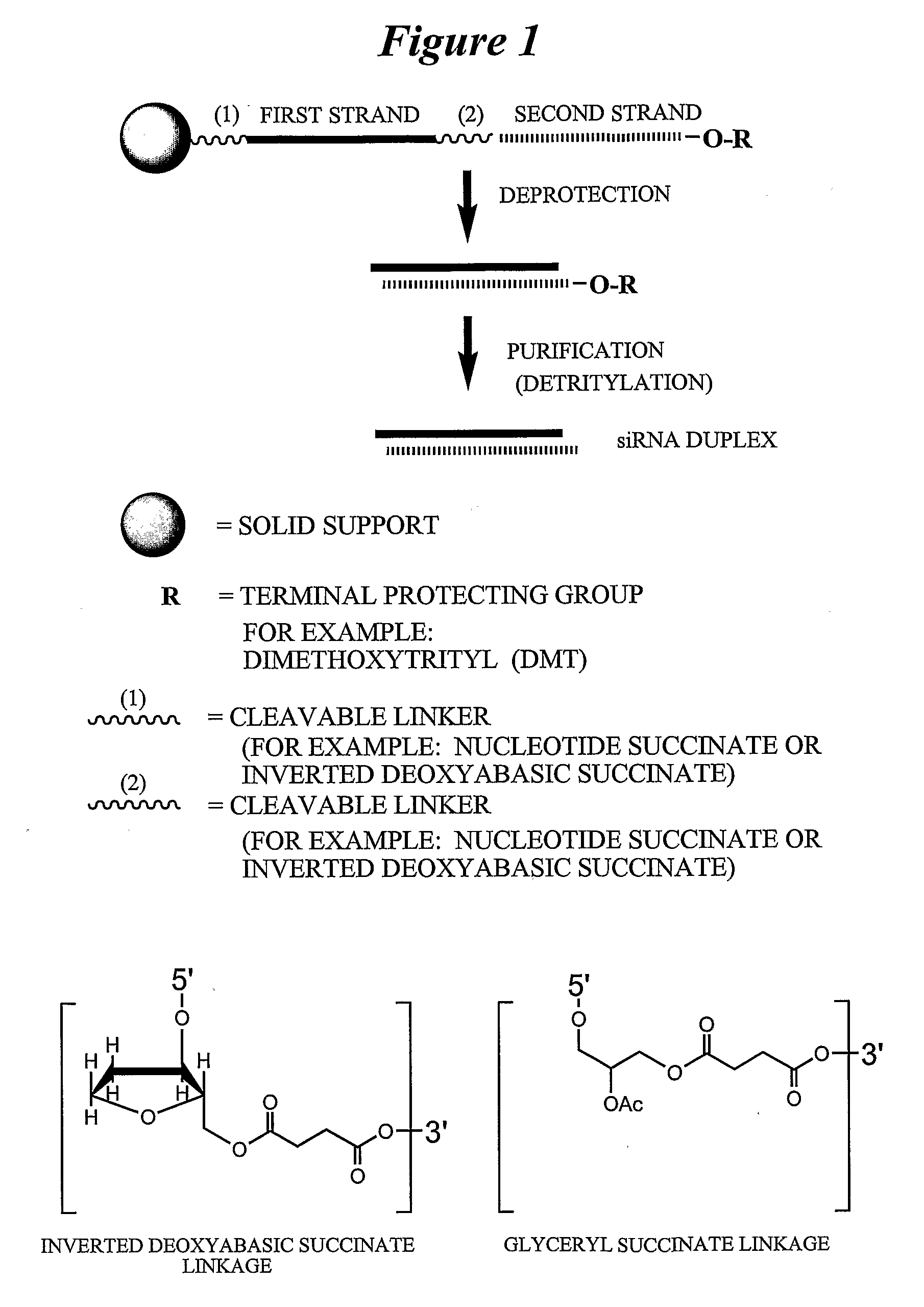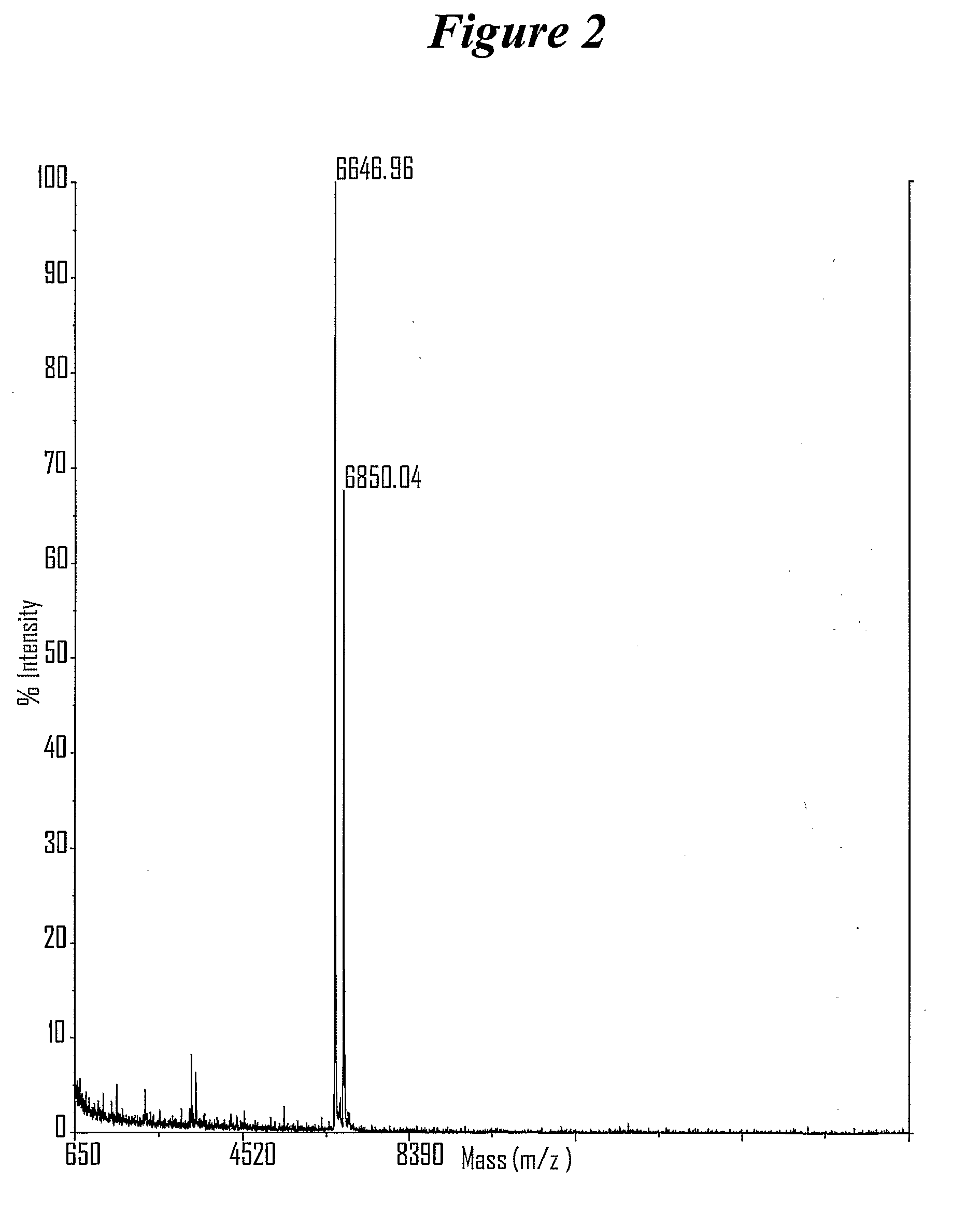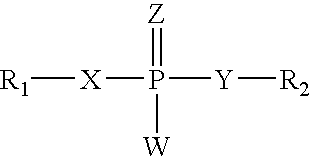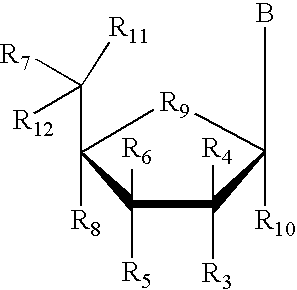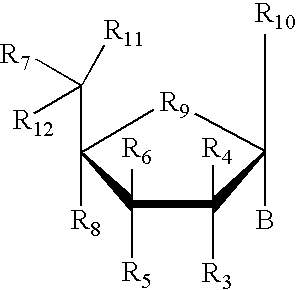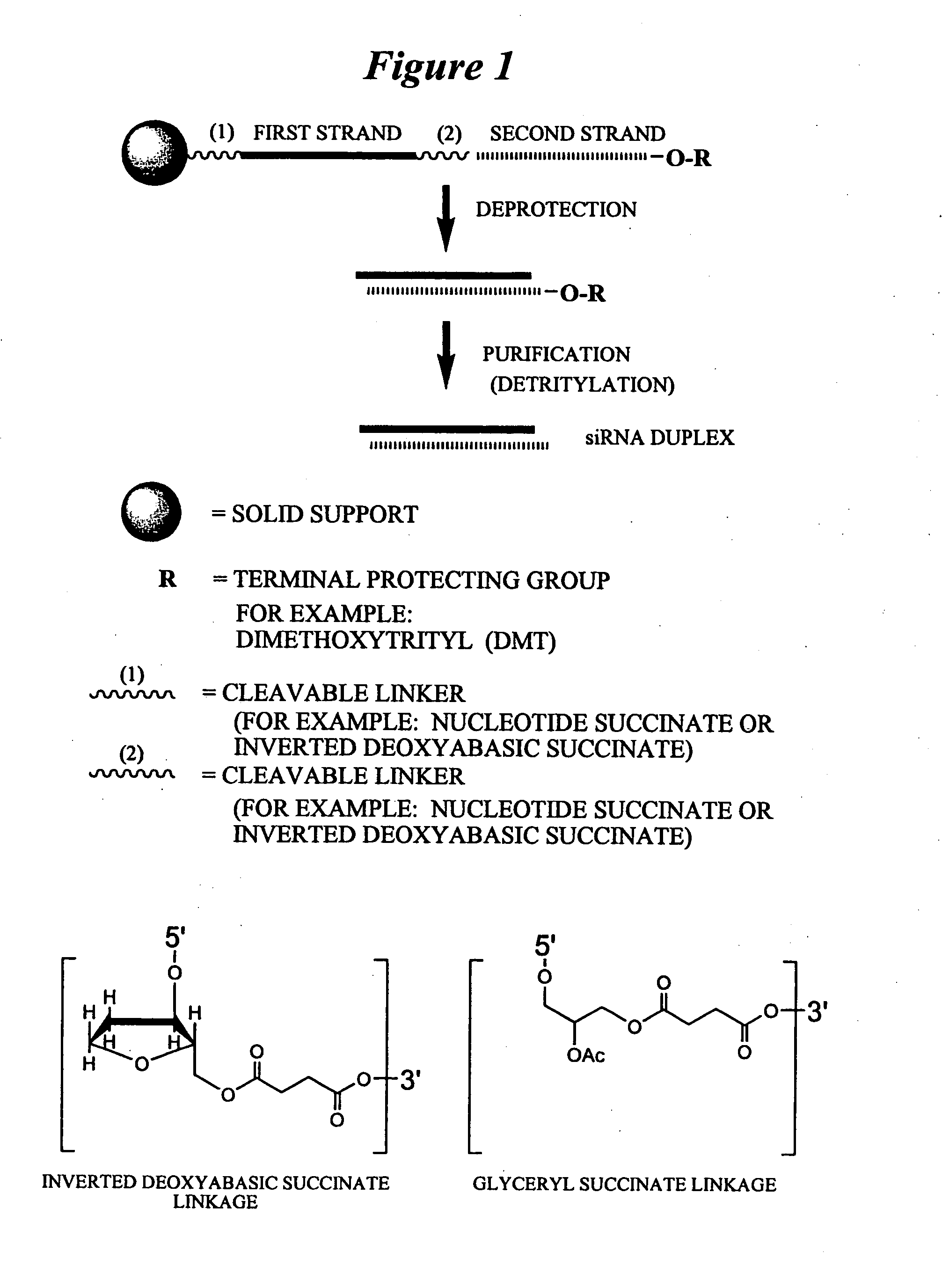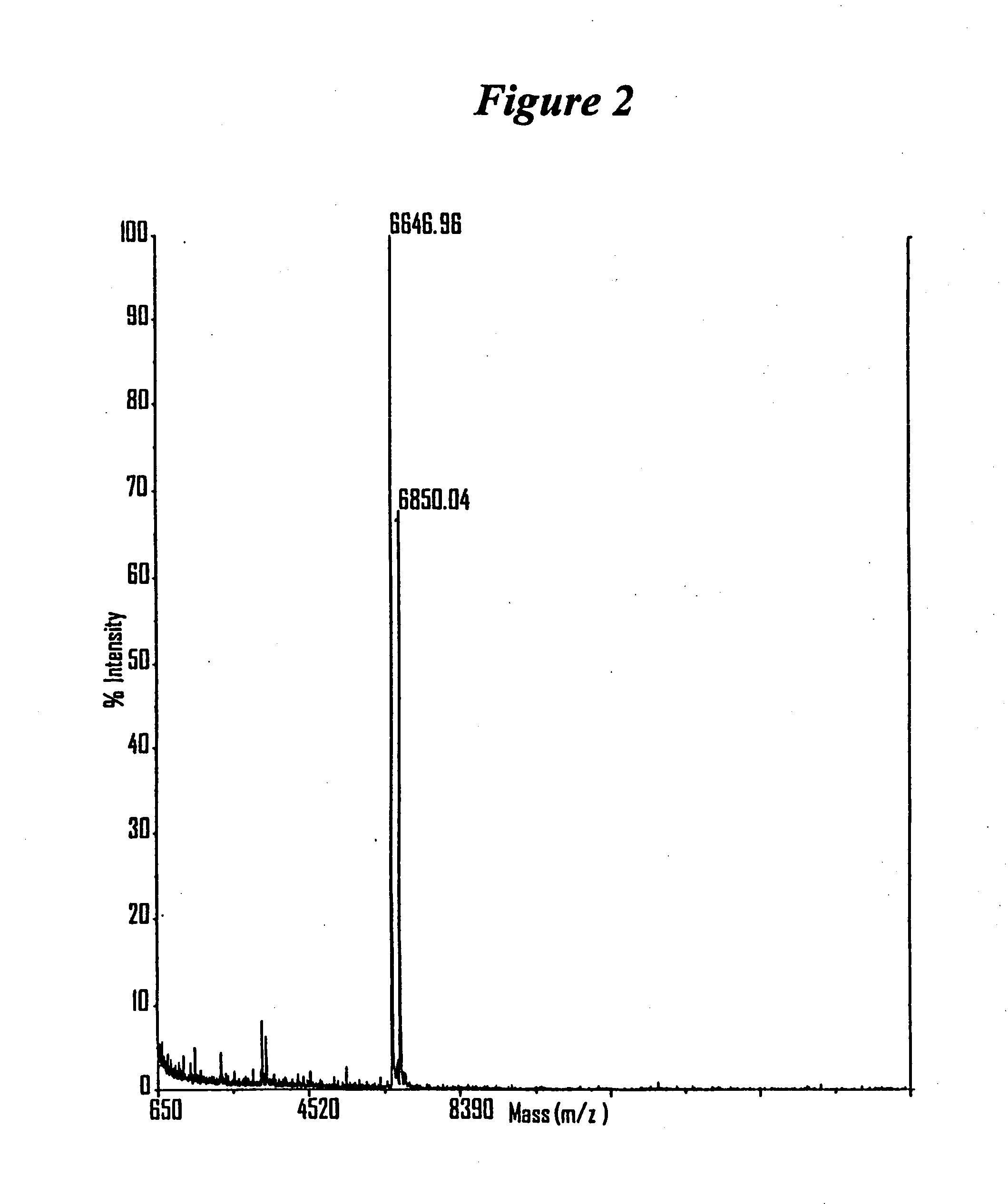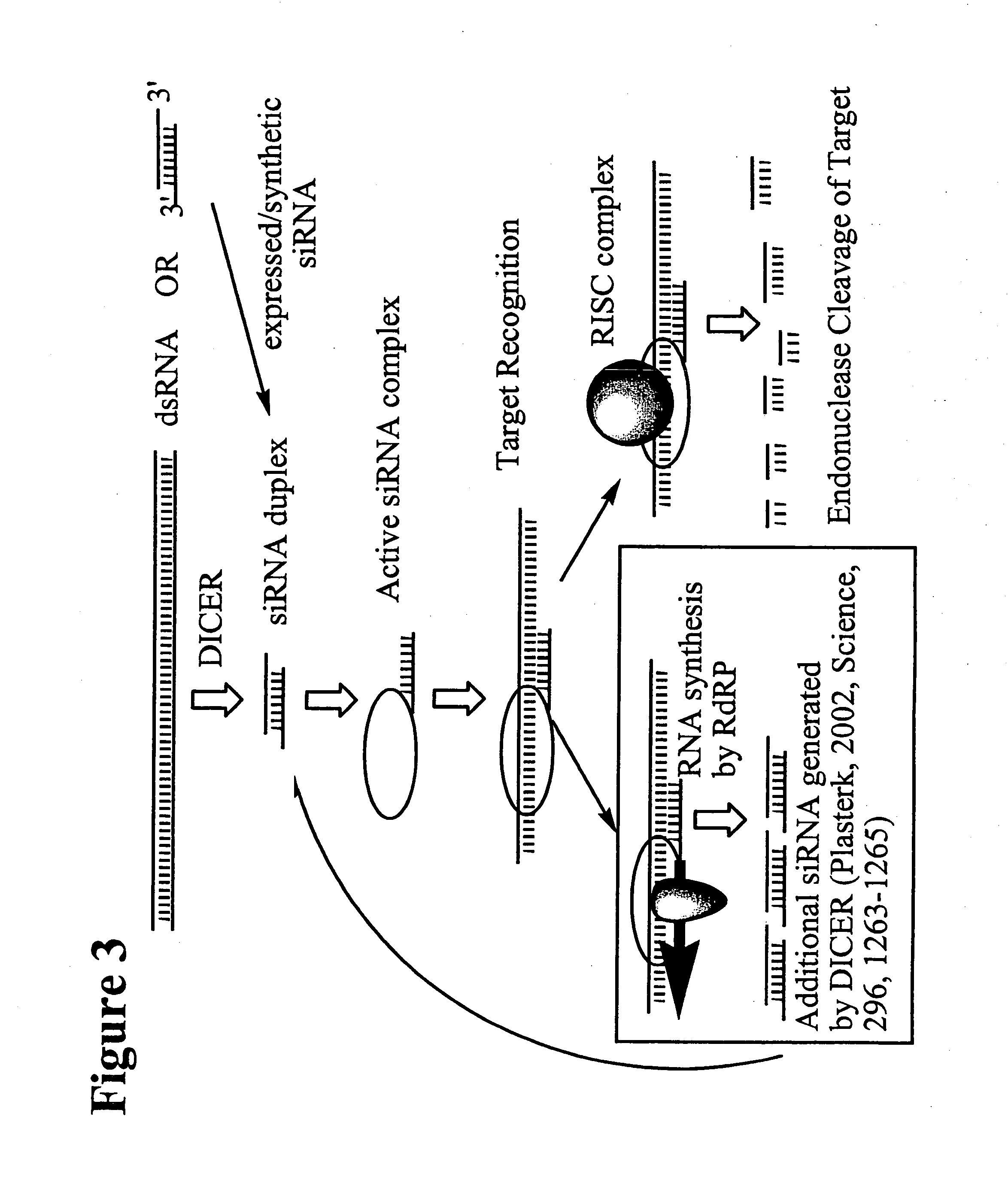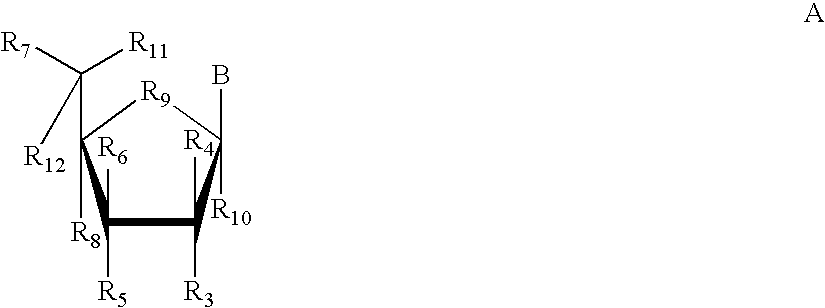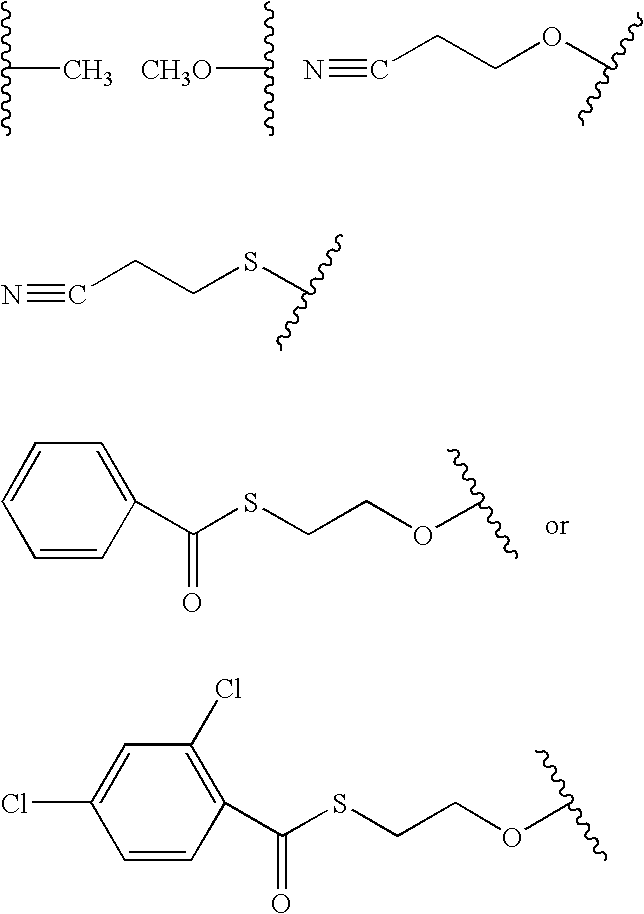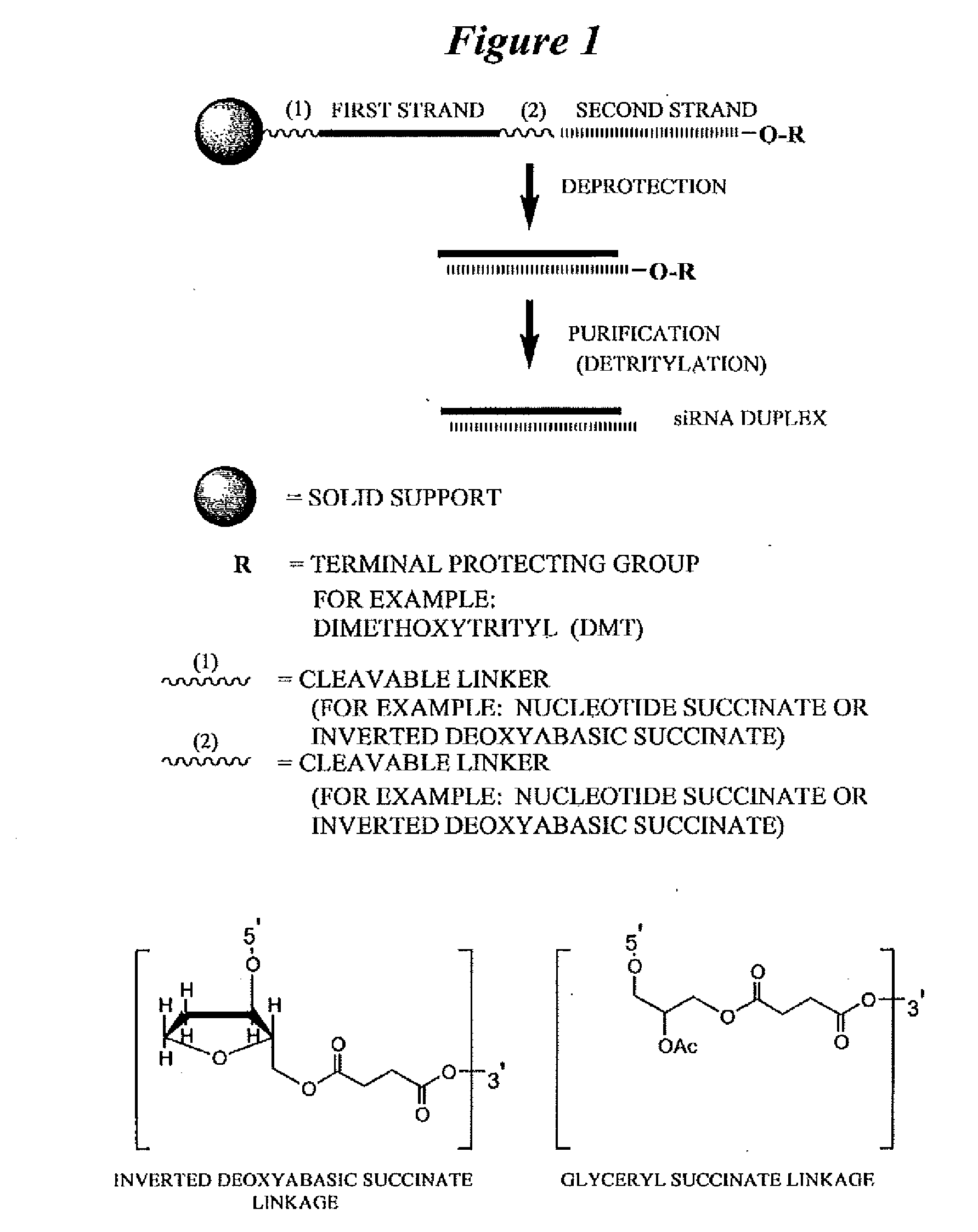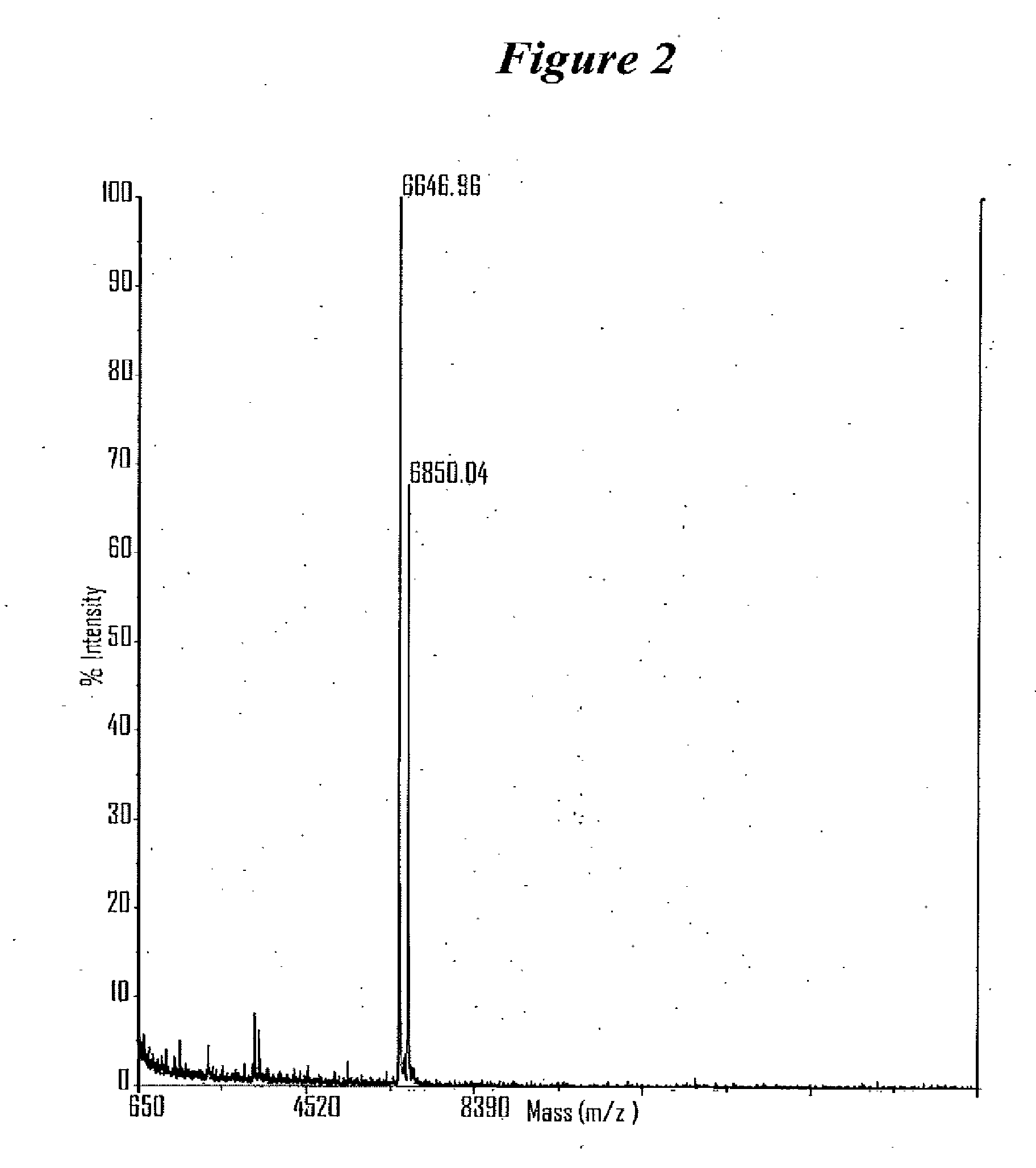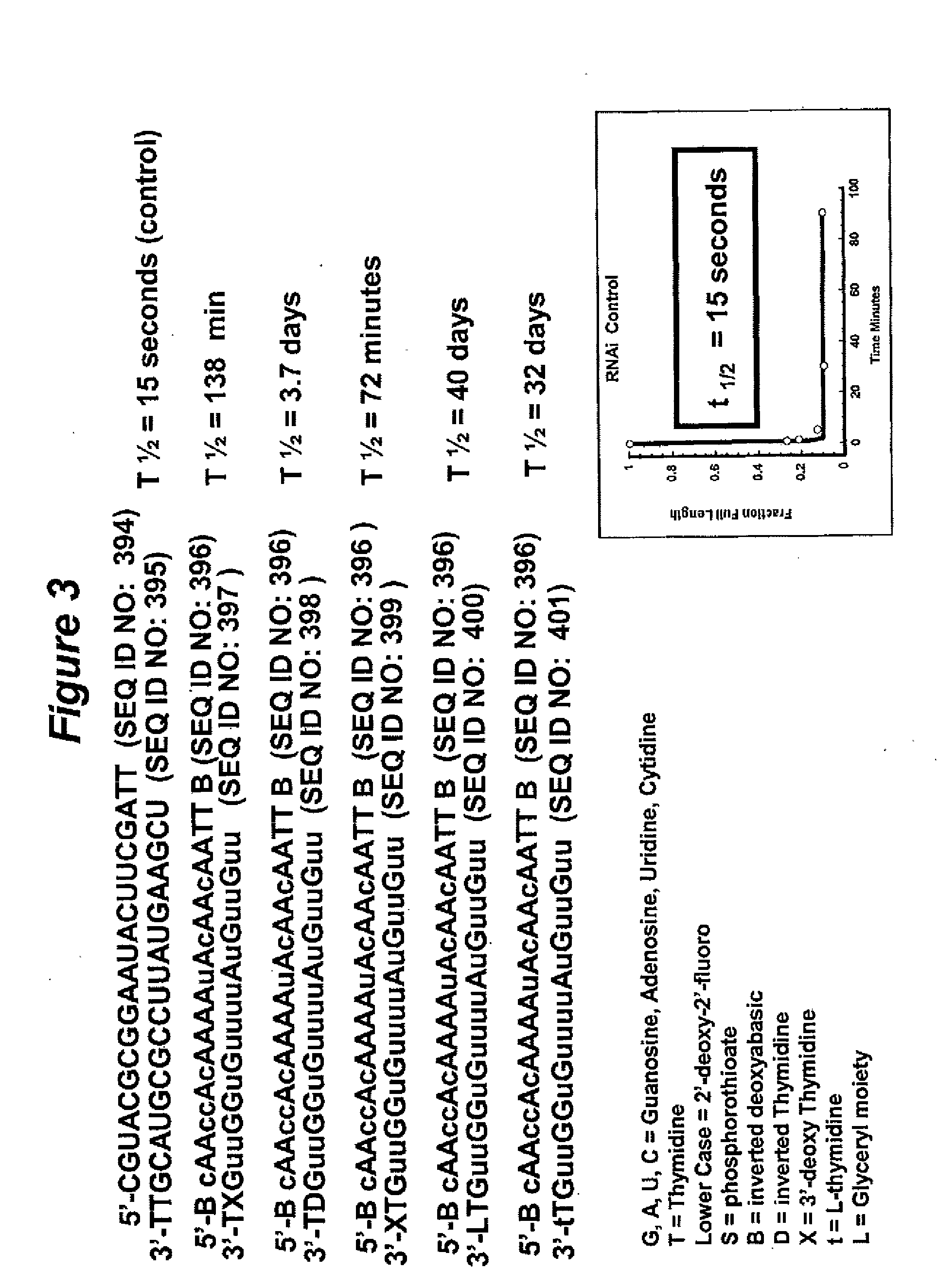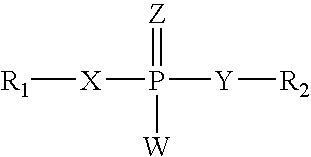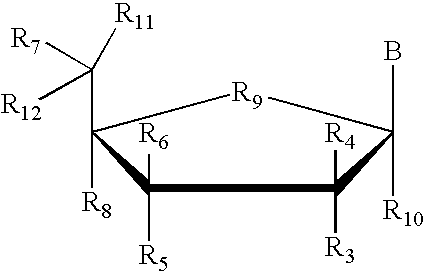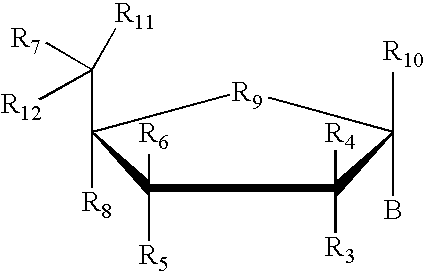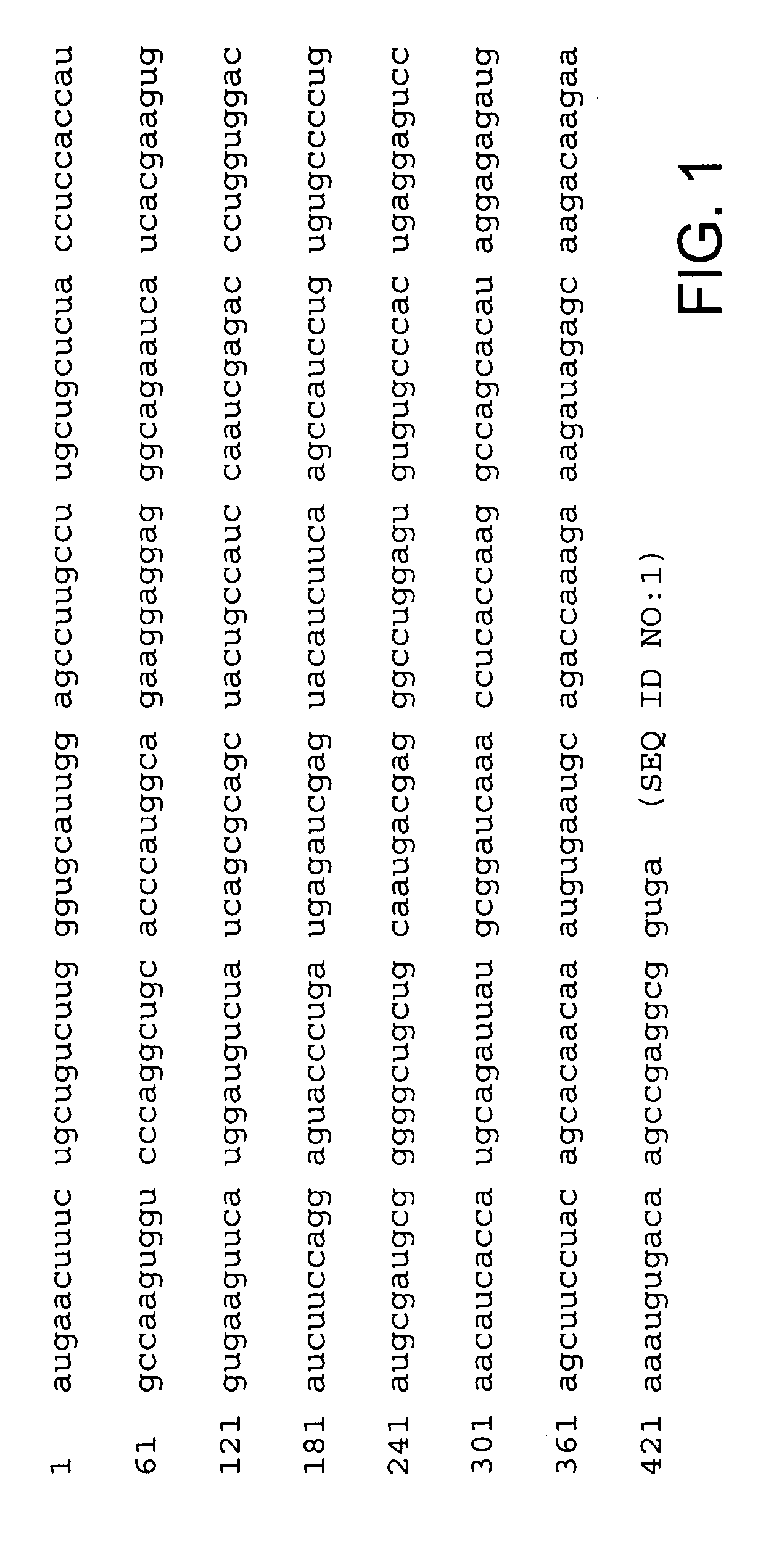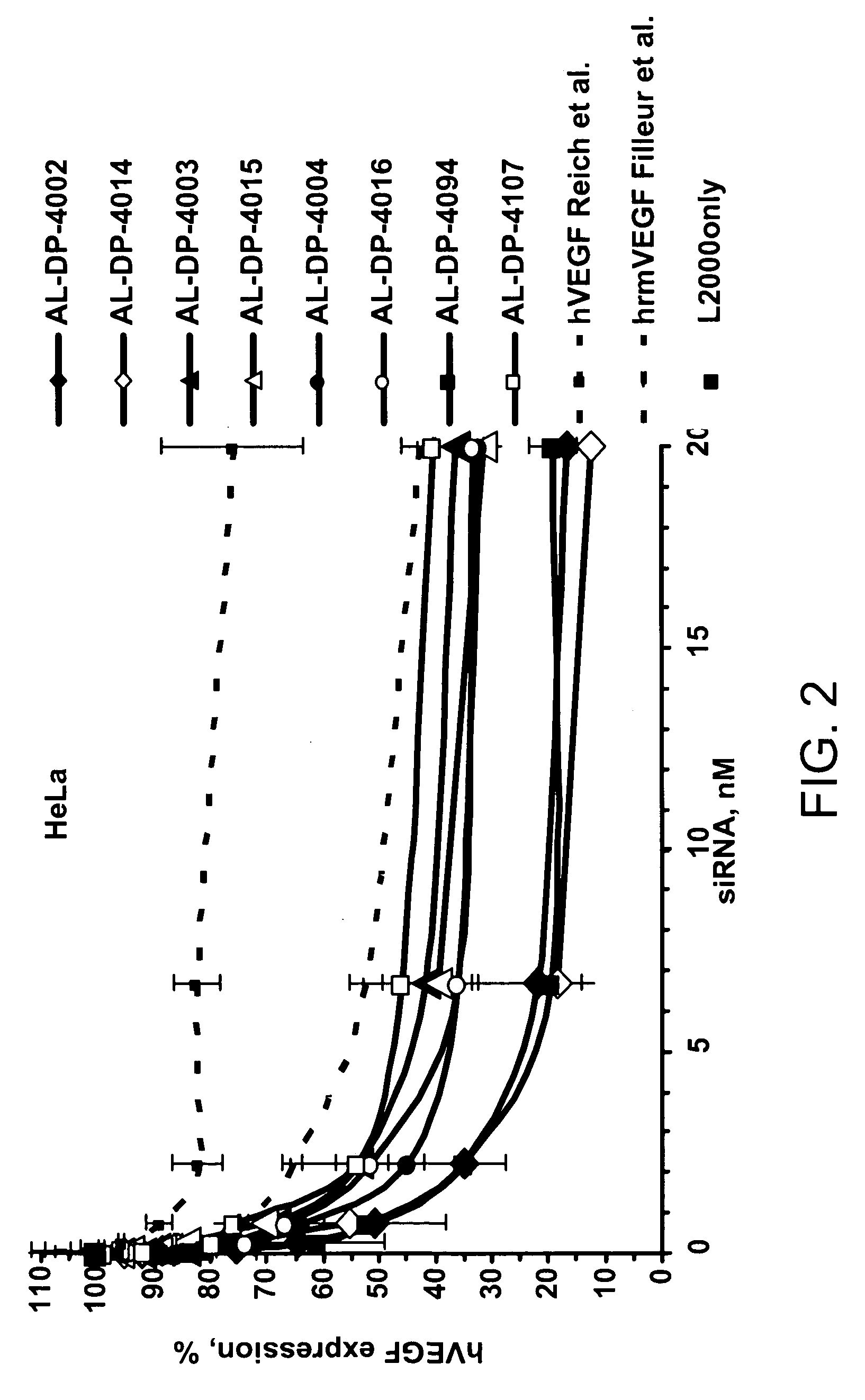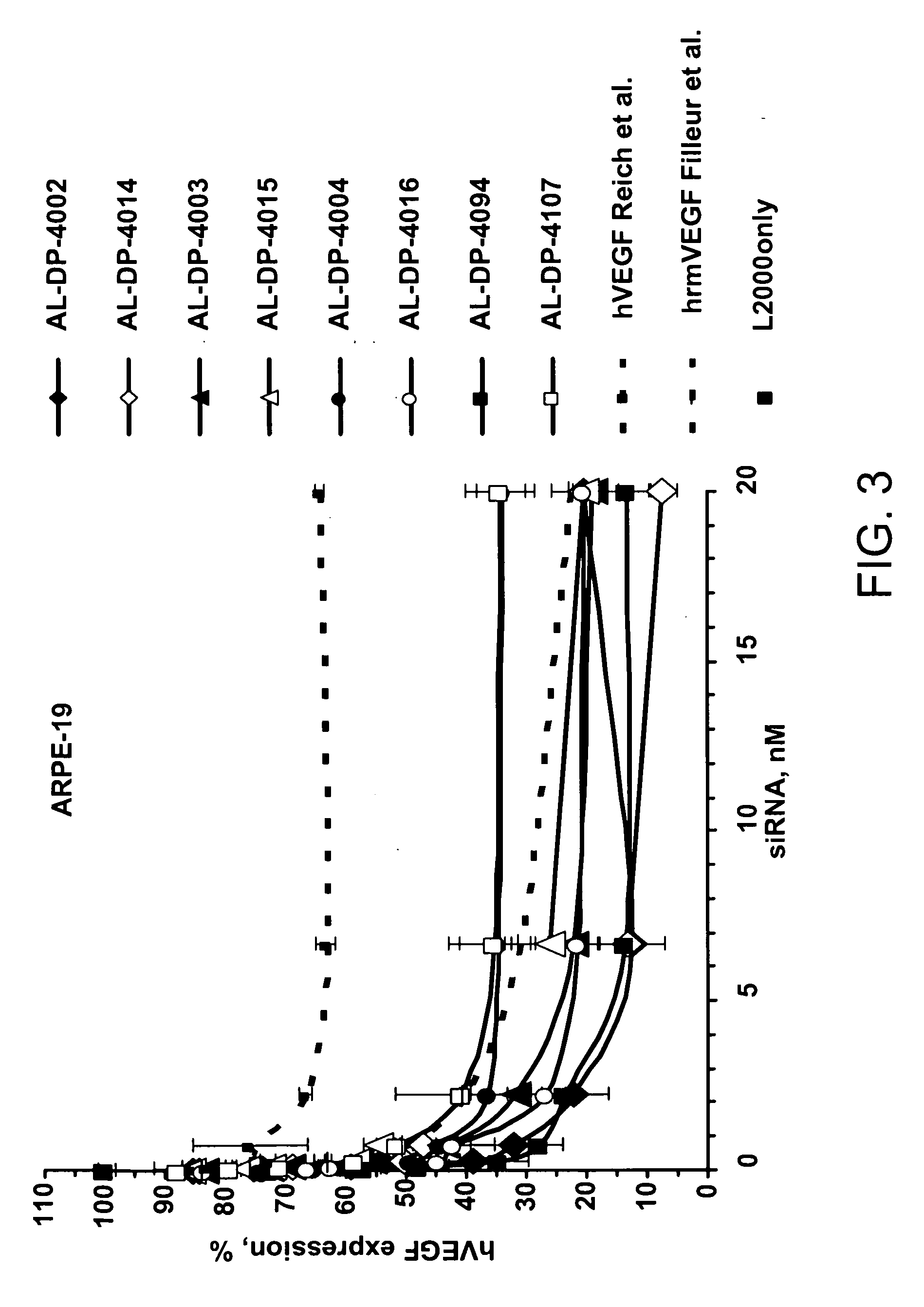Patents
Literature
172results about How to "Improved cellular uptake" patented technology
Efficacy Topic
Property
Owner
Technical Advancement
Application Domain
Technology Topic
Technology Field Word
Patent Country/Region
Patent Type
Patent Status
Application Year
Inventor
RNA interference mediated inhibition of gene expression using chemically modified short interfering nucleic acid (siNA)
InactiveUS20050020525A1Improve various propertyModulate its functionCompounds screening/testingSugar derivativesDouble strandOrganism
The present invention concerns methods and reagents useful in modulating gene expression in a variety of applications, including use in therapeutic, diagnostic, target validation, and genomic discovery applications. Specifically, the invention relates to synthetic chemically modified small nucleic acid molecules, such as short interfering nucleic acid (siNA), short interfering RNA (siRNA), double-stranded RNA (dsRNA), micro-RNA (miRNA), and short hairpin RNA (shRNA) molecules capable of mediating RNA interference (RNAi) against target nucleic acid sequences. The small nucleic acid molecules are useful in the treatment of any disease or condition that responds to modulation of gene expression or activity in a cell, tissue, or organism.
Owner:SIMA THERAPEUTICS ICN
RNA interference mediated inhibition of gene expression using chemically modified short interfering nucleic acid (SiNA)
InactiveUS20050032733A1Improve various propertyModulate its functionCompounds screening/testingSpecial deliveryBiological bodyNucleic acid sequencing
The present invention concerns methods and reagents useful in modulating gene expression in a variety of applications, including use in therapeutic, diagnostic, target validation, and genomic discovery applications. Specifically, the invention relates to synthetic chemically modified small nucleic acid molecules, such as short interfering nucleic acid (siNA), short interfering RNA (siRNA), double-stranded RNA (dsRNA), micro-RNA (miRNA), and short hairpin RNA (shRNA) molecules capable of mediating RNA interference (RNAi) against target nucleic acid sequences. The small nucleic acid molecules are useful in the treatment of any disease or condition that responds to modulation of gene expression or activity in a cell, tissue, or organism.
Owner:SIRNA THERAPEUTICS INC
RNA interference mediated inhibition of B-cell CLL/Lymphoma-2 (BCL-2) gene expression using short interfering nucleic acid (siNA)
InactiveUS20050176025A1Improves various propertyImprove the immunityCompounds screening/testingSpecial deliveryAutoimmune conditionAutoimmune disease
This invention relates to compounds, compositions, and methods useful for modulating BCL2 gene expression using short interfering nucleic acid (siNA) molecules. This invention also relates to compounds, compositions, and methods useful for modulating the expression and activity of other genes involved in pathways of BCL2 gene expression and / or activity by RNA interference (RNAi) using small nucleic acid molecules. In particular, the instant invention features small nucleic acid molecules, such as short interfering nucleic acid (siNA), short interfering RNA (siRNA), double-stranded RNA (dsRNA), micro-RNA (miRNA), and short hairpin RNA (shRNA) molecules and methods used to modulate the expression of BCL2 genes (e.g., BCL2, BCL-XL, BCL2-L1, MCL-1 CED-9, BAG-1, E1B-194 and / or BCL-A1). The small nucleic acid molecules are useful in the treatment of cancer, malignant blood disease, polycytemia vera, idiopathic myelofibrosis, essential thrombocythemia, myelodysplastic syndromes, autoimmune disease, viral infection, and proliferative diseases and conditions
Owner:SIRNA THERAPEUTICS INC
RNA interference mediated inhibition of MAP kinase gene expression using short interfering nucleic acid (siNA)
InactiveUS20050239731A1Improve bioavailabilityMinimize the possibilityBiocideSugar derivativesMAP Kinase GeneMitogen-activated protein
This invention relates to compounds, compositions, and methods useful for modulating mitogen activated protein kinase (MAP kinase) gene expression using short interfering nucleic acid (siNA) molecules. This invention also relates to compounds, compositions, and methods useful for modulating the expression and activity of other genes involved in pathways of MAP kinase gene expression and / or activity by RNA interference (RNAi) using small nucleic acid molecules. In particular, the instant invention features small nucleic acid molecules, such as short interfering nucleic acid (siNA), short interfering RNA (siRNA), double-stranded RNA (dsRNA), micro-RNA (miRNA), and short hairpin RNA (shRNA) molecules and methods used to modulate the expression of MAP kinase genes, such as Jun amino-terminal kinase (e.g., JNK-1, JNK-2), p38 (MAPK 14), ERK (e.g., ERK-1, ERK-2) and / or c-Jun.
Owner:SIRNA THERAPEUTICS INC
RNA interference mediated inhibition of wingless gene expression using short interfering nucleic acid (siNA)
InactiveUS20050130181A1Improves various propertyImprove the immunityCompounds screening/testingSpecial deliveryWnt genesFhit gene
This invention relates to compounds, compositions, and methods useful for modulating wingless (WNT) gene expression using short interfering nucleic acid (siNA) molecules. This invention also relates to compounds, compositions, and methods useful for modulating the expression and activity of other genes involved in pathways of WNT gene expression and / or activity by RNA interference (RNAi) using small nucleic acid molecules. In particular, the instant invention features small nucleic acid molecules, such as short interfering nucleic acid (siNA), short interfering RNA (siRNA), double-stranded RNA (dsRNA), micro-RNA (miRNA), and short hairpin RNA (shRNA) molecules and methods used to modulate the expression of WNT genes such as WNT3A and WNT7A.
Owner:SIRNA THERAPEUTICS INC
RNA interference mediated inhibition of TNF and TNF receptor gene expression using short interfering nucleic acid (siNA)
InactiveUS20050227935A1Improves various propertyImprove the immunitySugar derivativesGenetic material ingredientsTumor necrosis factor receptorDouble strand
This invention relates to compounds, compositions, and methods useful for modulating tumor necrosis factor and / or tumor necrosis factor receptor gene expression using short interfering nucleic acid (siNA) molecules. This invention also relates to compounds, compositions, and methods useful for modulating the expression and activity of other genes involved in pathways of tumor necrosis factor and / or tumor necrosis factor receptor gene expression and / or activity by RNA interference (RNAi) using small nucleic acid molecules. In particular, the instant invention features small nucleic acid molecules, such as short interfering nucleic acid (siNA), short interfering RNA (siRNA), double-stranded RNA (dsRNA), micro-RNA (miRNA), and short hairpin RNA (shRNA) molecules and methods used to modulate the expression of tumor necrosis factor and / or tumor necrosis factor receptor genes, (TNF and / or TNF receptor).
Owner:SIRNA THERAPEUTICS INC
RNA interference mediated inhibition of gene expression using short interfering nucleic acid (siNA)
InactiveUS20050282188A1Improve bioavailabilityMinimize the possibilitySugar derivativesActivity regulationPseudogeneRegulator gene
This invention relates to compounds, compositions, and methods useful for modulating gene expression using short interfering nucleic acid (siNA) molecules. In particular, the instant invention features small nucleic acid molecules, such as short interfering nucleic acid (siNA), short interfering RNA (siRNA), double-stranded RNA (dsRNA), micro-RNA (miRNA), and short hairpin RNA (shRNA) molecules and methods used to modulate the expression of genes, such as expressed pseudogenes associated with the maintenance or development of diseases, disorders, traits, and conditions in a subject or organism. The invention also provides small nucleic acid molecules with reduced or attenuated immunostimulatory properties and methods for designing and synthesizing such small nucleic acid molecules having improved toxicologic properties while retaining RNAi activity.
Owner:SIRNA THERAPEUTICS INC
RNA interference mediated inhibition of gene expression using chemically modified short interfering nucleic acid (siNA)
InactiveUS20070004664A1Improve various propertyModulating gene expressionBiocideOrganic active ingredientsBiological bodyNucleic acid sequencing
The present invention concerns methods and reagents useful in modulating gene expression in a variety of applications, including use in therapeutic, diagnostic, target validation, and genomic discovery applications. Specifically, the invention relates to synthetic chemically modified small nucleic acid molecules, such as short interfering nucleic acid (siNA), short interfering RNA (siRNA), double-stranded RNA (dsRNA), micro-RNA (miRNA), and short hairpin RNA (shRNA) molecules capable of mediating RNA interference (RNAi) against target nucleic acid sequences. The small nucleic acid molecules are useful in the treatment of any disease or condition that responds to modulation of gene expression or activity in a cell, tissue, or organism.
Owner:SIRNA THERAPEUTICS INC
RNA Interference Mediated Inhibition of Gene Expression Using Chemically Modified Short Interfering Nucleic Acid (siNA)
InactiveUS20100240730A1Improve various propertyModulate its functionOrganic active ingredientsSugar derivativesDiseaseNucleic acid sequencing
Owner:MERCK SHARP & DOHME CORP
RNA interference mediated treatment of Parkinson disease using short interfering nucleic acid (siNA)
InactiveUS20050137155A1Improve bioavailabilityMinimize the possibilityCompounds screening/testingSugar derivativesPARK7Double strand
The present invention concerns methods and reagents useful in modulating Parkinson genes, for example, PARK1 (SNCA), PARK2, PARK7, and / or PARK5 gene expression in a variety of applications, including use in therapeutic, diagnostic, target validation, and genomic discovery applications. Specifically, the invention relates to small nucleic acid molecules, such as short interfering nucleic acid (siNA), short interfering RNA (siRNA), double-stranded RNA (dsRNA), micro-RNA (miRNA), and short hairpin RNA (shRNA) molecules capable of mediating RNA interference (RNAi) against SNCA gene expression and / or activity. The small nucleic acid molecules are useful in the diagnosis and treatment of Parkinson Disease (PD), and any other disease or condition that responds to modulation of PARK1 (SNCA), PARK2, PARK7, and / or PARK5 expression or activity.
Owner:SIRNA THERAPEUTICS INC
RNA interference mediated inhibition of alpha-1 antitrypsin (AAT) gene expression using short interfering nucleic acid (siNA)
InactiveUS20050137153A1Improves various propertyImprove the immunityCompounds screening/testingSugar derivativesDouble strandCellular process
The present invention concerns compounds, compositions, and methods for the study, diagnosis, and treatment of diseases and conditions associated with alpha-1 antitrypsin (AAT) allelic variants that respond to the modulation of gene expression and / or activity. The present invention also concerns compounds, compositions, and methods relating to diseases and conditions associated with alpha-1 antitrypsin (AAT) allelic variants that respond to the modulation of expression and / or activity of genes involved in alpha-1 antitrypsin (AAT) gene expression pathways or other cellular processes that mediate the maintenance or development of alpha-1 antitrypsin (AAT) diseases and conditions such as liver disease, lung disease, and any other diseases or conditions that are related to or will respond to the levels of an alpha-1 antitrypsin (AAT) variant protein in a cell or tissue, alone or in combination with other therapies. Specifically, the invention relates to small nucleic acid molecules, such as short interfering nucleic acid (siNA), short interfering RNA (siRNA), double-stranded RNA (dsRNA), micro-RNA (mRNA), and short hairpin RNA (shRNA) molecules capable of mediating RNA interference (RNAi) against the expression disease related genes or alleles having alpha-1 antitrypsin (AAT) sequences.
Owner:SIRNA THERAPEUTICS INC
iRNA agents targeting VEGF
ActiveUS20060094032A1Improve propertiesImprove the immunityOrganic active ingredientsSenses disorderVascular endothelial growth factorEndothelium
The features of the present invention relate to compounds, compositions and methods useful for modulating the expression of vascular endothelial growth factor (VEGF), such as by the mechanism of RNA interference (RNAi). The compounds and compositions include iRNA agents that can be unmodified or chemically-modified.
Owner:ALNYLAM PHARM INC
Inhibitor nucleic acids
InactiveUS20050256071A1Low melting pointQuality improvementOrganic active ingredientsNervous disorderAptamerHalf-life
The present invention provides methods and compositions for attenuating expression of a target gene in vivo. In general, the method includes administering RNAi constructs (such as small-interfering RNAs (i.e., siRNAs) that are targeted to particular mRNA sequences, or nucleic acid material that can produce siRNAs in a cell), in an amount sufficient to attenuate expression of a target gene by an RNA interference mechanism. In particular, the RNAi constructs may include one or more modifications to improve serum stability, cellular uptake and / or to avoid non-specific effect. In certain embodiments, the RNAi constructs contain an aptamer portion. The aptamer may bind to human serum albumin to improve serum half life. The aptamer may also bind to a cell surface protein that improves uptake of the construct.
Owner:CALIFORNIA INST OF TECH
RNA interference mediated inhibition of interleukin and interleukin receptor gene expression using short interfering nucleic acid (SINA)
InactiveUS20050143333A1Improves various propertyImprove the immunityCompounds screening/testingSpecial deliveryWhite blood cellFhit gene
This invention relates to compounds, compositions, and methods useful for modulating interleukin and / or interleukin receptor gene expression using short interfering nucleic acid (siNA) molecules. This invention also relates to compounds, compositions, and methods useful for modulating the expression and activity of other genes involved in pathways of interleukin and / or interleukin receptor gene expression and / or activity by RNA interference (RNAi) using small nucleic acid molecules. In particular, the instant invention features small nucleic acid molecules, such as short interfering nucleic acid (siNA), short interfering RNA (siRNA), double-stranded RNA (dsRNA), micro-RNA (mRNA), and short hairpin RNA (shRNA) molecules and methods used to modulate the expression of interleukin and / or interleukin receptor genes such as IL-1, IL-2, IL-3, IL-4, IL-5, IL-6, IL-7, IL-8, IL-9, IL-10, IL-11, IL-12, IL-13, IL-14, IL-15, IL-16, IL-17, IL-18, IL-19, IL-20, IL-21, IL-22, IL-23, IL-24, IL-25, IL-26, and IL-27 genes and IL-IR, IL-2R, IL-3R, IL-4R, IL-5R, IL-6R, IL-7R, IL-8R, IL-9R, IL-10R, IL-11R, IL-12R, IL-13R, IL-14R, IL-15R, IL-16R, IL-17R, IL-18R, IL-19R, IL-20R, IL-21R, IL-22R, IL-23R, IL-24R, IL-25R, IL-26R, and IL-27R genes.
Owner:SIRNA THERAPEUTICS INC
RNA interference mediated inhibition of vascular endothelial growth factor and vascular endothelial growth factor receptor gene expression using short interfering nucleic acid (siNA)
InactiveUS20050171039A1Improves various propertyImprove the immunityBiocideSugar derivativesDiseaseFactor ii
The present invention concerns methods and reagents useful in modulating vascular endothelial growth factor (VEGF, VEGF-A, VEGF-B, VEGF-C, VEGF-D) and / or vascular endothelial growth factor receptor (e.g., VEGFR1, VEGFR2 and / or VEGFr3) gene expression in a variety of applications, including use in therapeutic, diagnostic, target validation, and genomic discovery applications. Specifically, the invention relates to small nucleic acid molecules, such as short interfering nucleic acid (siNA), short interfering RNA (siRNA), double-stranded RNA (dsRNA), micro-RNA (miRNA), and short hairpin RNA (shRNA) molecules capable of mediating RNA interference (RNAi) against VEGF and / or VEGFr gene expression and / or activity. The small nucleic acid molecules are useful in the diagnosis and treatment of cancer, proliferative diseases, and any other disease or condition that responds to modulation of VEGF and / or VEGFr expression or activity.
Owner:SIRNA THERAPEUTICS INC
RNA interference mediated inhibition of proprotein convertase subtilisin Kexin 9 (PCSK9) gene expression using short interfering nucleic acid (siNA)
InactiveUS20070173473A1Improve stabilityModulating RNAi activitySugar derivativesMicrobiological testing/measurementLipid formationProprotein Convertase Subtilisin/Kexin 9
The present invention relates to compounds, compositions, and methods for the study, diagnosis, and treatment of traits, diseases and conditions that respond to the modulation of Proprotein Convertase Subtilisin Kexin 9 (PCSK9) gene expression and / or activity. The present invention is also directed to compounds, compositions, and methods relating to traits, diseases and conditions that respond to the modulation of expression and / or activity of genes involved in Proprotein Convertase Subtilisin Kexin 9 (PCSK9) gene expression pathways or other cellular processes that mediate the maintenance or development of such traits, diseases and conditions. Specifically, the invention relates to double stranded nucleic acid molecules including small nucleic acid molecules, such as short interfering nucleic acid (siNA), short interfering RNA (siRNA), double-stranded RNA (dsRNA), micro-RNA (miRNA), and short hairpin RNA (shRNA) molecules capable of mediating RNA interference (RNAi) against Proprotein Convertase Subtilisin Kexin 9 (PCSK9) gene expression, including cocktails of such small nucleic acid molecules and lipid nanoparticle (LNP) formulations of such small nucleic acid molecules. The present invention also relates to small nucleic acid molecules, such as siNA, siRNA, and others that can inhibit the function of endogenous RNA molecules, such as endogenous micro-RNA (miRNA) (e.g, miRNA inhibitors) or endogenous short interfering RNA (siRNA), (e.g., siRNA inhibitors) or that can inhibit the function of RISC (e.g., RISC inhibitors), to modulate PCSK9 gene expression by interfering with the regulatory function of such endogenous RNAs or proteins associated with such endogenous RNAs (e.g., RISC), including cocktails of such small nucleic acid molecules and lipid nanoparticle (LNP) formulations of such small nucleic acid molecules. Such small nucleic acid molecules and are useful, for example, in providing compositions to prevent, inhibit, or reduce metabolic diseases traits and conditions, including but not limited to hyperlipidemia, hypercholesterolemia, cardiovascular disease, atherosclerosis, hypertension, diabetis (e.g., type I and / or type II diabetis), insulin resistance, obesity and / or other disease states, conditions, or traits associated with PCSK9 gene expression or activity in a subject or organism.
Owner:SIRNA THERAPEUTICS INC
RNA mediated inhibition connexin gene expression using short interfering nucleic acid (siNA)
InactiveUS20050119211A1Improves various propertyImprove the immunityCompounds screening/testingSpecial deliveryDouble stranded rnaGene expression
This invention relates to compounds, compositions, and methods useful for modulating Connexin gene expression using short interfering nucleic acid (siNA) molecules. This invention also relates to compounds, compositions, and methods useful for modulating the expression and activity of other genes involved in pathways of Connexin gene expression and / or activity by RNA interference (RNAi) using small nucleic acid molecules. In particular, the instant invention features small nucleic acid molecules, such as short interfering nucleic acid (siNA), short interfering RNA (siNA), double-stranded RNA (dsRNA), micro-RNA (mRNA), and short hairpin RNA (shRNA) molecules and methods used to modulate the expression of Connexin genes such as Connexin43 (Cx43).
Owner:SIRNA THERAPEUTICS INC
Chemically modified double stranded nucleic acid molecules that mediate RNA interference
InactiveUS20060217331A1Improve bioavailabilityMinimize the possibilityOrganic active ingredientsSugar derivativesNucleic acid structureDouble strand
This invention relates to compounds, compositions, and methods useful for modulating gene expression using chemically modified double stranded nucleic acid molecules. In particular, the instant invention features double stranded nucleic acid molecules including small nucleic acid molecules, such as short interfering nucleic acid (siNA), short interfering RNA (siRNA), double-stranded RNA (dsRNA), micro-RNA (miRNA), and short hairpin RNA (shRNA) molecules and methods used to modulate the expression of genes via RNA interference (RNAi). The invention features various modifications to double stranded nucleic acid structures, including chemically modified overhangs and optimized stabilization motifs of guide (antisense) strand and passenger (sense) strands of double stranded nucleic acid molecules that allow for potent RNA interference in therapeutically relevant applications.
Owner:SIRNA THERAPEUTICS INC
RNA interference mediated inhibition of epidermal growth factor receptor (EGFR) gene expression using short interfering nucleic acid (siNA)
InactiveUS20050176024A1Improves various propertyImprove the immunityCompounds screening/testingSpecial deliveryDouble stranded rnaGene expression
This invention relates to compounds, compositions, and methods useful for modulating epidermal growth factor receptor (EGFR) (e.g., HER1, HER2, HER3, and / or HER4) gene expression using short interfering nucleic acid (siNA) molecules. This invention also relates to compounds, compositions, and methods useful for modulating the expression and activity of other genes involved in pathways of EGFR gene expression and / or activity by RNA interference (RNAi) using small nucleic acid molecules. In particular, the instant invention features small nucleic acid molecules, such as short interfering nucleic acid (siNA), short interfering RNA (siRNA), double-stranded RNA (dsRNA), micro-RNA (mRNA), and short hairpin RNA (shRNA) molecules and methods used to modulate the expression of EGFR genes, including HER 1, HER2, HER3, and / or HER4. The small nucleic acid molecules are useful in the treatment and diagnosis of cancer.
Owner:SIRNA THERAPEUTICS INC
RNA interference mediated inhibition hairless (HR) gene expression using short interfering nucleic acid (siNA)
InactiveUS20050054598A1Improve bioavailabilityMinimize the possibilityCompounds screening/testingSugar derivativesHairlessDouble stranded rna
This invention relates to compounds, compositions, and methods useful for modulating hairless (HR) gene expression using short interfering nucleic acid (siNA) molecules. This invention also relates to compounds, compositions, and methods useful for modulating the expression and activity of other genes involved in pathways of hairless gene expression and / or activity by RNA interference (RNAi) using small nucleic acid molecules. In particular, the instant invention features small nucleic acid molecules, such as short interfering nucleic acid (siNA), short interfering RNA (siRNA), double-stranded RNA (dsRNA), micro-RNA (miRNA), and short hairpin RNA (shRNA) molecules and methods used to modulate the expression of hairless (HR) genes.
Owner:SIRNA THERAPEUTICS INC
RNA interference mediated inhibition of TGF-beta and TGF-beta receptor gene expression using short interfering nucleic acid (siNA)
InactiveUS20050227936A1Improves various propertyImprove the immunitySugar derivativesGenetic material ingredientsGreek letter betaDouble strand
This invention relates to compounds, compositions, and methods useful for modulating transforming growth factor beta (TGF-beta) and / or transforming growth factor beta receptor (TGF-betaR) gene expression using short interfering nucleic acid (siNA) molecules. This invention also relates to compounds, compositions, and methods useful for modulating the expression and activity of other genes involved in pathways of TGF-beta and / or TGF-betaR gene expression and / or activity by RNA interference (RNAi) using small nucleic acid molecules. In particular, the instant invention features small nucleic acid molecules, such as short interfering nucleic acid (siNA), short interfering RNA (siRNA), double-stranded RNA (dsRNA), micro-RNA (miRNA), and short hairpin RNA (shRNA) molecules and methods used to modulate the expression of TGF-beta and / or TGF-betaR genes.
Owner:SIRNA THERAPEUTICS INC
RNA interference mediated inhibition of gene expression using chemically modified short interfering nucleic acid (SINA)
InactiveUS8273866B2Modulating gene expressionImprove various propertySugar derivativesGenetic material ingredientsDiseaseBiological body
The present invention concerns methods and reagents useful in modulating gene expression in a variety of applications, including use in therapeutic, diagnostic, target validation, and genomic discovery applications. Specifically, the invention relates to synthetic chemically modified small nucleic acid molecules, such as short interfering nucleic acid (siNA), short interfering RNA (siRNA), double-stranded RNA (dsRNA), micro-RNA (miRNA), and short hairpin RNA (shRNA) molecules capable of mediating RNA interference (RNAi) against target nucleic acid sequences. The small nucleic acid molecules are useful in the treatment of any disease or condition that responds to modulation of gene expression or activity in a cell, tissue, or organism.
Owner:SIRNA THERAPEUTICS INC
RNA interference mediated inhibition of STAT3 gene expression using short interfering nucleic acid (siNA)
InactiveUS20050196781A1Improve bioavailabilityMinimize the possibilitySugar derivativesMicrobiological testing/measurementDouble strandOrganism
This invention relates to compounds, compositions, and methods useful for modulating STAT3 gene expression using short interfering nucleic acid (siNA) molecules. This invention also relates to compounds, compositions, and methods useful for modulating the expression and activity of other genes involved in pathways of STAT3 gene expression and / or activity by RNA interference (RNAi) using small nucleic acid molecules. In particular, the instant invention features small nucleic acid molecules, such as short interfering nucleic acid (siNA), short interfering RNA (siRNA), double-stranded RNA (dsRNA), micro-RNA (mRNA), and short hairpin RNA (shRNA) molecules and methods used to modulate the expression of STAT3 genes. Such small nucleic acid molecules are useful, for example, for treating, preventing, inhibiting, or reducing cancer, proliferative, and / or inflammatory diseases, disorders, or conditions in a subject or organism, such as psoriasis, eczema, dermatitis, Crohn's disease, and inflammatory bowel disease, and for any other disease, trait, or condition that is related to or will respond to the levels of STAT3 in a cell or tissue, alone or in combination with other treatments or therapies.
Owner:SIRNA THERAPEUTICS INC
Chemically modified short interfering nucleic acid molecules that mediate RNA interference
InactiveUS20090176725A1Improve stabilityModulating RNAi activitySugar derivativesGenetic material ingredientsLipid formationDouble strand
The present invention relates to compounds, compositions, and methods for the study, diagnosis, and treatment of traits, diseases and conditions that respond to the modulation of gene expression and / or activity. The present invention is also directed to compounds, compositions, and methods relating to traits, diseases and conditions that respond to the modulation of expression and / or activity of genes involved in gene expression pathways or other cellular processes that mediate the maintenance or development of such traits, diseases and conditions. Specifically, the invention relates to double stranded nucleic acid molecules including small nucleic acid molecules, such as short interfering nucleic acid (siNA), short interfering RNA (siRNA), double-stranded RNA (dsRNA), micro-RNA (miRNA), and short hairpin RNA (shRNA) molecules capable of mediating RNA interference (RNAi) against gene expression, including cocktails of such small nucleic acid molecules and lipid nanoparticle (LNP) formulations of such small nucleic acid molecules. The present invention also relates to small nucleic acid molecules, such as siNA, siRNA, and others that can inhibit the function of endogenous RNA molecules, such as endogenous micro-RNA (miRNA) (e.g., miRNA inhibitors) or endogenous short interfering RNA (siRNA), (e.g., siRNA inhibitors) or that can inhibit the function of RISC (e.g., RISC inhibitors), to modulate gene expression by interfering with the regulatory function of such endogenous RNAs or proteins associated with such endogenous RNAs (e.g., RISC), including cocktails of such small nucleic acid molecules and lipid nanoparticle (LNP) formulations of such small nucleic acid molecules. Such small nucleic acid molecules and are useful, for example, in providing compositions to prevent, inhibit, or reduce diseases, traits and conditions that are associated with gene expression or activity in a subject or organism.
Owner:SIRNA THERAPEUTICS INC
RNA interference mediated inhibition of myostatin gene expression using short interfering nucleic acid (siNA)
InactiveUS20050124566A1Improves various propertyImprove the immunityCompounds screening/testingSpecial deliveryCompound (substance)Double strand
This invention relates to compounds, compositions, and methods useful for modulating myostatin (GDF8) gene expression using short interfering nucleic acid (siNA) molecules. This invention also relates to compounds, compositions, and methods useful for modulating the expression and activity of other genes involved in pathways of myostatin gene expression and / or activity by RNA interference (RNAi) using small nucleic acid molecules. In particular, the instant invention features small nucleic acid molecules, such as short interfering nucleic acid (siNA), short interfering RNA (siRNA), double-stranded RNA (dsRNA), micro-RNA (miRNA), and short hairpin RNA (shRNA) molecules and methods used to modulate the expression of myostatin genes.
Owner:SIRNA THERAPEUTICS INC
RNA interference mediated inhibition of gene expression using short interfering nucleic acid (siNA)
InactiveUS20070042983A1Improve bioavailabilityImprove cellular uptakeSugar derivativesGenetic material ingredientsRegulator geneRNA
This invention relates to compounds, compositions, and methods useful for modulating gene expression using short interfering nucleic acid (siNA) molecules. In particular, the instant invention features small nucleic acid molecules, such as short interfering nucleic acid (siNA), short interfering RNA (siRNA), double-stranded RNA (dsRNA), micro-RNA (miRNA), and short hairpin RNA (shRNA) molecules and methods used to modulate the expression of genes, such as expressed pseudogenes associated with the maintenance or development of diseases, disorders, traits, and conditions in a subject or organism.
Owner:SIRNA THERAPEUTICS INC
Fluoroalkoxy, nucleosides, nucleotides, and polynucleotides
InactiveUS20050266422A1Improves various propertyImprove the immunitySugar derivativesActivity regulationDiseaseDecoy
The present invention related to fluoroalkoxy (“—OCF3”) nucleosides, nucleotides, and polynucleotides comprising fluoroalkoxy nucleotides. The present invention also relates to methods of synthesizing fluoroalkoxy nucleosides, nucleotides, and polynucleotides comprising fluoroalkoxy nucleotides. The present invention also relates to compounds, compositions, and methods for the study, diagnosis, and treatment of traits, diseases and conditions that respond to the modulation of gene expression and / or activity. The invention also relates to fluoroalkoxy modified nucleic acid molecules, such as ribozymes, antisense, aptamers, decoys, triplex forming oligonucleotides (TFO), immune stimulatory oligonucleotides (ISO), immune modulatory oligonucleotides (IMO), and small nucleic acid molecules, including short interfering nucleic acid (siNA), short interfering RNA (siRNA), double-stranded RNA (dsRNA), micro-RNA (miRNA), and short hairpin RNA (shRNA) molecules capable of mediating RNA interference (RNAi) against polynucloetide targets. Such small nucleic acid molecules are useful, for example, in providing compositions to treat, prevent, inhibit, or reduce diseases, traits, or conditions in a subject or organism.
Owner:SIRNA THERAPEUTICS INC
RNA Interference Mediated Inhibition of Gene Expression Using Chemically Modified Short Interfering Nucleic Acid (siNA)
InactiveUS20090023675A1Modulate its functionImprove various propertySenses disorderNervous disorderDiseaseBiological body
The present invention concerns methods and reagents useful in modulating gene expression in a variety of applications, including use in therapeutic, diagnostic, target validation, and genomic discovery applications. Specifically, the invention relates to synthetic chemically modified small nucleic acid molecules, such as short interfering nucleic acid (siNA), short interfering RNA (siRNA), double-stranded RNA (dsRNA), micro-RNA (miRNA), and short hairpin RNA (shRNA) molecules capable of mediating RNA interference (RNAi) against target nucleic acid sequences. The small nucleic acid molecules are useful in the treatment of any disease or condition that responds to modulation of gene expression or activity in a cell, tissue, or organism.
Owner:SIRNA THERAPEUTICS INC
RNA interference mediated inhibition of TGF-beta and TGF-beta receptor gene expression using short interfering nucleic acid (siNA)
InactiveUS20050287128A1Improve bioavailabilityMinimize the possibilityBiocideGenetic material ingredientsDouble strandOrganism
This invention relates to compounds, compositions, and methods useful for modulating TGF-beta and / or TGF-betaR gene expression using short interfering nucleic acid (siNA) molecules. This invention also relates to compounds, compositions, and methods useful for modulating the expression and activity of other genes involved in pathways of TGF-beta and / or TGF-betaR gene expression and / or activity by RNA interference (RNAi) using small nucleic acid molecules. In particular, the instant invention features small nucleic acid molecules, such as short interfering nucleic acid (siNA), short interfering RNA (siRNA), double-stranded RNA (dsRNA), micro-RNA (miRNA), and short hairpin RNA (shRNA) molecules and methods used to modulate the expression of TGF-beta and / or TGF-betaR genes. Such small nucleic acid molecules are useful, for example, for treating, preventing, inhibiting, or reducing inflammatory, respiratory, autoimmune, and / or proliferative diseases, disorders, conditions, or traits in a cell, subject or organism and any other disease, condition, trait or indication that can respond to the level of TGF-beta and / or TGF-betaR in a cell or tissue; or alternately in providing long term hematopeitic reconstitution in a subject or organism.
Owner:SIRNA THERAPEUTICS INC
IRNA agents targeting VEGF
ActiveUS20060223770A1Improve propertiesImprove the immunityOrganic active ingredientsSenses disorderVascular endothelial growth factorEndothelium
The features of the present invention relate to compounds, compositions and methods useful for modulating the expression of vascular endothelial growth factor (VEGF), such as by the mechanism of RNA interference (RNAi). The compounds and compositions include iRNA agents that can be unmodified or chemically-modified.
Owner:ALNYLAM PHARMA INC
Features
- R&D
- Intellectual Property
- Life Sciences
- Materials
- Tech Scout
Why Patsnap Eureka
- Unparalleled Data Quality
- Higher Quality Content
- 60% Fewer Hallucinations
Social media
Patsnap Eureka Blog
Learn More Browse by: Latest US Patents, China's latest patents, Technical Efficacy Thesaurus, Application Domain, Technology Topic, Popular Technical Reports.
© 2025 PatSnap. All rights reserved.Legal|Privacy policy|Modern Slavery Act Transparency Statement|Sitemap|About US| Contact US: help@patsnap.com
